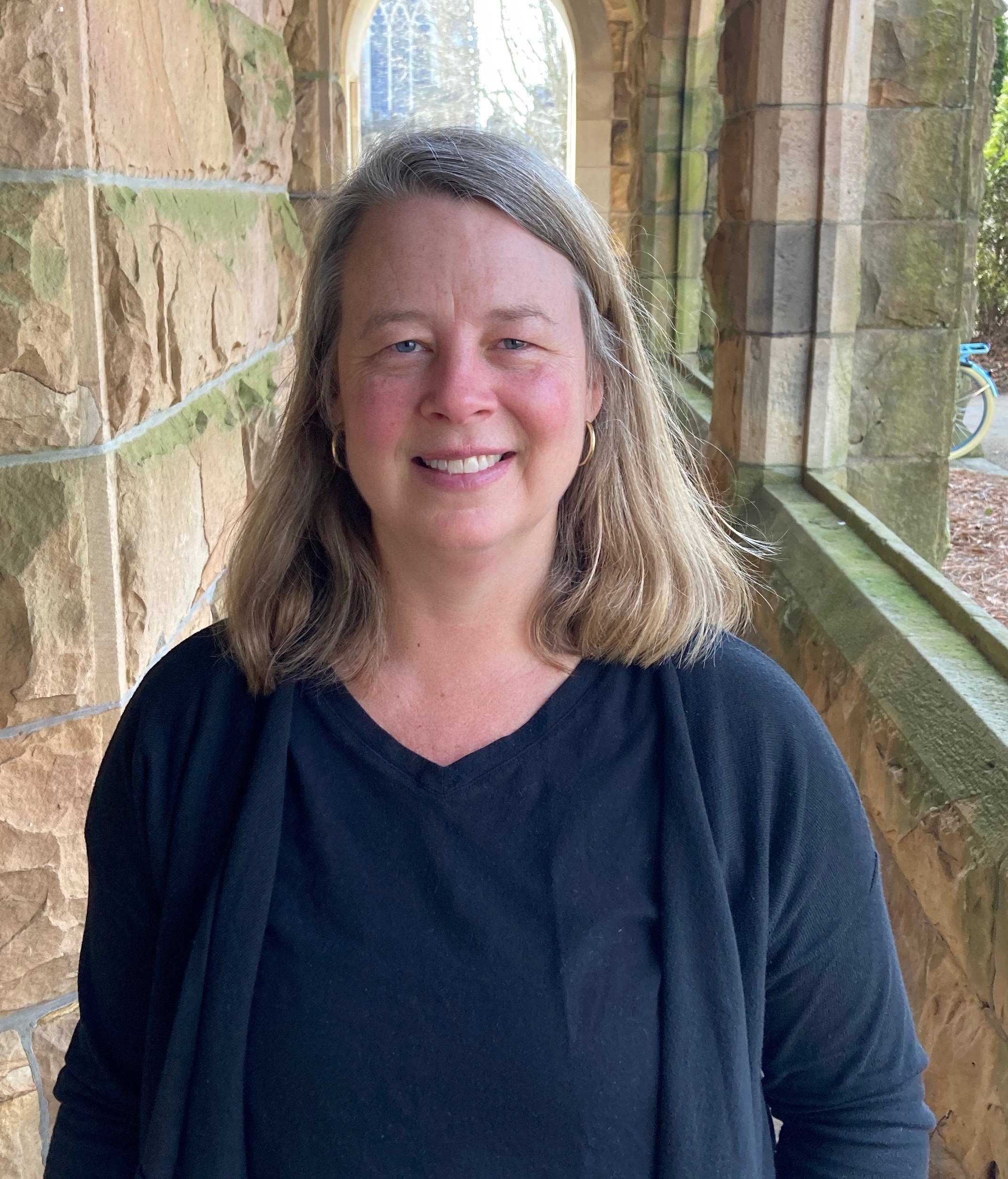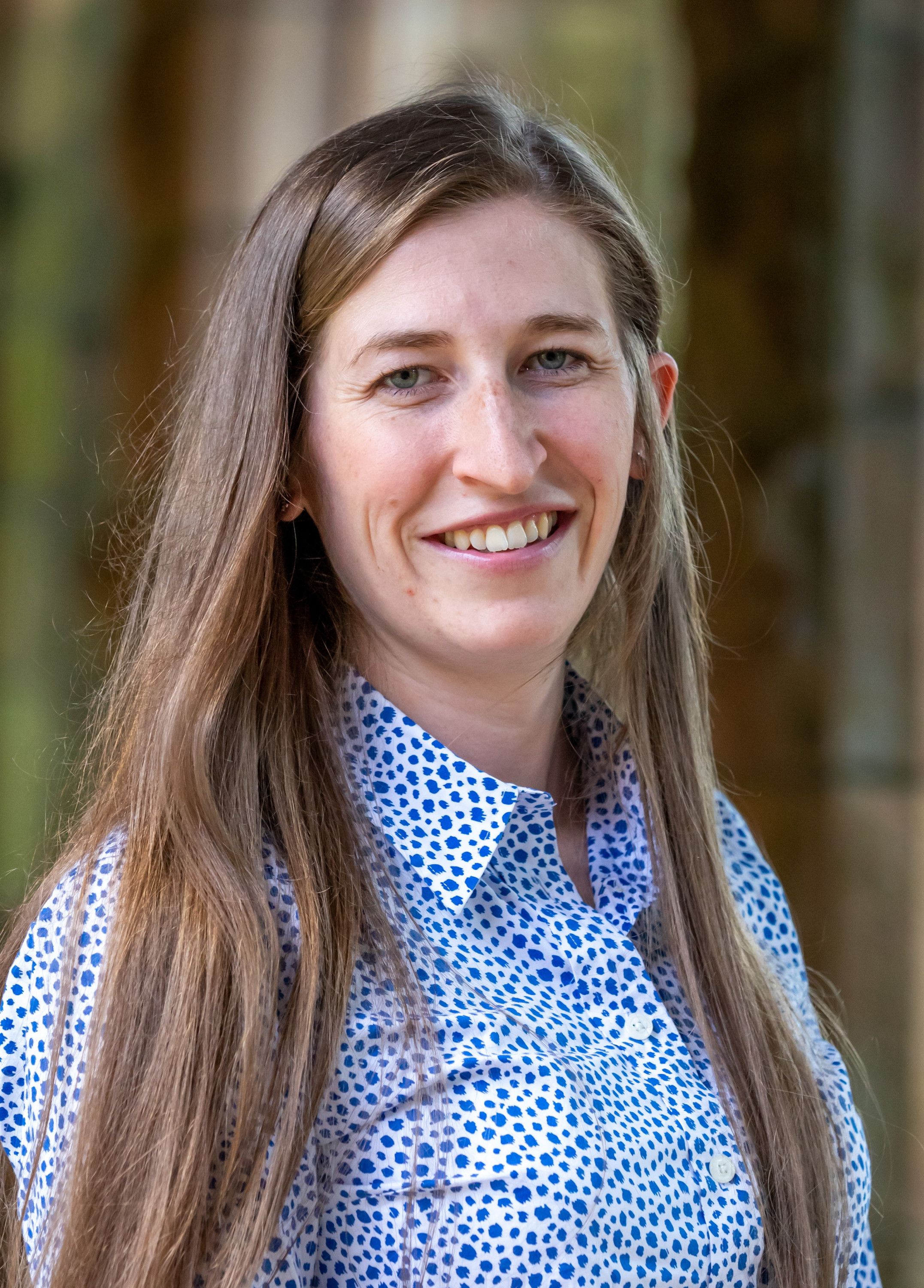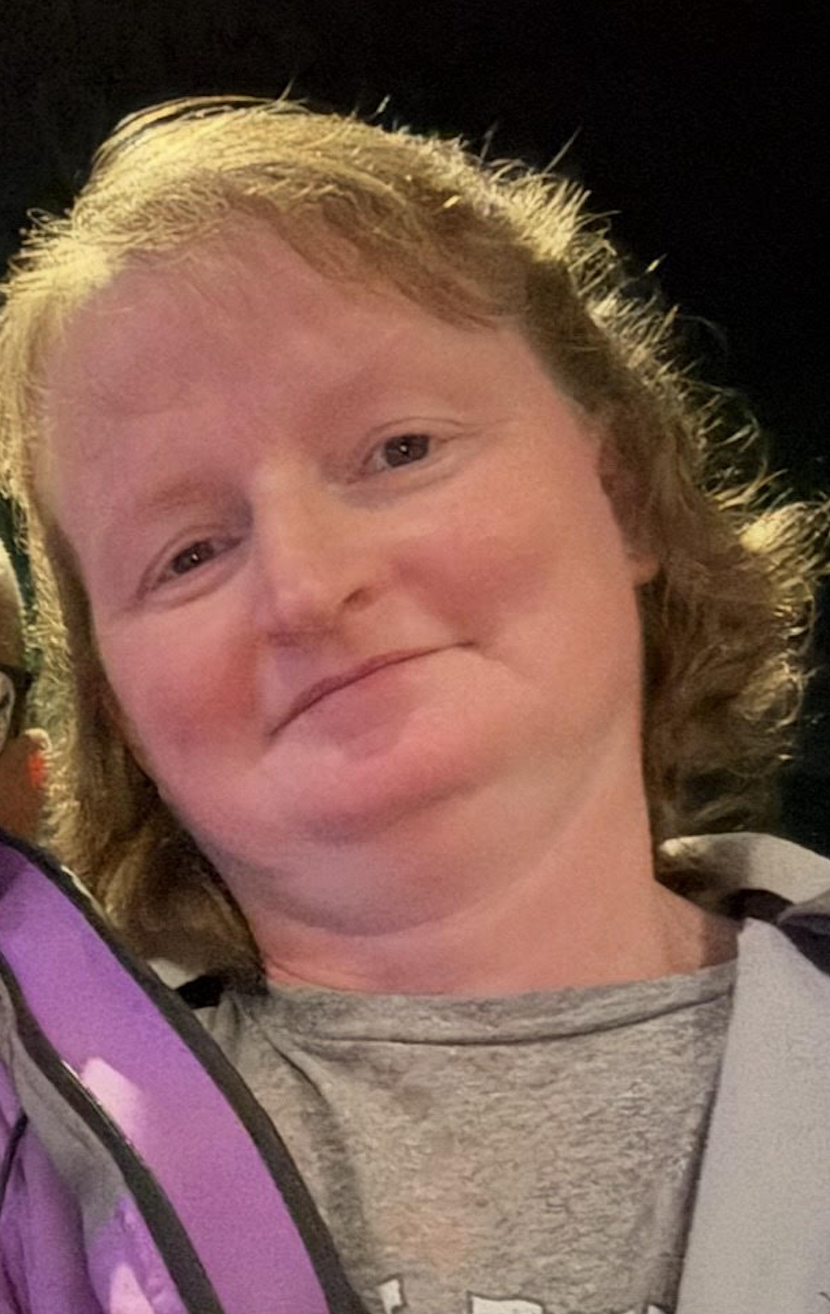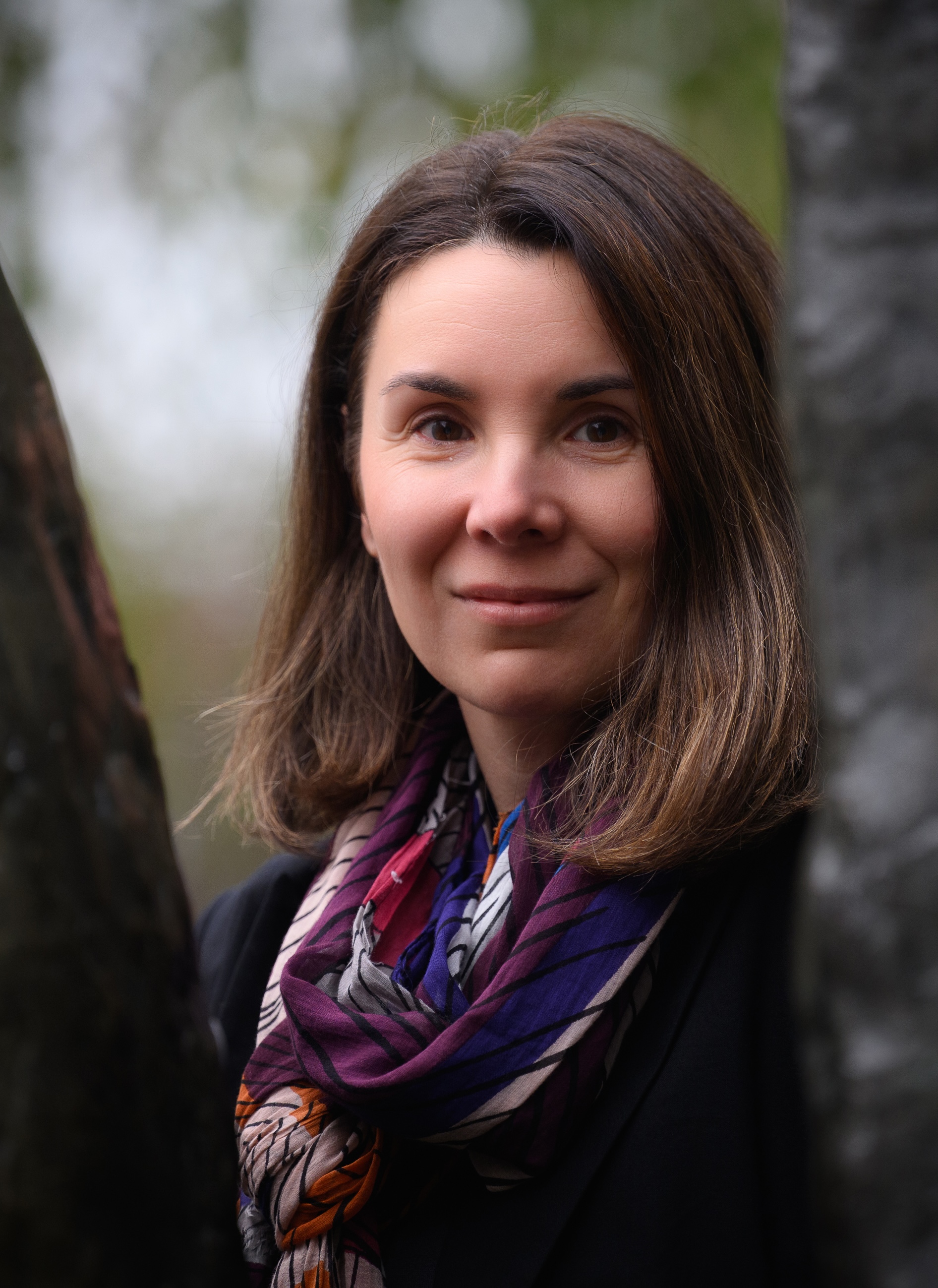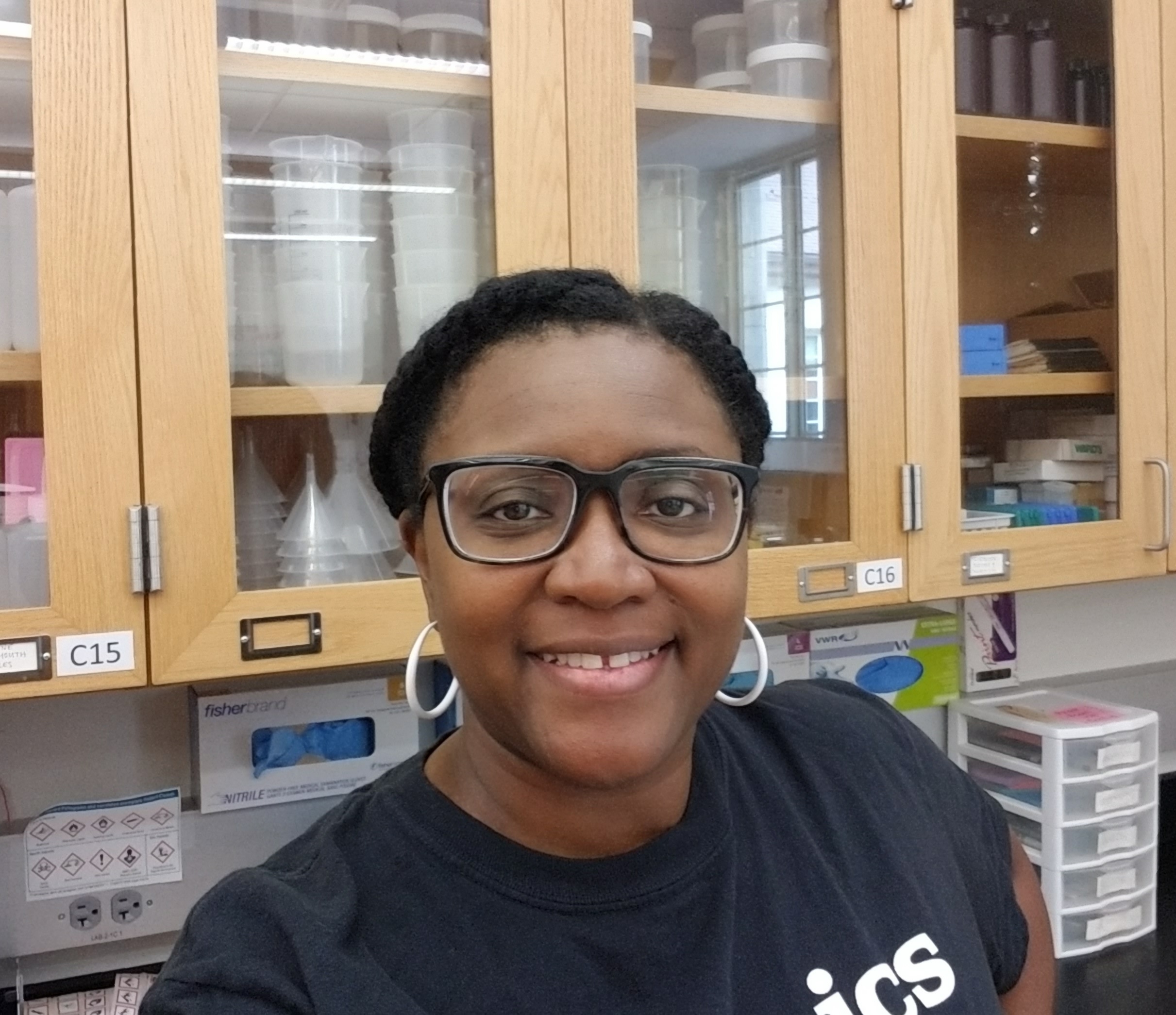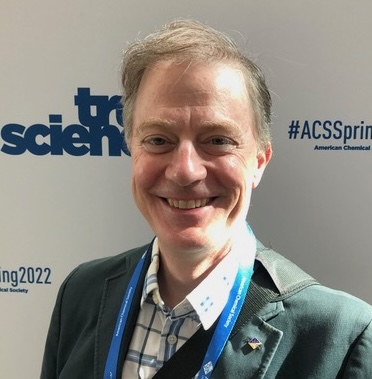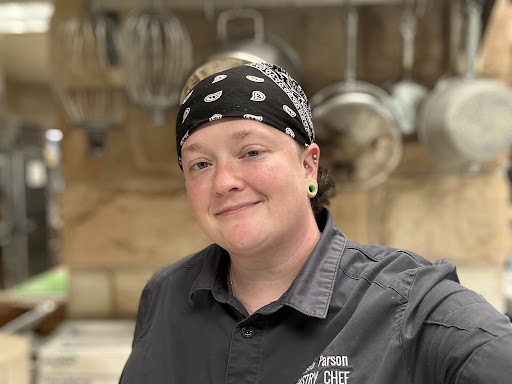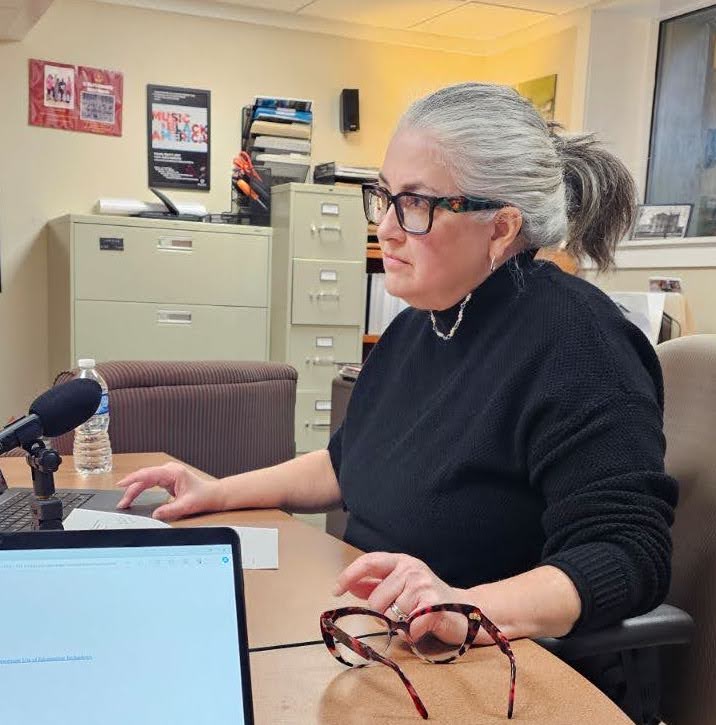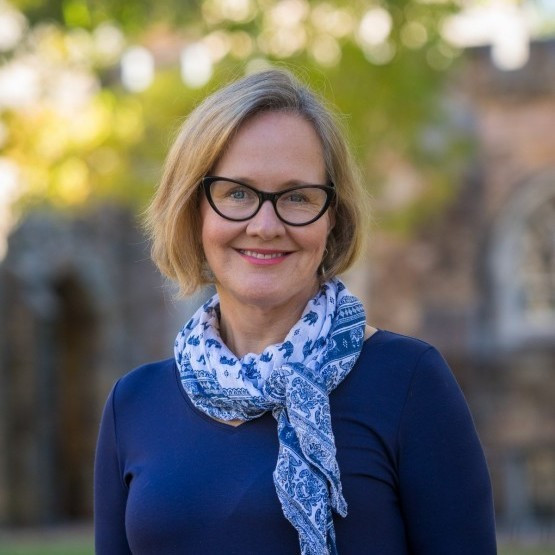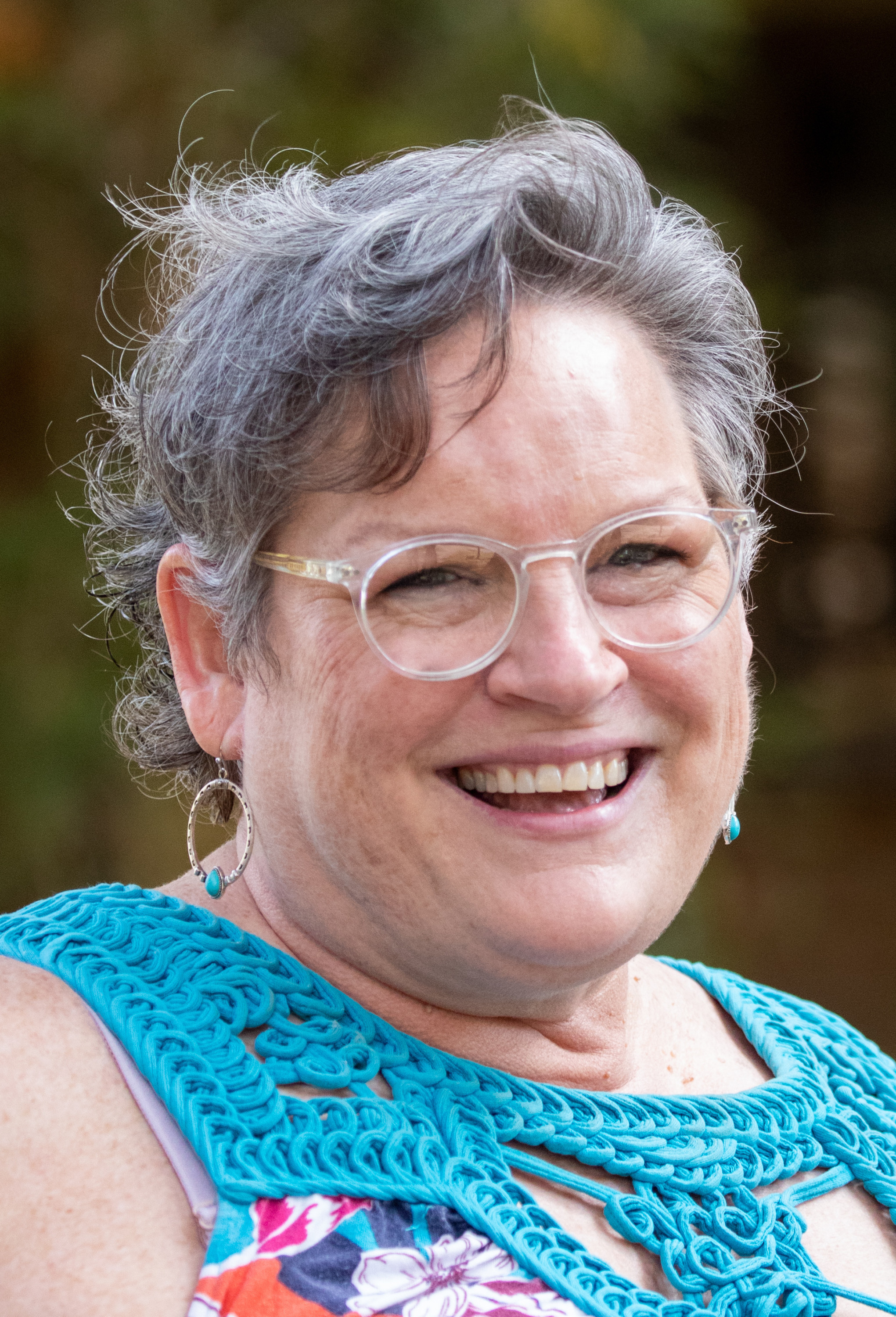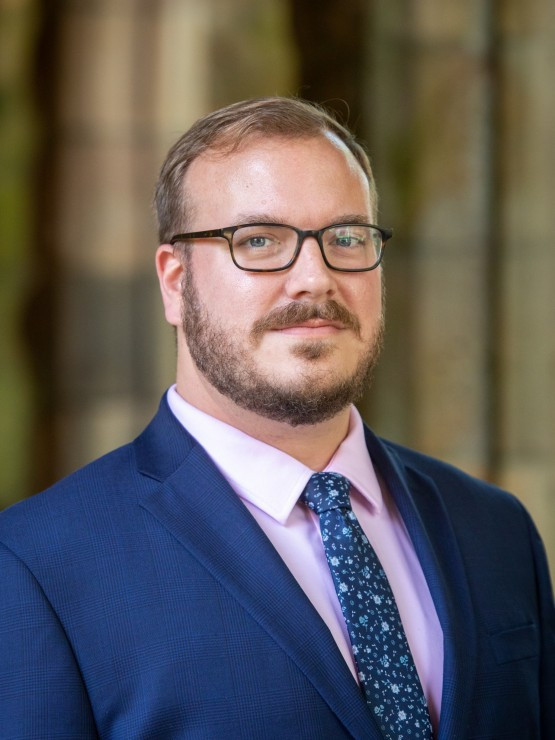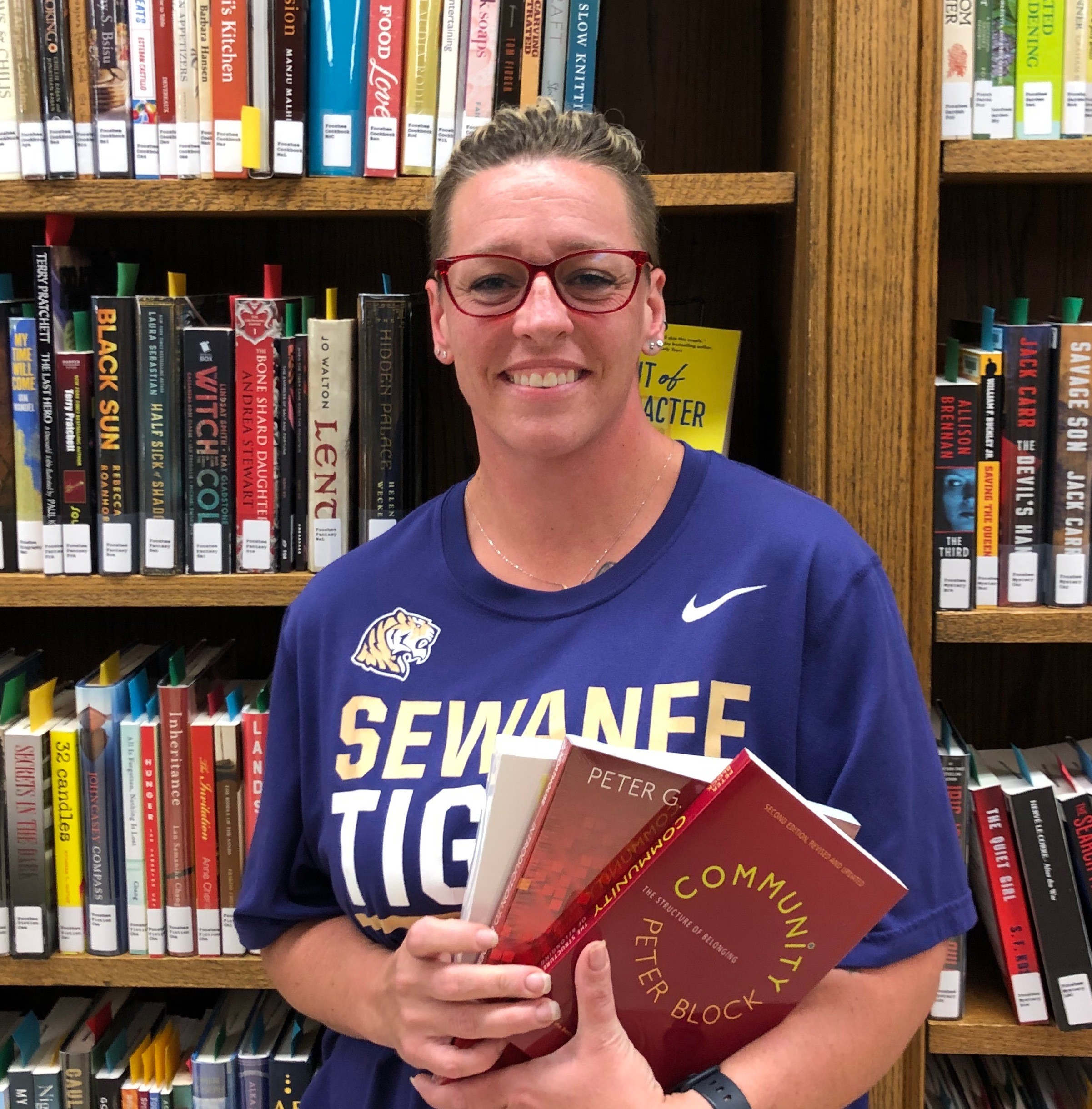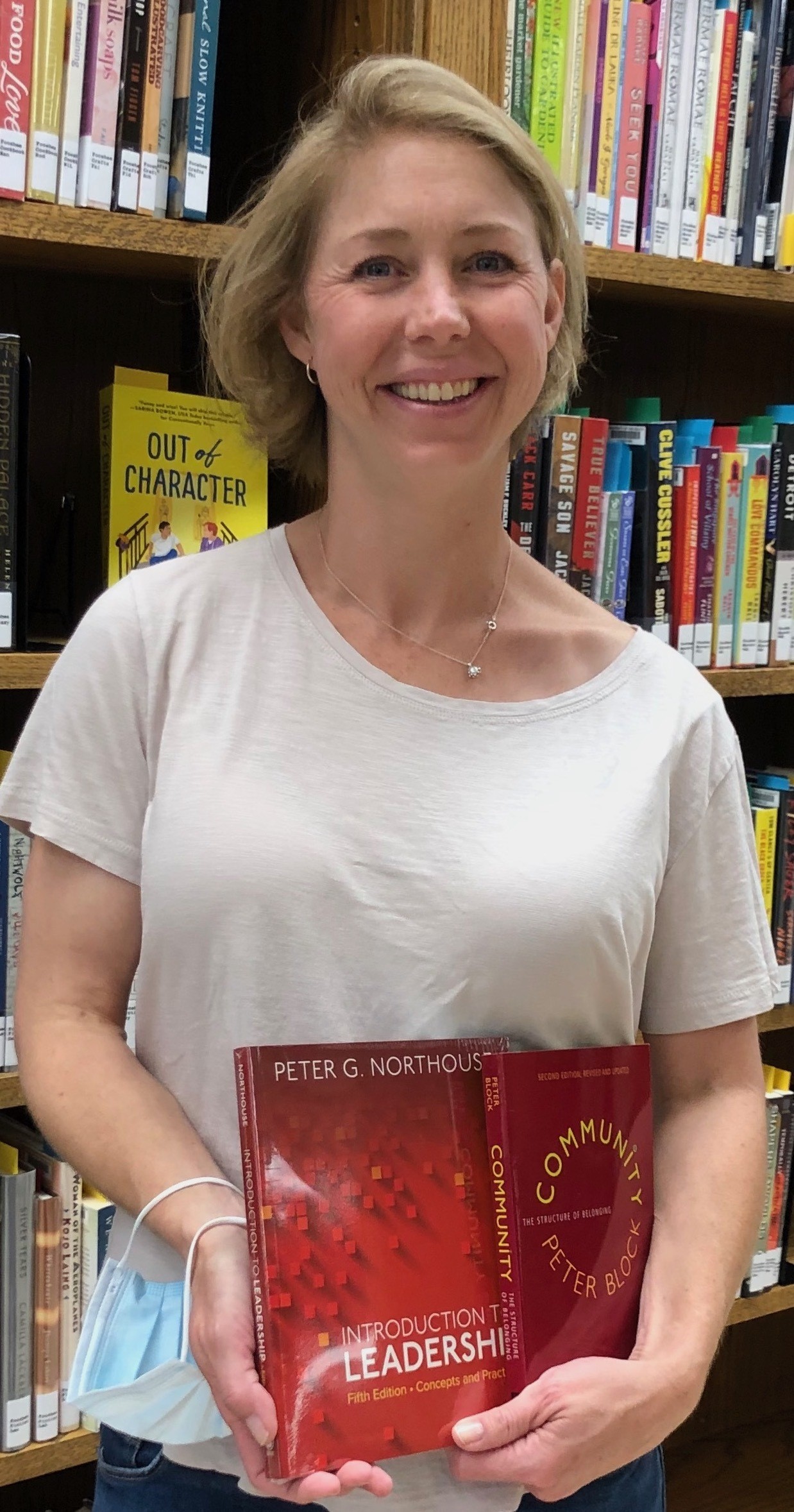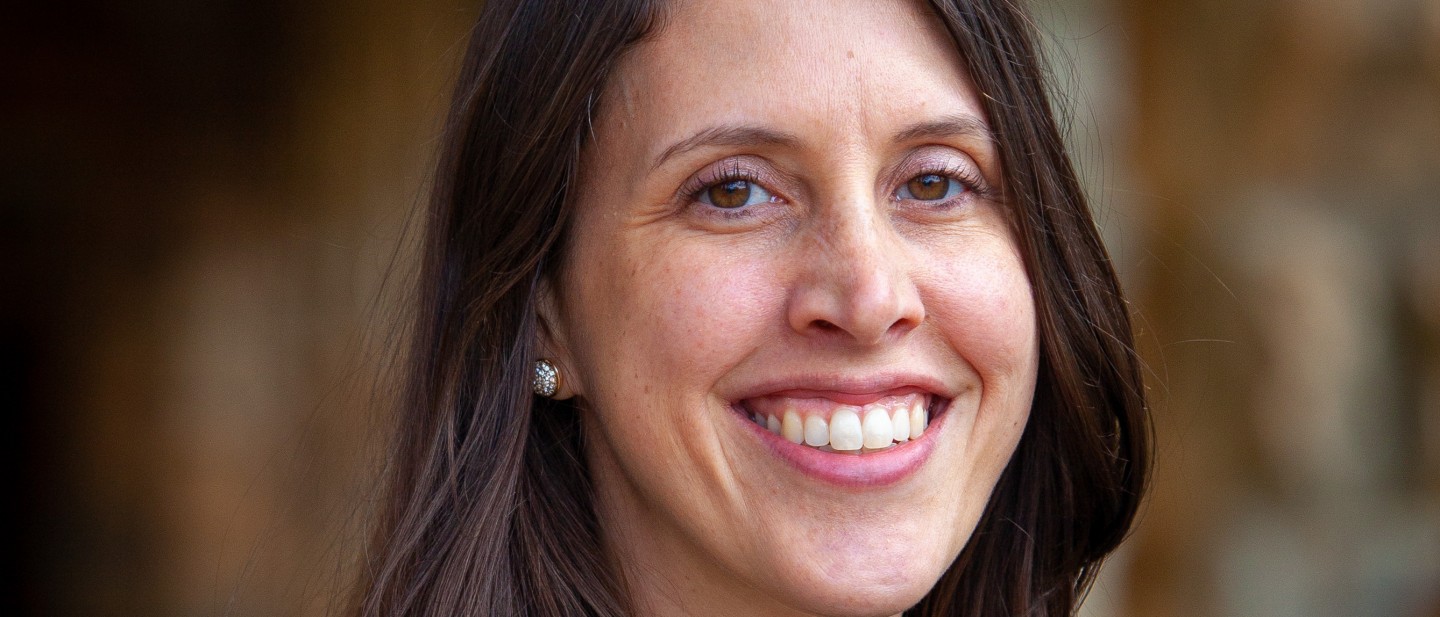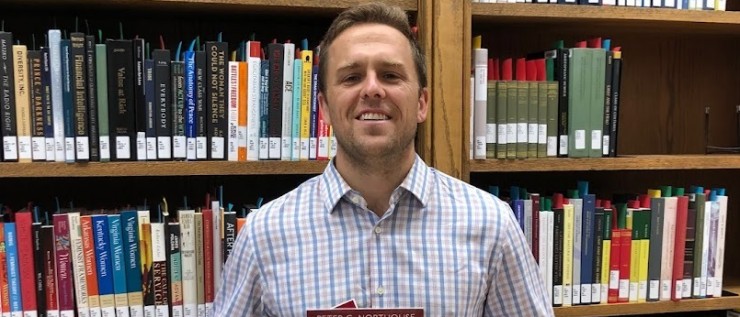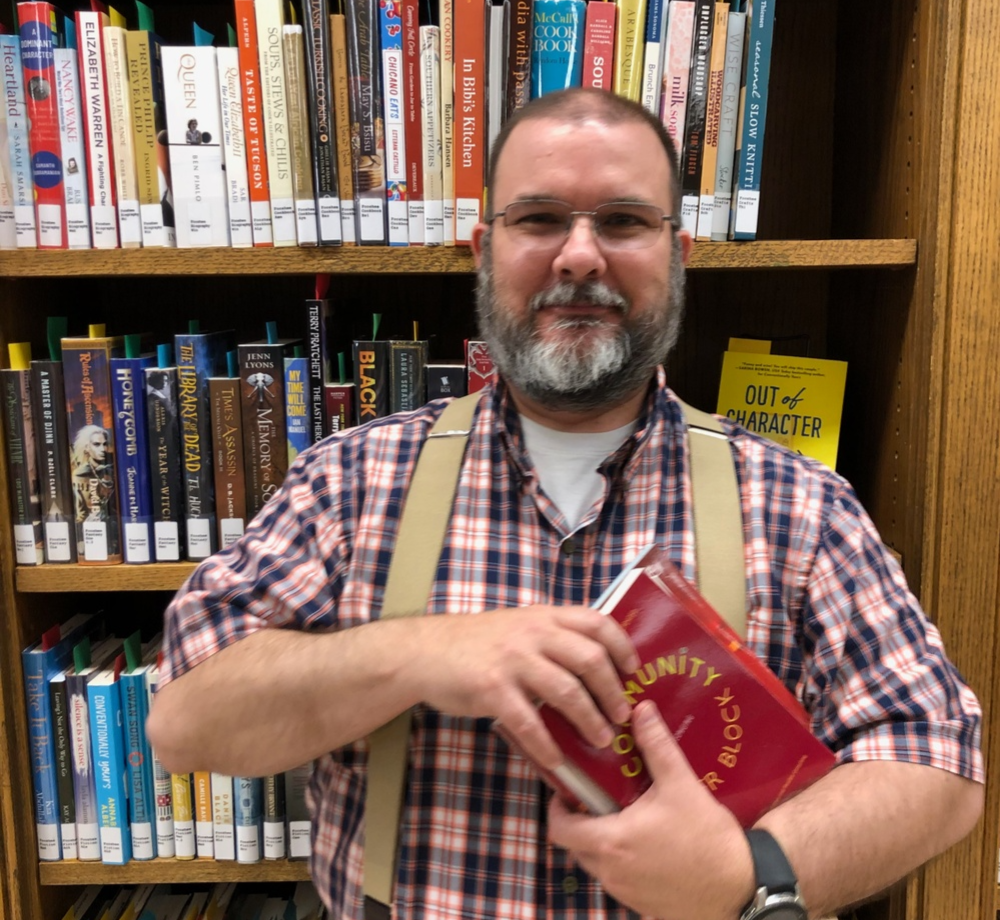This blog is for reflections by participants of Sewanee's Leadership Lab. Its purpose is to share insights with fellow colleagues about leading and learning.
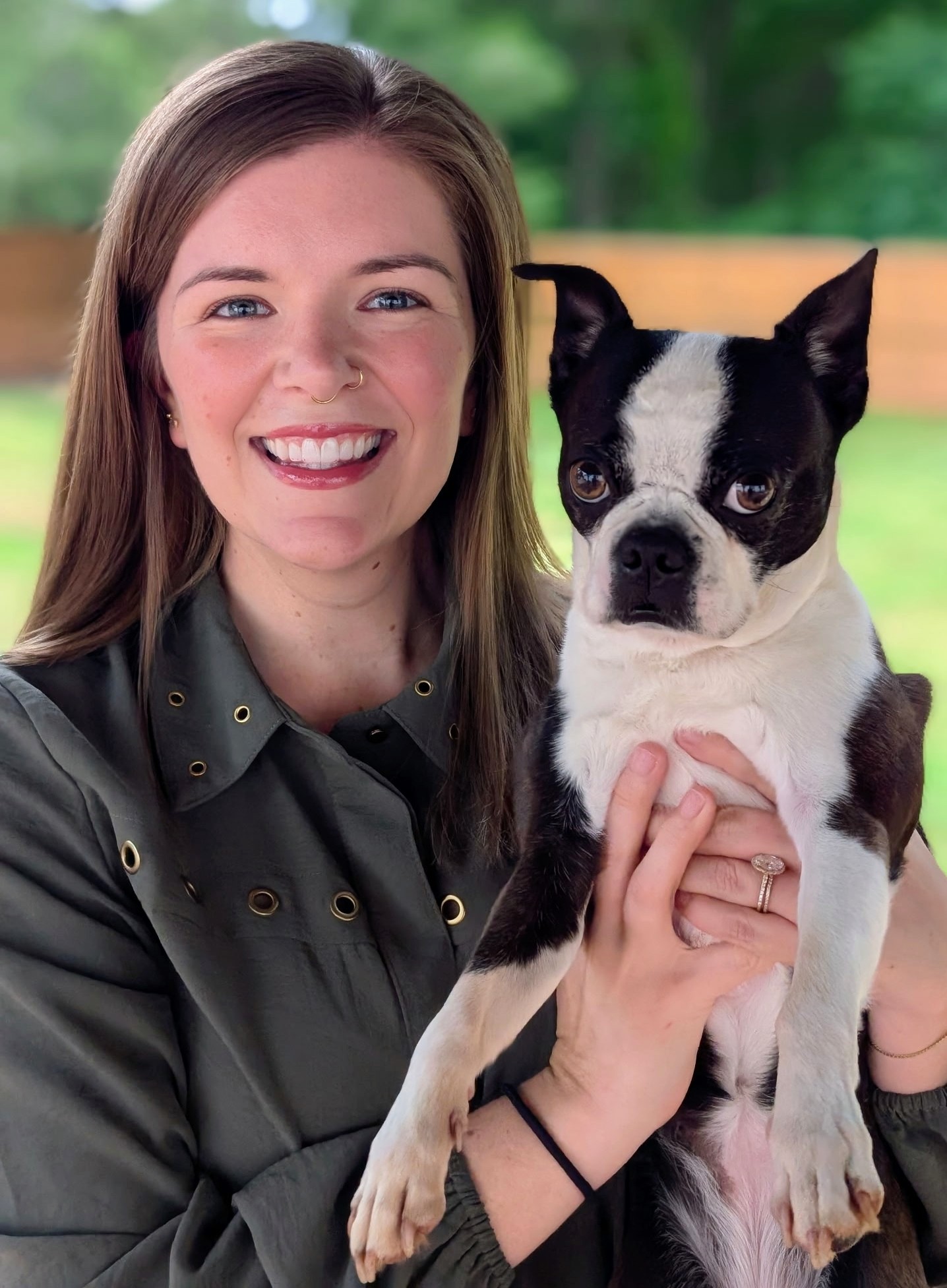
Katy Morgan: Assistant Professor of Psychology
April 2025: "I joined the Leadership Lab because I wanted to explore how leadership shows up in my work as a teacher, researcher, and community partner, and to better understand how others across campus are navigating similar questions in their own roles. Over the course of the year, we’ve reflected together on what it means to lead with intention, to adapt to new challenges, and to bring more of ourselves to our work. We closed out this year-long journey with a series of Leadership Journey Presentations that took place over three weeks, giving each of us the space to share our stories and really listen, reflect, and offer feedback to one another. It ended up being one of the most rewarding parts of the entire experience.
What struck me most about the presentations was the range of identities and experiences that surfaced, many of which we hadn’t seen before in our year of learning together. Some people drew on parts of themselves that exist outside of work: we heard from a golfer, a Girl Scout troop leader, a cyclist, a rock collector, a Spartan racer, and a dog mom (me!). Others drew more directly on their professional identity, weaving together who they are and what they do. One person traced their evolution as a director across time; another brought in the literal salamanders their office works to protect in order to talk about purpose, connection, and responsibility. One career coach drew parallels between their role and the iconic coaching style of Ted Lasso. These presentations reminded me how multi-dimensional leadership is, and how powerful it is when we make space to see one another more fully.
While the Leadership Lab focused on professional development and leadership within work, it also created a sense of community that made those conversations feel more resonant. Over time, we came to know and appreciate each other as whole people, not just as colleagues. In the final session, we closed by sharing wishes for one another’s leadership journeys. Many of those wishes focused on self-trust, grace, confidence, and care: that we would recognize our strengths, avoid overextending ourselves, and give ourselves permission to dream big or take a well-deserved pause. My own wish was that we stay connected, continue to learn from one another, and check in with each other as we return to our own little corners of the institution. More than any single insight, framework, or theory, the relationships we built may be the most enduring takeaway, and the one that will continue to shape how I lead."
Julie PowelL: Program Coordinator, The Babson Center
March 2025: "One of the highlights of being a member of Leadership Lab is getting to know the other members of the group. At the beginning of each session we have the opportunity to make connections with one another before delving into the content of the course. We are given a journal prompt to write about for a few minutes and then share with a partner. The theme of this week’s class was inclusive leadership. Part of our preparation for the class was to learn about the stages of being an inclusive leader and to consider how we can use our power and skills to advocate for others. We started the class by reflecting on a time we felt invisible, unwelcome or out of place.
For a homework assignment, we watched the movie “Hidden Figures” about three African-American women who worked at NASA during the 1960s. As women and women of color working as mathematicians, they faced many obstacles, including having separate restrooms and even coffee pots. Katherine Goble, Mary Jackson, and Dorothy Vaughan were seen as outsiders by their colleagues. These women were able to create change for themselves and those around them, and NASA became a more inclusive working environment. As we approach the end of our time in Leadership Lab, this movie was a great display of the ideas we have been discussing.
We participated in an activity exploring the challenges and successes of inclusion at Sewanee. We concluded that there are many bright spots on campus that offer inclusive programming for students, including the Division of DEI, Career Readiness and Student Success, the Wellness Commons, theme houses, All Saints’ Chapel, the Office of Civic Engagement, and many others. Many barriers to inclusion at Sewanee impact faculty and staff, such as low wages and the cost of health insurance, and housing. As we develop as inclusive leaders on campus, we are called to be courageous and to take action to create more belonging."
Elizabeth Swallow: Career Readiness & Student Success Coach
March 2025: “Leadership is everyone’s business. This was the chapter to discuss as we wrapped up our text: Leadership in Higher Education by Kouzes and Posner. It mentions “all leaders are born and all leaders are made”. Our group discussed that everyone has the ability to be a leader, since leaders aren’t inherently born great, but rather develop and refine their leadership skills. It was expressed that great leadership is not possible in isolation, as the best leaders are humble, since they recognize the importance of community and that you can’t do anything of significance alone.
Delving deeper into the concept of leadership is everyone’s business - we all have a part to play no matter where we are in the hierarchy of an organizational structure. How are we able to distinguish leaders vs. managers? The group discerned that managers are not synonymous with leaders. Managers focus on workplace maintenance whereas, leaders believe that they can see, and are a catalyst to, making a significant change for the better.
A final statement by Kouzes and Posner said “The secret to success is to stay in love” as a critical element of a leader's own motivation. Surprisingly in their research, “Of all the things that sustain a leader over time, love is the most lasting”. As a group we debated the sentiments of this statement. We wondered:
-
How to maintain our whole selves while working in a capitalistic society?
-
Do we need to consider how we define loving our work: loving the tasks vs. loving the mission?
-
How much devotion do we want to dedicate to our life's mission?
-
What are the sacrifices?
As we wrestled with these questions, it felt like Kouzes and Posner imposed a serious devotion to love and we pondered the necessity to love in that capacity. It didn’t feel true that people are loved by labor, after all we live in a capitalistic society. However, thinking about love in a binary, all or nothing way of thinking, doesn’t account for the nuance and spectrum of where we choose to exist. Recognizing that leadership doesn’t happen in isolation, it happens within communities, but it also exists within a greater societal system that provides its own demands and pressures. Even great leaders may have to make choices to preserve their own personal boundaries. Maybe an even more testing lesson for leaders is that we have a responsibility to respect and honor other people's choices and values in their own decision to show up and “love” their work.
In preparation for this week, we created our life mission/purpose statement and leadership philosophy utilizing Franklin Covey’s framework. This project consolidated our prior ten weeks of thinking and development about our own leadership identity and philosophies. It helped us create an initial language around our leadership habits, contributions, values and principles, and overall mission statement.
We ended the session with image cards, selecting 1-2 images that resonated with a leadership message that we needed to hear, with the aim to learn from our inner leader. Everyone's answers were enlightening and distinctive.
As this work in the Leadership Lab is deeply personal and reflective, this group continues to strengthen its relational ties and bonds as we continue to learn, trust, and grow together in our leadership identities.”
lasenia ladd: assistant custodial supervisor, facilities management
February 2025: "Today’s class was very helpful to me. The focus for this class is the exemplary leadership practice of “Encouraging the Heart.” At the beginning of class, each of us shared a time when we felt appreciated at work. Hearing these shout-outs to start the class was very encouraging after a difficult morning as an assistant custodial supervisor.
We then talked about how to build trust and encourage the hearts of faculty and staff colleagues. In small groups, we worked on ideas to make campus better and more enjoyable for everyone.
VC Pearigen came to visit with us for the second part of the class and we got to ask him questions. His hope is for us to remember in our work to put our students first. I think that motto is a great way to look at our jobs here on campus because if it wasn’t for the students, we wouldn’t be needed here.
As a leader, I’m learning how to be more productive and efficient in my daily work. I’m enjoying getting other ideas and input from colleagues in their professions. We are all in this together."
Kevin fouts: WIldlife Biologist, Environmental Stewardship & Sustainability (OESS)
January 2025: "Class is back in session and the LL7 cohort is clearly beginning to gel halfway through our journey. As our familiarity has increased, so too has the liveliness of conversations and casual humor that only emerges after a group gets socially comfortable. The growing synergy is well timed, as this week’s focus was Enabling Others to Act, and it feels we are becoming more adept at doing so within the “Lucky Seven/LL7” group. The lessons of this meeting focused on how we can bring those approaches and tools with us back to our respective departments and the University community as a whole.
I applied for Leadership Lab due to burgeoning awareness my innately analytical valuation of leadership lacked appreciation for abstract qualities that, nevertheless, contribute to its effectiveness. I wanted to hear perspectives from other offices and departments regarding approaches they’ve found successful, even though they may be tough to define and their influence difficult to measure. The Leadership Lab training has helped establish a common articulation of those more abstract approaches in a way we can not only discuss them, but determine how and when to best apply them. This week, we focused on understanding personality types, so that knowledge can be applied to designing meeting space and structure that encourages increased participation and representation.
Our main vehicle for exploring different personality types was the MTBI® assessment. After reviewing our own MTBI® Type by examining our four preferences, we completed an activity to visually demonstrate where each member of LL7 fell along the gradient of each preference. The diversity just within our small group illuminated the need to account for personality types when convening groups or committees pursuing an objective. As Peter Block stated in a prep video for this class, a broadly approachable environment is imperative since “you don’t start with the people that need it the most, [you] start with the people willing to come” because “the task of leading is a convening function.” While acknowledging contributors need to actually attend your meeting for it to be successful is intuitive, framing the role of leadership as convening constituents to facilitate community selected outcomes was thought provoking to me. I’d always regarded the role of leaders as proposing and enacting solutions based on feedback from their community, but leading by convening is simpler and more altruistic than an administration simply passing down ‘solutions’ after input from the community. As page 91 in our Leadership in Higher Learning text attests, earned trust is essential for effective leadership--because leading inherently requires depending on others. Allowing communities agency to choose their own pathways to problem solving is a terrific tool for building trust between leaders and their communities, and I am excited to add it to my leadership toolbox."
Mila Dragojević: Professor of Politics, Department of PoliticS
December 2024: "This week, the class examined how to use conflict constructively as leaders. We began by journaling what it means for us to challenge the process of leadership and how navigating conflict plays a role in making bold choices. Both of these questions are related to the five practices identified in the Leadership Practices Inventory (LPI) by James M. Kouzes and Barry Z. Posner, which includes seeking out opportunities that test ourselves, challenging people to try doing their work in different ways, actively innovating and improving our work, asking ourselves what we learned from unexpected events, identifying measurable milestones to ensure that we are moving ahead as planned, and taking initiative in anticipating change. Just like other participants in the leadership lab, I find myself in a leadership role that may not look like a classic leadership role. As a professor, I am primarily a leader in the classroom, and throughout today's session I was thinking of how I can employ these practices in my work with students. I encourage my students to provide critiques of the established theories and explanations, to explore and research independently, and to think originally.
In preparation for today's class, we took the CDP (Conflict Dynamics Profile) assessment that shows our unique ways in which we respond to conflict, including our "hot button" issues, and our constructive and destructive responses to these and other issues that may emerge in conflict situations. We also read the chapter "Challenging the Process" and identify something in the text that influenced us. Among the issues that were brought up were that micromanagement limits the process of learning from mistakes. It is safe to try new things and then make corrections, or re-set the bar, as needed along the way. Among other discussion points, we reflected on the quote that "leadership without change is merely ceremonial." This was found to be both true and untrue. It can be so when the change is needed to resolve the ongoing issues. However, this change can also be incremental, and it may not need to come from the top necessarily. In other words, the leader may be successful in empowering people to create improvements themselves. In this case, the leaders' influence and contributions may not be visible immediately, but only upon a closer study of the organization and the particular leadership dynamics.
One of the key take-away points from this leadership lab session was that leaders can learn how to challenge the process of leadership by engaging in one of the five practices outlined earlier. In particular, I will continue to inquire what some experiences at work, and in life, that don't go as anticipated originally can teach us. These lessons then can be used not only for improving future responses, but also for anticipating problems and building proactive solutions. Another take- away point was that regardless of how we tend to resolve conflict, or what hot-button issues move us particularly, we should not feel "boxed-in" in those categories. Rather, we should use this knowledge from our self-assessment to learn how we can better resolve the conflict in the future by perspective taking or delaying our response, for example. In other words, just as we can empower others, we can also feel empowered to change and learn how to navigate conflict as leaders."
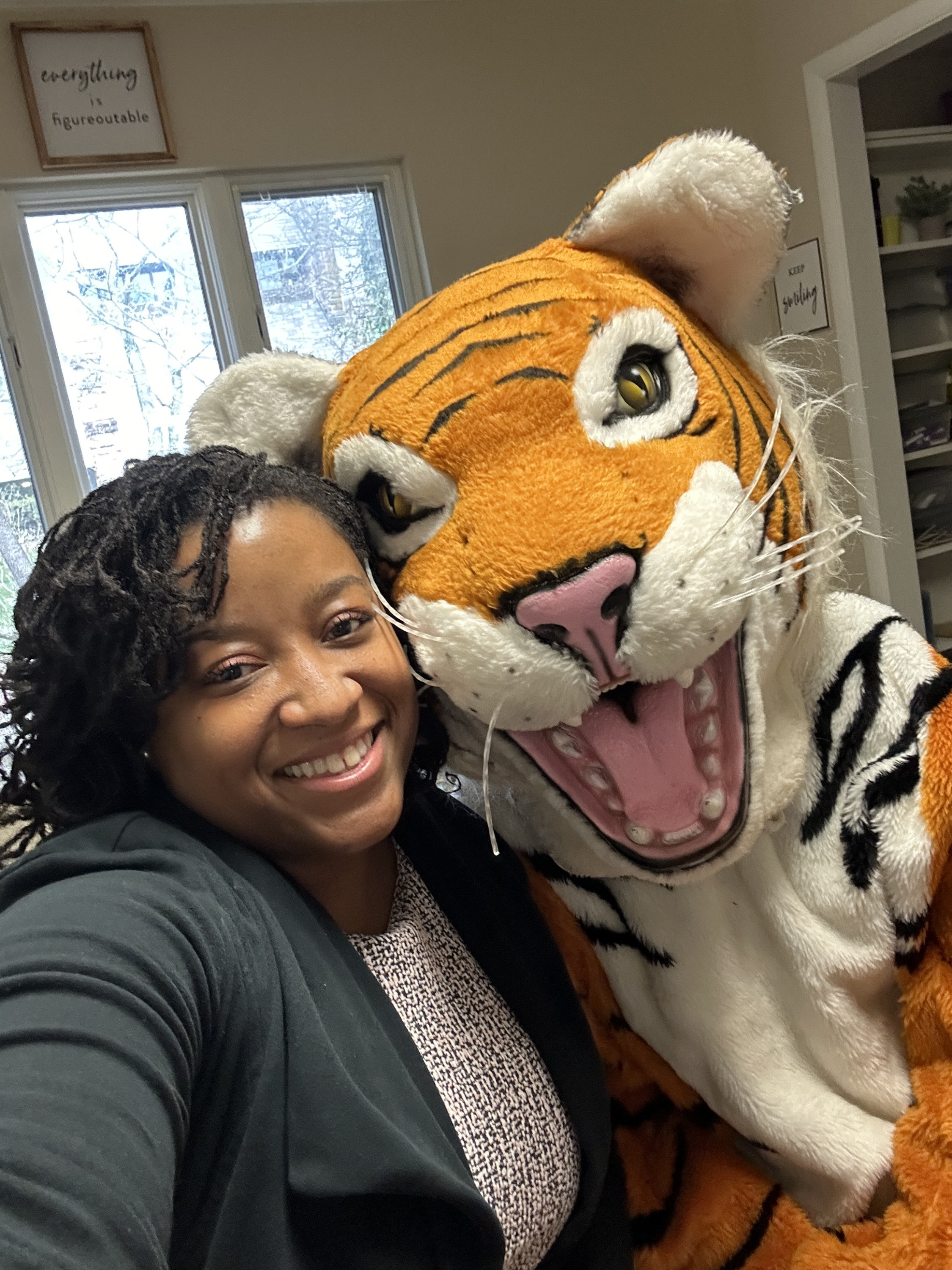
Tarneka Ezell: Assistant Director of Inclusive Programs & Student Engagement, Office of Inclusive Excellence
December 2024: "Our objective during this class was to strengthen our vision-crafting leadership behaviors. We began by discussing our journal prompt: “Leadership matters because…”. Each group identified three words that reflected our journal responses. Some of the words shared were "guidance", "progress", "create structure", "common purpose", and "unite". To our surprise, every group chose to focus on the positive aspects of leadership. Personally, I believe leadership matters because it influences the direction and success of a group. Without leadership, there would be chaos and confusion.
Next, we broke into partner groups to discuss our LPI (Leadership Practices 360 Inventory) results. I discovered that others see leadership skills in me that I hadn’t recognized in myself. Since starting the Leadership Lab, I’ve learned a lot about leadership and about myself, and my perspective on what leadership entails has shifted. During the discussion, my partner and I realized we were both tasked with working on “leading up.” This raised the question: how do we effectively lead up? I’m eager to learn more about this in class and gain insights from our lab partners.
Our assignment this week was to read Chapter 3 of "Leadership in Higher Education". The chapter emphasized that exemplary leaders must inspire a shared vision that resonates with the values and aspirations of everyone involved. Leaders must also reflect on the past to move forward and understand their own guiding themes. Energizing others with their vision is crucial, as a leader’s energy is often mirrored by their constituents.
My key takeaway from the chapter is that you can’t impose a vision on others—it must hold meaning for them as well as for you. If the people you lead can’t see how their needs align with the larger vision, they’ll be reluctant to join the effort. During class, someone referenced the quote, “We become the leaders we want to see in the world.” I found this especially true. Although I haven’t yet fully recognized all the leadership practices others see in me, I believe I’m quietly leading and striving to make a small but meaningful impact in the world.
Our final activity was the Troika Consulting exercise. We started by closing our eyes and imagining a project we wanted to bring to life. Next, we detailed our vision for the project before grouping into threes. Each round, one person acted as the “client” and shared their vision, while the other two served as “consultants” who helped refine and expand the vision. The client listened with their back turned while the consultants “fanned the flame” of their idea. It was inspiring to see how excited and motivated everyone felt after hearing feedback.
I am thoroughly enjoying the Leadership Lab and am so thankful for all that I’m learning. I look forward to continuing this journey in our next class!"
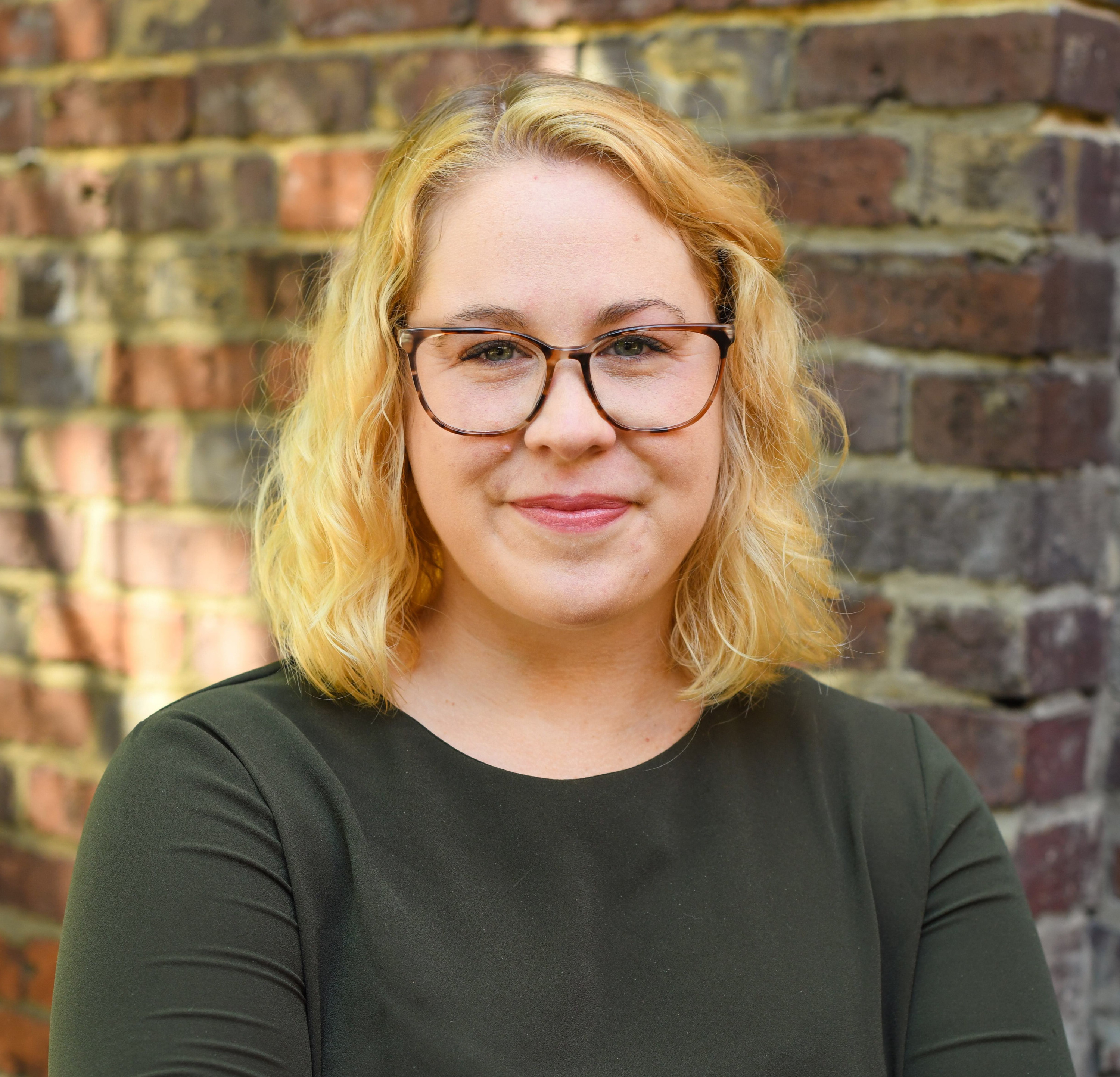
Sarah Lacy Hamilton: Assistant Professor of Directing, Department of Theatre & Dance
December 2024: "Our Leadership Lab session this week focused on “Modeling the Way.” We each completed an assessment to define our top 3-5 values (a difficult thing to do!) and discussed how we live those values in the way we move through the world. An emerging theme in our work is the importance of doing what you say you will do and acting in a way that is aligned with your values. Leaders who do this are far more likely to be viewed as effective by their team members.
The bulk of our session this week was dedicated to writing our own obituary; we were asked to envision the way we want to be remembered after a long and full life. This was an opportunity for us to explore how we might “model the way” of our values throughout our life. Both this exercise and the values assessment called for deep reflection about the things that are important to us. They asked us to consider actions we can take to center our lives, both personally and professionally, around our core values.
My biggest takeaway from this week’s session: we are more than our labor. Our effectiveness as leaders is not derived from the sum of our work hours or the number of tasks we check off our list. It is easy to believe capitalism’s lie that our worth comes from our productivity, but what my colleagues’ wrote in their imagined obituaries proves the opposite. Most people, if not all, wanted to be remembered by the relationships they built and the values by which they lived. Not by the amount of overtime hours they worked or the number of times they “exceeded expectations” in their annual review.
This leads me to wonder about leadership practices that resist the capitalist urge to produce-at-all-costs. What is possible when leaders dedicate time for dreaming, imagination, and rest? What happens when we prioritize our humanity over our productivity? How can boundaries in our work life lead to a more sustainable, healthy existence?
Pondering these questions leads me to model the way this week by slowing down, prioritizing rest, and setting aside time to dream about the future I want to see. Through this practice, I hope to cultivate a leadership style that aligns with my values, nurtures relationships, and focuses on collective well-being."
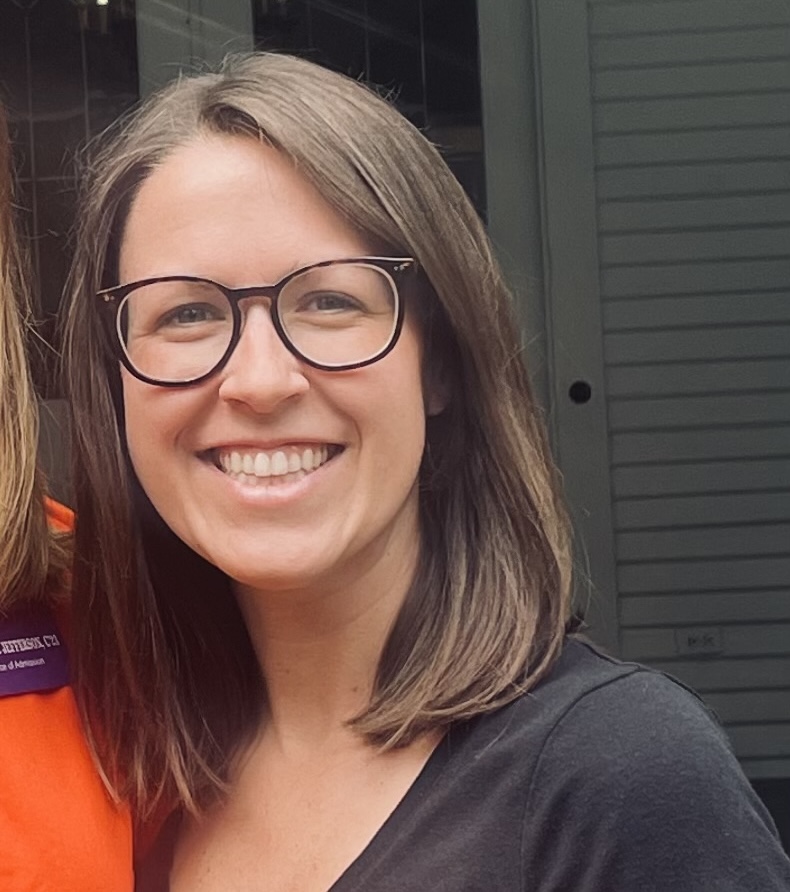
Laura Beth Merrell: Associate Director of Campus Visits and Events, Office of Admission & AID
November 2024: "This week's leadership lab was challenging. With the final election results just in, some classmates arrived excited while others felt deflated. Emotions were high, but our discussion centered on how leaders sometimes need to set aside personal feelings to prioritize those they lead. This conversation felt timely as we wrapped up the first chapter of Leadership in Higher Education, which emphasizes leadership as a relationship. A favorite quote from the chapter states, “At its core, leadership is not about position or title. It’s about caring, about relationships, and about what you do.”
During our group discussions on relational leadership, we all found ourselves focusing on the “do” aspect. It’s inspiring to see leaders willing to get involved in the hard work alongside us—not necessarily all the time, as roles vary, but knowing a leader would roll up their sleeves if needed can be incredibly motivating.
Another powerful insight from the chapter is that the best leaders work to give away their power. This concept was new to me, but I can see how impactful it could be. If leaders aren't genuinely invested in the betterment of their employees, can we even consider them true leaders?
Lastly, the chapter highlights the top four qualities that 100,000 respondents in higher education identified as essential in their leaders: honesty, competence, the ability to inspire, and a forward-looking vision. Honesty builds trust, allowing leaders to establish genuine connections with those they lead. Competence reassures people that their leader is knowledgeable and capable, providing a sense of stability and confidence in their direction. The ability to inspire keeps teams motivated and engaged, especially during challenging times, and a forward-looking vision helps guide everyone toward a shared purpose and goal. Together, these qualities create a foundation for effective leadership rooted in trust, respect, and shared aspirations.
My key takeaway from this chapter is that relational leadership isn’t just beneficial—it’s essential. Leadership isn’t simply about overseeing tasks or making decisions; it’s about building connections and empowering others. When leaders invest in relationships, they foster a culture of trust, collaboration, and shared purpose that benefits everyone involved. Relational leadership encourages leaders to be genuinely invested in their team members’ growth, helping them reach their potential while advancing shared goals. This approach also creates resilience within a team, as mutual respect and open communication make it easier to navigate challenges together.
I look forward to continuing to grow and learn with my fellow LL7 friends!"
Kataren ray: Biology lab coordinator, biology department
October 2024: "For this week’s lesson, we tackled what I perceive to be somewhat an uneasy, stressful, harmful yet very necessary topic to address - toxic leadership. To help us better understand what can lead to toxic leadership, we dissected the Toxic Triangle which is a theory that involves the combination of three elements - destructive leaders, susceptible followers and conducive environments- that can lead to destructive leadership. I myself, as this triangle theory was new to me, learned that all three elements play a part in the toxic triangle and no one entity takes on the blame and responsibility.
We additionally gained some insight on how to navigate away from toxic leadership from the Dare to Lead podcast by Dr. Brené Brown where she discusses armored versus daring leadership where armored leadership banks on shame and blame and daring leadership exudes empathy and self-compassion. Some points that were highlighted in class included asking for help being perceived as a sign of weakness but rather something that no one should be shamed for and is expected at all levels and being equipped with the tools needed to have hard conversations.
We discussed a case study that examined leadership practices that aligned with the toxic triangle network where the leader’s leadership style was seen as controlling; the followers were in a state of fear reinforcing the leader’s power; and the conducive environment was affected by unstable factors which in turn elevated the negative impacts of the person’s leadership. So, what active steps can be taken to produce healthy triangle systems in order to prevent modeling toxic leadership? We propose to not use the leader for one’s benefit. Establish common ground between the leader and the followers on the front end. Assume positive intent – both ways. Be genuine about getting to know your leader in order to create an inviting, unbiased environment.
I will wrap up on this high note: Amazing. Incredible. Inspiring. Perseverance. These are just a few of the many words that capture the lives that LL7 have led. Our assignment this week was to present an overview of our lives to the group. Many of us have stared adversity in the face and have turned that adversity into triumph. We’ve learned languages, traveled, led many career paths, and possess and profess rich, proud heritage and origins. I am truly in awe of the amazing journeys LL7 have led thus far. Learning more about each other each week has been such a joy and look forward to all that is in store for this leadership journey. We’re just getting started and I am grateful to be along for the ride."
Rob Bachman: F.B. Williams Professor of Chemistry; Director of Finding Your Place (FYP)
October 2024: "For several years, I have been wondering about my many roles on campus. What did I do in those roles? How could I do it better? During this time of contemplation, many colleagues shared how being in the Leadership Lab was such a positive, impactful experience. “You should try it out!” I almost applied for the last three years; today, I am glad I listened to them. Even in the few weeks that our cohort “Lucky Seven” has been together, it has been an eye-opening experience full of insight and understanding and a tremendous opportunity to build new friendships across the campus.
Among our first assignments was taking the CliftonStrengths© assessment, which I did the first time in 2012 and again in 2020. I know you really aren’t supposed to take it multiple times, but retaking it after several life-altering experiences felt like a unique opportunity to learn how those might alter one’s strengths. Many of my top traits have stayed exactly the same, but others have shifted around notably. I am still trying to fully understand how underlying personal experiences or professional roles might have changed my leadership approaches and style. (Hello, new Top 5 trait Context!)
Between our second and third lab meetings, we had the opportunity to discuss the deeper meaning of our CliftonStrengths report one-on-one with our fearless leader, Elizabeth Wilson. During this session, we had an unexpected conversation about a faculty member’s tripartite —teaching, scholarship, and service. I say unexpected because Elizabeth was surprised that I see the idea of leadership as a part of a faculty member‘s service roles, not the teaching and scholarship roles. Since that conversation, I have asked several people on and off campus about their perspective on this split, and many immediately stated how much leadership there is in teaching. However, at least one faculty colleague fully understood my viewpoint that the label of leadership is more often applied to service work than to other parts of our lives. I think it could be very beneficial to start a broader conversation among faculty around the idea of leadership in every aspect of our lives.
In our third meeting, we began by considering three leadership styles-- democratic, authoritarian/autocratic, and laissez-faire—and when we might have observed these styles in action. As part of this exploration, our homework included watching Invictus, the inspiring true story of how Nelson Mandela and Francois Pienaar used rugby as a vehicle of community building in post-Apartheid South Africa. We all found moments of leadership depicted throughout the movie, but we rarely or never found them with a well-defined singular label. Instead, Mandela and Pienaar both actively mixed these prototypical styles and adapted their leadership approaches as required by the situation. My takeaway from this conversation was that great leadership is achieved not via a singular style but by using a multi-dimensional mixture of styles adjusted to the context.
Interestingly, both my conversation with Elizabeth and our discussion of Invictus have led me to begin to see the leadership aspects of teaching and focus on the mixture of leadership styles I use both in and out of the classroom. I can’t wait to see where the Leadership Lab journey takes me in the coming months."
leslie parson: head pastry chef, McClurg dining hall
September 2024: "Greetings and salutations! Coming to you live from the Center for Leadership, located in the heart of the Sewanee community, It’s the seventh Leadership Lab cohort! And here is your host for the evening, Leslie Parson!
I’d like to thank each and every one of you for tuning in to the first blog post for the fresh year of Leadership Lab. This is the seventh group to engage in the program and we all have high hopes for the coming year with learning and growing together.
Our talented folks in the group come from all walks of life to bring fresh perspectives to this program. We all have different experiences and challenges that drive and complement each other. During our last class we gathered to mull over what it meant to us to be a leader. Each one had their own ideas and definitions of what leaders and leadership looked like. It was a very eye-opening experience to see what everyone had to say.
We also become more familiar with each other every time we meet. The Center for Leadership offers a safe and quiet space for the group where we can learn and grow. Thoughts and expressions can be voiced with confidence knowing that our members are insightful and supportive. It is really a fantastic collection of people within the cast of the Leadership Lab.
Everyone is excited for the future of our personal growth in leader positions in both the University and our own lives. Stay tuned for the next upcoming blogs starring our fabulous cohorts in the 2024-25 Leadership Lab. We look forward to giving you sneak peeks into the exciting journey ahead! Until next time, have a lovely day and treat everyone with kindness!"
April Alvarez: Associate Director, Sewanee School of Letters
May 2024- This former Leadership Lab participant is featured about the projects she has led since completing the program, discussing how her Leadership Lab experience influenced her leadership approach.
-
Will you please describe the change or accomplishment that you have led since you finished the Leadership Lab in 2020 as part of the second cohort ("LL2")?
I’ve assembled a team across disciplines and departments to tell the story of the Ely Green memoir, Too Black, Too White, as an upcoming podcast series.
So, Ely Green was a biracial man born here, and he ends up returning to Sewanee over 50 years after he flees, to publish his memoir. It’s a pretty unique book in American literature, and it tells the story of his life from his wild mountain life Tennessee to his days of working as a chauffeur in Texas, to being a stevedore in a segregated world war. He settled in Los Angeles to see the rise of Black Hollywood, perhaps had a hand in a little bootlegging, and witnessed the desegregation of airplane factories in World War II. All of his life he writes and keeps a journal. We’re calling it The Suitcase: He throws himself onto his suitcase when he flees Tennessee on a railcar, and returns 50 years later with 1200 handwritten pages of his life story—stuffed into a suitcase.
Our team is:
- Dr. Hannah Huber, digital archivist and scholar, Sewanee’s Center for Southern Studies
- Sam Worley, L’23, an award-winning journalist who finished his Sewanee MFA in December 2023
- Karla Diggs, L’25, a novelist who is a current Sewanee MFA candidate
- Bruce Manuel, C’80, L’23, an SSL alum who is voicing Ely Green
- Thomas Lakeman, consultant, C’86, former Tennessee Williams fellow
- Will Davis, consultant, Director of UTC’s PodLab, currently producing a project with Audible
- Sara Terry, consultant, journalist who has produced award-winning documentaries
And we have important sources right here on campus that include people like Dr. Tiffany Momon, Dr. Woody Register, and Mandi Johnson of the Archives, who have been generous in sharing contacts and research. Graduate students Kristy Sherrod and Ayo Alofe focused on this book for their independent studies, and we’ll be interviewing them for an upcoming episode. My colleagues at the SR have also shared time and expertise.
The project has given me a chance to grow into my role not only as an interviewer and writer, but as a producer who has the responsibility of seeing this through. That is one of the great things about working at a university: meeting people with expertise and experience. I love working with a team of people. It’s easy for people with academic ties to coalesce around important and interesting ideas. It’s the same for this story, which also has a few mysteries attached to it.
-
Now, let's delve into the background of your project. What were the circumstances or challenges that led you to pursue this change?
In the Leadership Lab we were working on our purpose statements. Eric Hartman said it would either come in one sudden bolt or after much agonizing. I went for the bolt. And he was right. In the middle of the night I sat upright and wrote down:
My purpose is to create the stories that others have not been able to hear.
I didn’t realize it at the time, but I actually used the word hear. For the class I created a leadership audio story, in which I looked at popular takes on *purpose,* from Chadwick Boseman’s speech at Howard, to changing career direction from Hermina Ibarra’s important work.
“You would rather find purpose than a job or career. Purpose crosses disciplines. Purpose is an essential element of you. It is the reason you are on the planet at this particular time in history. Your very existence is wrapped up in the things you are here to fulfill.” CB
“...that the biggest mistake people make is to delay the first step until they have settled on a destination. ” HI
During covid, I wrote extensively on two projects, one being the Ely Green memoir which seemed especially relevant during the summer of 2020. I envisioned it as a multi-episode podcast. I wrote outline after outline, showed it to no one, but eventually started acting like this was a real thing I was working on. At a faculty and staff party, I was introduced to Hannah Huber who also, and this was a shock to me, thought this was a good idea. As we would find out later, Green’s story has a personal resonance for both of us.
It was through Hannah’s role as an instructor that several of our MFA students took an independent study centering on Green’s work. One of them was Sam Worley, who took this cloud of information and ideas and this book and drafted the first brilliant episode. Most recently, I worked with the very talented Karla Diggs on the World War I episode.
-
What internal motivations, pivotal moments, or personal values drove you to initiate this project or change?
The promise of an alignment between who I am and what I do. I am drawn to audio storytelling. My first professional job was doing news at a radio station in North Carolina, and I was naturally led back to audio for that final project in Leadership Lab.
Our motivation is not to tell his story, he’s already done that. In an incredible feat of determination, he wrote and published a book about being biracial through the aftermath of reconstruction, through Jim Crow, through two world wars, and through the birth of Black Hollywood. It’s really singular. Our motivation is to provide context, to shine light on a few secrets, to answer questions that arise from his manuscript—to see what’s really in the suitcase.
We have already found so many things outside the bounds of his book, and we still have so many questions. Just a week or so ago I was working with Karla Diggs, and we requested any of his military personnel records from the office that does that for the government. Now, a lot of people already know that this is a bit of an impossible dream since a giant swath of military records were destroyed in a devastating fire in St. Louis in 1973, esp. Army records. So I had zero expectations. But here’s where you can be surprised. The government has spent decades trying to rebuild some of these personnel records by pulling together an archive from records at local military bases. And when I opened the email from the archives office, I expected— and got —the official letter about why original records are missing, a letter about the fire and just what was lost. What I didn’t expect to see was his name and signature on the last payroll before he was discharged from the Army in Fort Travis, Texas. It’s like finding a handprint on a cave wall - someone saying look I’m here, here is a message that has made it through time. And then Thomas Lakeman started researching some of the officers listed, and also looked closely at the pay - and figured out, that as we might imagine, the pay for the Black soldiers in his unit is of course below the pay of other soldiers with the same jobs. So from one piece of paper we have so many stories.
In looking at his memoir, we have found more than one big mystery, and more than one secret.
And with that, I’ll just say that all of us have found something in Ely Green’s story that is also part of our own. And I’m betting listeners will too.
-
What were some of the major challenges or obstacles you encountered while working towards this change?
Time and money, time and money, time and money.
We are telling a story that everyone feels is vital, but I don’t have all the resources for creating this podcast laid out in front of me. I’m building a pathway one day and walking on it the next.
But that makes you creative, that makes you rethink and recompose with an idea that everything you need IS right in front of you. One of the things that the leadership lab has done is taught me to look around to see what we actually have and what happens when I ask for what I don’t have. I don’t assume everyone will just say no.
Making a podcast about Ely Green is not my job. It’s not even close. However, I have a very supportive director, colleagues who are willing to contribute, who share their expertise, I have students and graduates of our program who are talented and committed, and I have put into place my own resources that allow me to do something very creative and fulfilling. I have friends in Los Angeles and Austin who are willing to take time to make sure we find out as much as we can about this. We have this amazing faculty. We have people whose families here in Sewanee were an important part of Green’s life, and researchers who have already done a ton of work, especially through the University Archives. And even though it’s not a university project per se, it lets me, and this team, contribute to the mission of the university.
Look, it’s one story. I don’t know if diving into this rabbit hole will move mountains, but in this one story, in this memoir, Ely Green tells us a rich and complicated story about being an American. It’s a story that contrasts with a centuries-long narrative about what it meant to be Biracial in this country. And he starts right here in Sewanee, with questions about his family, questions about his access to schools, with revelations about Black neighborhoods and white neighborhoods and lyrical passages about the coves and waterfalls. We always say the domain is our greatest asset, and in the telling of this story, it’s a real touchstone. We can walk where he walked, and ask some of those same questions, and let the words he wrote take us on his journey.
- Reflecting on this experience, how do you feel you have personally grown or developed?
I think by taking responsibility for an outcome. You know me. I am all things research, input, individual stories, learning. Getting this to a finished product is tough. Making a professionally produced podcast that will take us to locations across the country, and who knows, maybe to France, is complex. We are telling a multi-faceted story that is taking us places we might not have expected to go. Every answer turns up a question.
You know, I didn’t expect that we even knew where he was buried. But that information is there, and thanks to people like John Sullivan who always have files and files of research, and thanks to several friends who hoisted me around Los Angeles last fall, I found myself standing by his gravesite in Santa Monica. It was shockingly emotional. I brought Ely Green greetings from Sewanee, and I was crying. I was blubbering into my phone to record the moment, and my friend who drove me all the way from Mt. Washington to Santa Monica (if you’ve been to Los Angeles you will realize what a monumental ask this was!) looks down and says, why does his grave say MISSOURI? And since nothing in his history points to Missouri, that became another mystery for us to solve, at a moment when I thought we were providing some resolution.
Even when the rabbit holes are fascinating, I am always thinking about how to move this story forward, how to get to the podcast episode we want to hear.
-
Based on your journey, what advice would you offer to others who aspire to achieve similar changes or goals?
Figure out your purpose.
Then roll up your sleeves.
The writer Debra Magpie Earling who visited Sewanee in 2022 for Native American Heritage Month has a great story. She was close to publication on her first novel, and they just weren’t going to publish it with the ending it had. They wanted her to rewrite the ending, which meant they wanted her to revise a whole storyline in that book, which was a ton of work and not what she originally envisioned. She hated the idea, and she wasn’t going to budge. Then she had a conversation with a mentor who asked if she had an old farm shirt.
Sure, she said. I mean she lives in Montana, she has a farm shirt.
So she asked him: Why?
He said: I need you to put that shirt on and roll up your sleeves.
And that’s it, you will need to roll up your sleeves.
-
Are there any key insights or lessons learned from this experience that you would like to share with others in similar situations?
So, after you figure out your why, after you figure out how to start working, find your people. Find your team, find the people who think this sounds like a pretty good idea.
What I learned is that once you have that team, realize that you’ve come together for a reason. If you’ve talked all of them into this idea, then take the lead—not the lead of telling the story, but the lead of making sure the components are in place, the lead in finding resources, the lead in offering a process that will work. Your job then is to trust them and be open to their ideas, to their writing and flair and expertise, their questions and obsessions, their rabbit holes, their determination—and then that’s the gift, that’s the kind of thing that will move mountains.
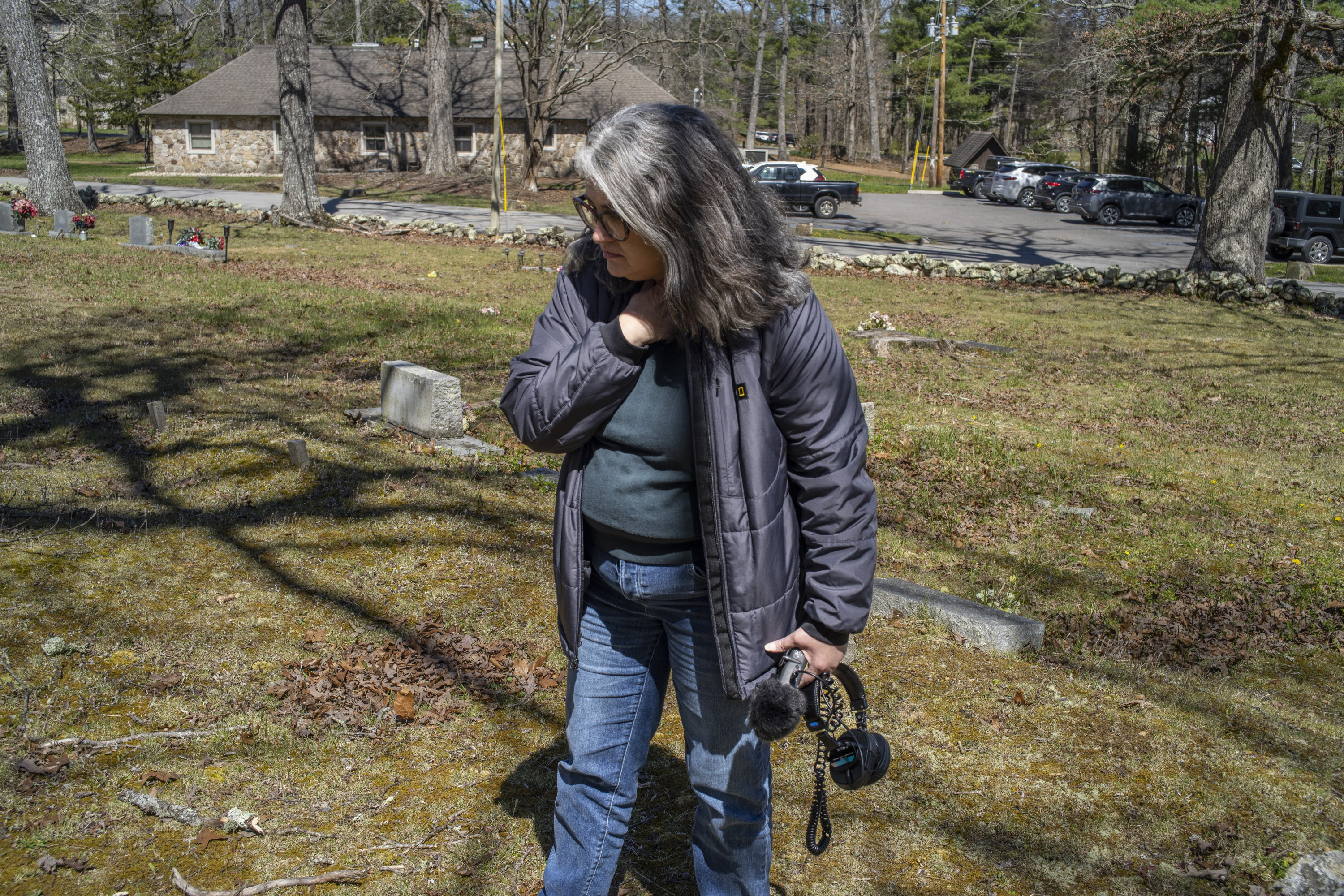
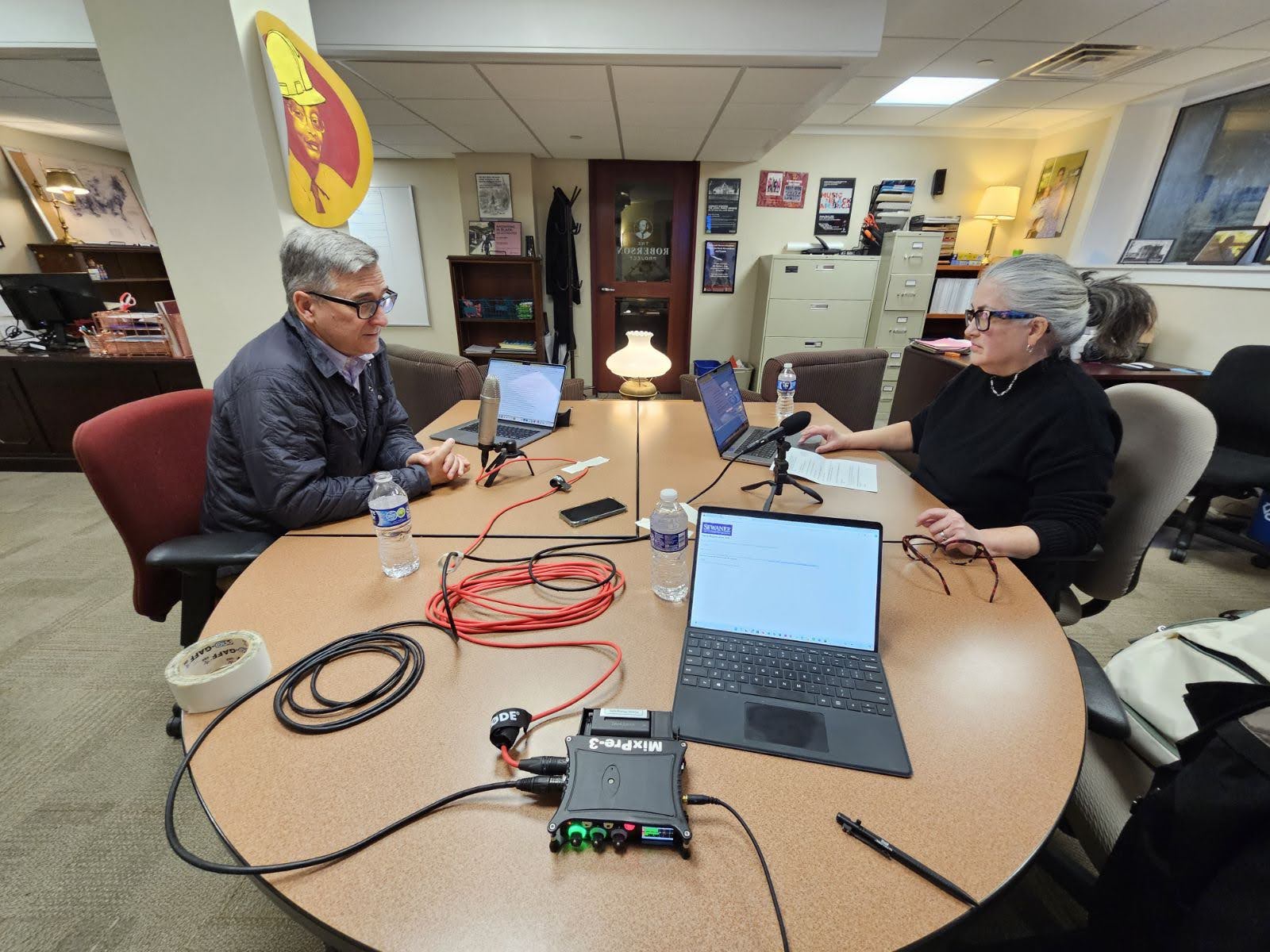
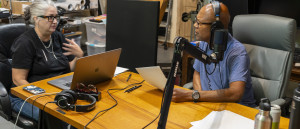
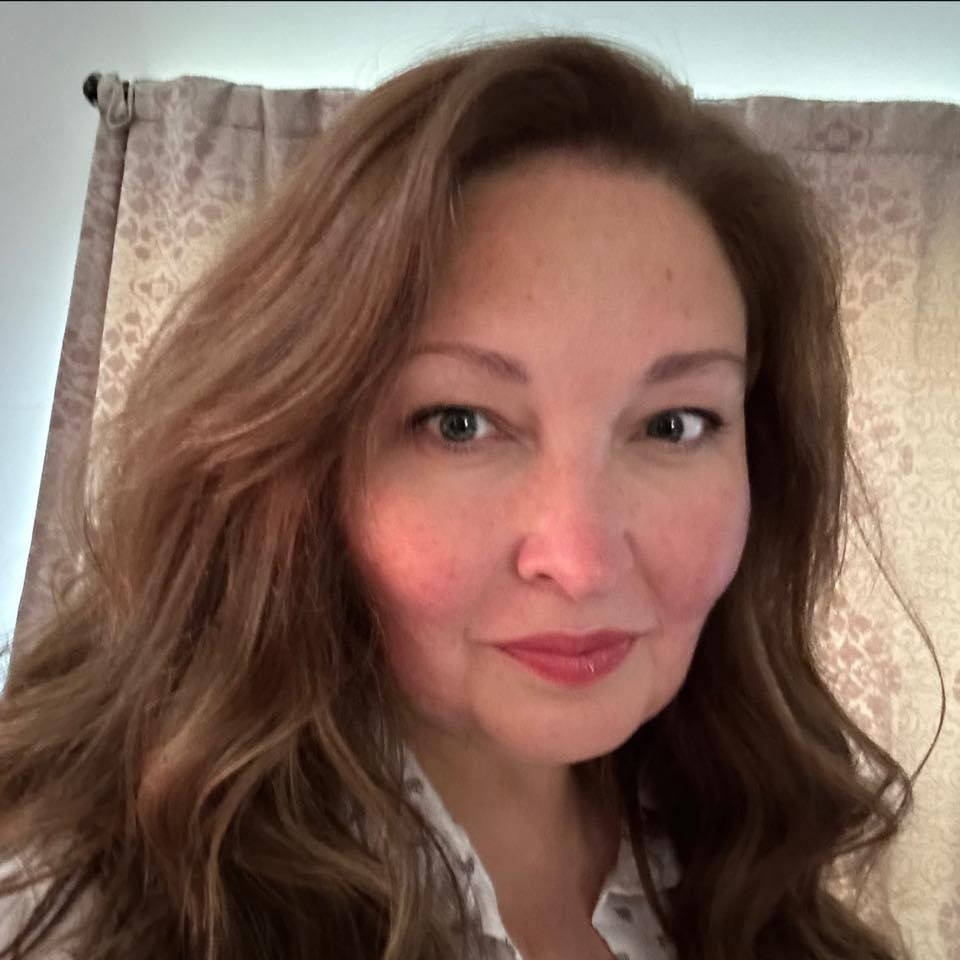
Olivia Young: Associate University Registrar
March 2024: "On Thursday, March 21, cohort 6 of the Leadership Lab met for their 13th session. This was a particularly impactful class meeting, because the group had previously prepared and sent various questions about leadership, institutional change, and the Sewanee culture to our new Vice Chancellor Rob Pearigen, and he visited class on this date to review his answers and share his leadership philosophy with the group.
Pearigen discussed his personal practices of exemplary leadership and elaborated on each one:
- Understand the mission and purpose of your organization- what does success look like for the organization/institution? How do you fit into that plan?
- Who are you, and how do your goals and values align with the organization’s mission/purpose?
- Encourage a shared vision among colleagues/employees, no matter their roles within the organization.
- Make decisions based on information, facts, and data. Ask questions!
- Principle and Progress: What are the principles of the organization? Push against the status quo, and always focus on making progress and moving forward.
- Faith and Hope: Have hope and faith in what you are doing. Be an articulator of reality, but a purveyor of hope.
I am personally so inspired by this last quote of his about reality and hope. I believe a good leader has a solid grip on reality, while also maintaining a hopeful optimism about the direction of the organization. A leader’s strong awareness of reality is crucial to future progress – realism helps a leader more easily locate an organization’s greatest needs and deficits. Pearigen was installed as VC in July of 2023, and one of his first action items was to solicit questions from every employee at the University – hard questions about dissatisfaction and necessary change. I believe this was his way of learning the reality of our institution, so that he could then move forward with hopeful plans.
After our discussion with the VC, we talked about our upcoming Leadership Journey presentations, and ways that we can make them unique to our personalities. This class meeting was our final class before the presentations begin on April 4. I am feeling a mix of emotions about my presentation – I look forward to personalizing it, but I also want to be sure that I fully explore each aspect of the project, to reap the greatest benefit from this course. We all discussed how we feel a bit of trepidation, but we look forward to seeing each other’s work."
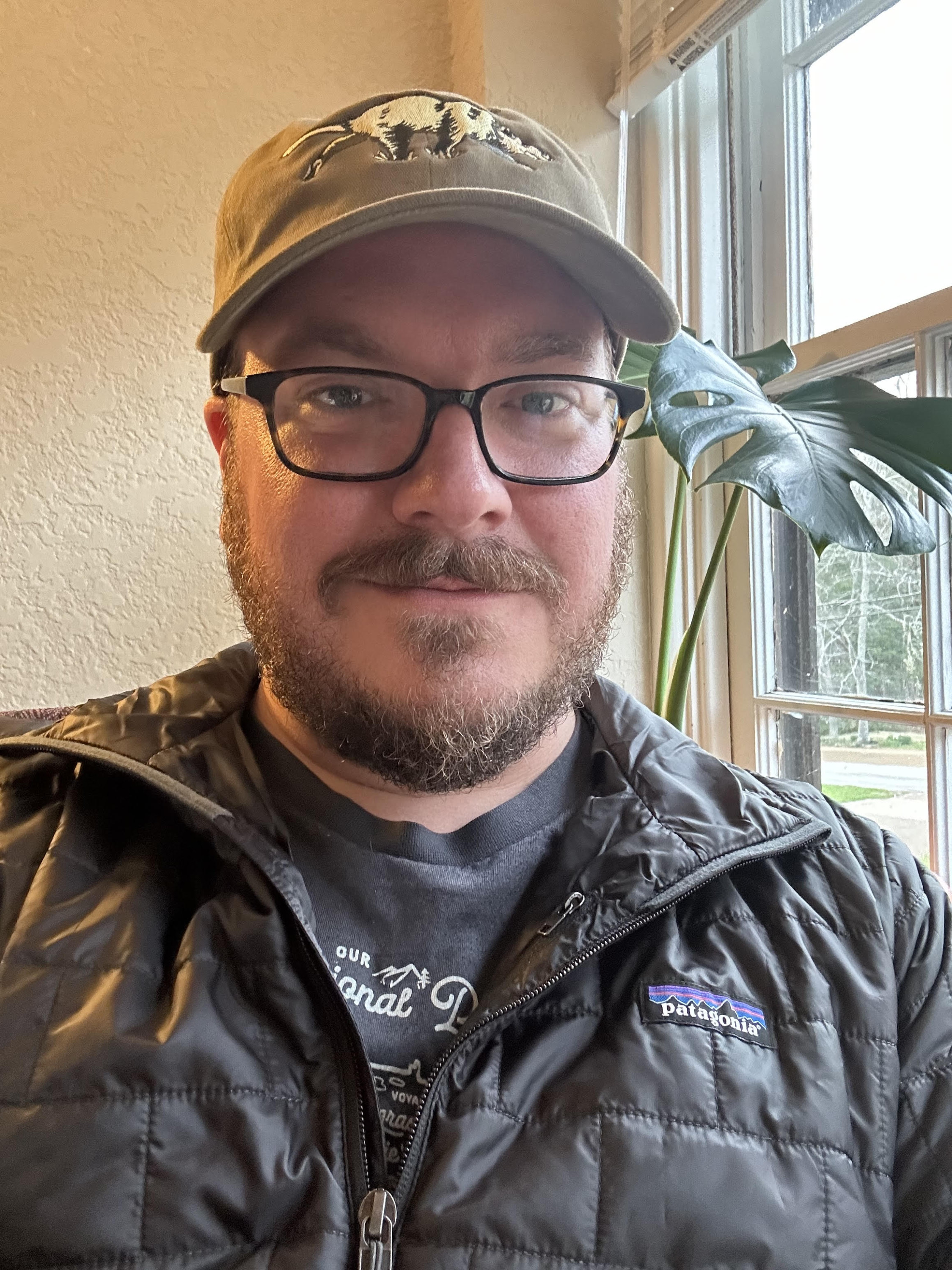
Travis Parker, International Student &Scholar Advisor: Office of Global Citizenship
March 2024: "Recently in the Leadership Lab, our group examined the place of Diversity, Equity and Inclusion in leadership spaces. In preparation for the class, we watched the film Hidden Figures (directed by Theodore Melfi, 2016) and read “How to Be an Inclusive Leader: Your Role in Creating Cultures of Belonging Where Everyone Can Thrive” by Jennifer Brown. In class, we were joined by Vice Provost for Diversity, Equity and Inclusion, Dr. Sibby Anderson-Thompkins.
We opened our meeting by reflecting upon the themes in Hidden Figures and dissecting questions that were related to the lessons we learned in class. As we discussed the movie and our reading, it became evident that there are a number of ways that our Sewanee community, workspace, and culture has undergone highs and lows as it relates to DEI.
From a very subjective stance, my individual mission is to help provide pathways of success for international students and faculty on our campus. Because of this, it can be easy for me to focus on those aforementioned lows. I acknowledge this as I move closer to this topic. The topic of DEI has been- and continues to be- a controversial topic in our nation. Controversial or not, these topics are embedded into the very fabric of this nation and especially into our geographic region, so we owe it to ourselves to be conscientious of DEI and how we relate to it as people occupying this time and space.
One of the core messages that arose during our dialogue with Dr. Anderson-Thompkins was this: “Inclusivity is not just about race and identity. It’s about fostering healthy ideas.” Which, to me, absolutely makes sense. Just as we are in the process of re-evaluating our own strategic plans as a university, so too should we be re-evaluating our own ideas, protocols, and procedures in our own spaces. If they are truly as good as they can be, we will seek far and wide for meaningful ideas and nurture inclusion and creativity. Certainly, we would strive to be good stewards of our responsibilities and well-intentioned in our vision as we make policies that impact those that come after us.
To bring it closer to home and to use a bit of my own provincial insight (and hopefully a bit of lighthearted humor), I see failures of inclusivity as a leader to be directly similar to a fear which keeps Southerners up at night: the thought of being an inconsiderate, bad host. Imagine (if your heart can bear it) that you have invited a new neighbor over for a social gathering and then expected not only for your new guests to prepare the entirety of the meal that you will all share, but to also have them only be able to select from the items in your own pantry. If you can pick yourself up from the floor after having even imagined such a horrific social faux-pas, take a moment to reflect on this scenario. How often do we expect others to thrive and flourish by our own standards of what that means? How often do we provide the tools and resources that may work for us, but may be confusing, difficult, or even inaccessible to others?
As I think of working towards being a more inclusive leader, I hope that I am able to provide pathways for success and collaboration which take multiple approaches into account."
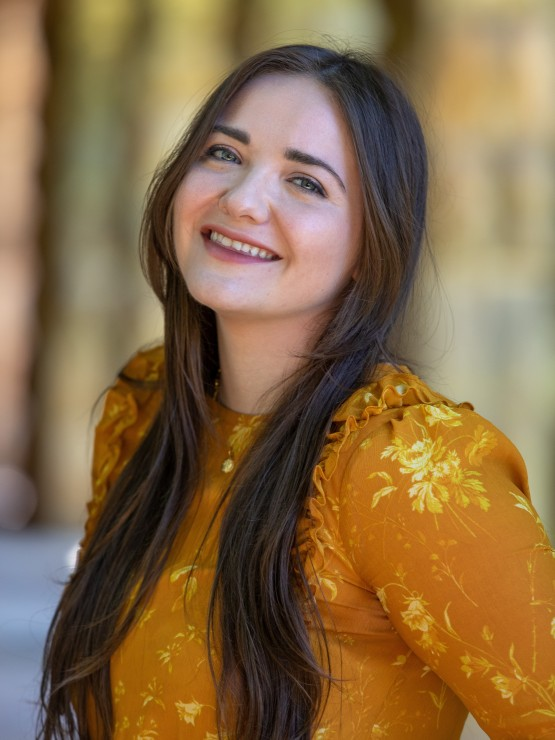
Kaylei Goodine, EEOT Deputy Coordinator / Student Investigator and Title IX Program Director
February 2024: "We are over halfway through the Leadership Lab! It is crazy to me how much this journey has flown by, while also allowing me to slow down and truly do some self-reflection on how I approach leadership. I truly wanted to join the Leadership Lab to reflect on my leadership philosophy, style, and what skills I need to work on. I have also appreciated the opportunity to reflect with colleagues across campus whom I may not have worked with if it was not for the Leadership Lab.
In our last class, we examined the six behaviors of the "Encourage the Heart" leadership practice. Some of these behaviors include praising others, celebrating accomplishments, and telling stories of encouragement about the good work of others. This blog post may have been a call-in by Elizabeth Wilson as "Encourage the Heart" was my lowest-practiced behavior witnessed on my Leadership Practices Inventory. All jokes aside, learning about the practices of encouraging the hearts of others has made me appreciate the simple act of showing up for others and our community.
We often get lost in what we have to do next, what needs to be fixed, or even our inboxes. However, we have to also take time to appreciate the work that has been done and celebrate the successes that impact our whole community for the better. We work with some incredible people who are doing extraordinary things at all levels. While I have always appreciated this, I seldom voice it. Leadership Lab has reminded me to show up, speak up, and praise up."
Deborah McGrath, Professor of Biology & Assistant Dean for Environment
February 2024: "It was probably 2010 when Elizabeth Wilson began sending me links to take the CliftonStrengths and Myers Briggs Type Indicator (MBTI) assessments. When I finally took both assessments with Elise Kikis and our Biology Senior Capstone class in 2021, I was pleasantly surprised by my results. However, I didn't much consider how these attributes shaped me as a team member or as a leader. There were things I knew about myself, such as the values that motivate my actions, but I lacked the framework to understand how my natural inclinations reflect both strengths and blindspots as a leader. My first Leadership Lab lesson was that, in addition to leading with my values, being aware of my strengths and those of others is key. For example, it was very helpful to see a grid summarizing our cohort's collective CliftonStrengths. Over the semester, as we have conversed and worked together in small groups, we've been able to observe how knowing and appreciating the strengths that each person brings to an effort allows us to work more collaboratively and strategically. Similarly, recognizing how MBTI types vary among individuals has helped me understand how and why others approach situations differently. Such an awareness is an invitation to develop more inclusive approaches that take into consideration how others might react or respond, instead of plowing ahead with blinders on! This was hilariously on display when two members of my cohort with MBTI type "T" (people who base decisions on logic) planned a brilliant, if not complicated, application to raise campus morale, but wisely concluded that they probably needed to consider the perspectives of type "F" individuals (who base decisions on personal and social values).
One of the most empowering lessons of Leadership Lab is the recognition that despite vastly differing arrays of talents and strengths, we all have the capacity to grow into effective, collaborative leaders. A particularly challenging activity was undertaking a "leadership practices inventory" to learn how others perceived how often we used five practices of exemplary leadership. On the one hand, I was gratified to learn that my observers frequently observed in me the ability to inspire a shared vision. On the flip side, there were other leadership behaviors that were not as frequently observed. But once again, awareness is key. As we read through the book Leadership in Higher Education by Kouzes and Posner (2019), it is abundantly clear that we can all develop and hone these exemplary leadership practices and the behaviors that underpin them. In this way, Leadership Lab challenges the assumption that effective leaders "rise to the top" or that natural leaders are "born". This is great news because many of the skills and practices that distinguish effective leaders also make one a better teacher, team member, and partner.
Finally, in addition to seeking an opportunity for professional development, I chose to participate in Leadership Lab to get to know other colleagues across campus. This aspect of Leadership Lab has been such a joy. I've made new friends, dreamed up new collaborations, and caught a glimpse of what others do to help make Sewanee function so well. Despite the homework and the commitment to biweekly meetings, it is always truly enjoyable to spend two hours every two weeks with the exceptional and often outrageously funny people in my cohort. I am thankful for their support and their ability to be open. I am also grateful for the kind and wise leadership of Elizabeth Wilson on this personally satisfying and professionally important journey."
Chrissy Gates, Systems Administrator- Technology Infrastructure, Strategic Digital Infrastructure
December 2023: "Ahead of our last class before the holidays, we each learned about our own conflict styles and how to navigate through different types in an assessment we took individually called the Conflict Dynamics Profile. Dr. Anke Arnaud visited our class to lead us through a presentation explaining the concepts. Afterward, we broke into groups of three to discuss our assessment results, for example, our top three responses to given conflicts, and one of our top destructive responses.
We also read about the six behaviors that inform the exemplary leadership practice, “Challenge the Process”, and how each one can be applied in our leadership. This correlates with the Leadership Practices Inventory (LPI) assessment we took in November. There was a line in the chapter from the book Leadership in Higher Education (James M. Kouzes and Barry Z. Posner) that impressed me deeply: “Leadership without change is entirely ceremonial.” I realized that I thrive with variety and I see change as its conjoined twin. Change is what creates movement in life (think river vs. bathtub). It’s learning, it’s growth, it breathes life. It sparks creativity and innovation, and it supports improvement and enhancement. Why is it so important to accept and encourage change? Because:
- Change is inevitable - it happens with or without you. You can either be the catalyst or go with the flow.
- Denying the changes around you - pretending that nothing is changing because you aren’t changing it - is not only fanciful but can also suffocate creativity.
In recent years, primarily since the pandemic closed our doors temporarily, we at Sewanee have seen so many rapid-fire changes that it often seems as if the world tipped on its axis. By adapting and pivoting quickly, we were able to re-think our procedures and continue at pace. In the aftermath, our little world here is still evolving and thriving. What we originally thought was to be survival has morphed into flourishing. This is a great example of challenging the process. Granted, it was out of necessity, but it presented such a unique opportunity to adopt some new customs and gently lay aside some old traditions that no longer served us, while still preserving Sewanee's culture.
Over the last few months in this course, I have felt a shift within myself. Not an “ah-ha” moment so much as a very gradual dawning. The shroud of imposter-hood is slowly fading, dissipating, replaced by a feeling of belonging, connection, acceptance in myself and others.
I have never seen myself as a leader. I was always told that the opposite of a leader is a follower and I didn’t think I was “leader material”. When I joined the cohort, I had hoped the Leadership Lab would teach me how to lead. What I am surprised to learn instead is that I have already faced many situations where I was called to lead and that I even have my own style of leadership. Maybe the opposite of a leader is a supporter. Or maybe there is no opposite. Maybe a supporter simply facilitates leadership in others, which is also a form of leadership."
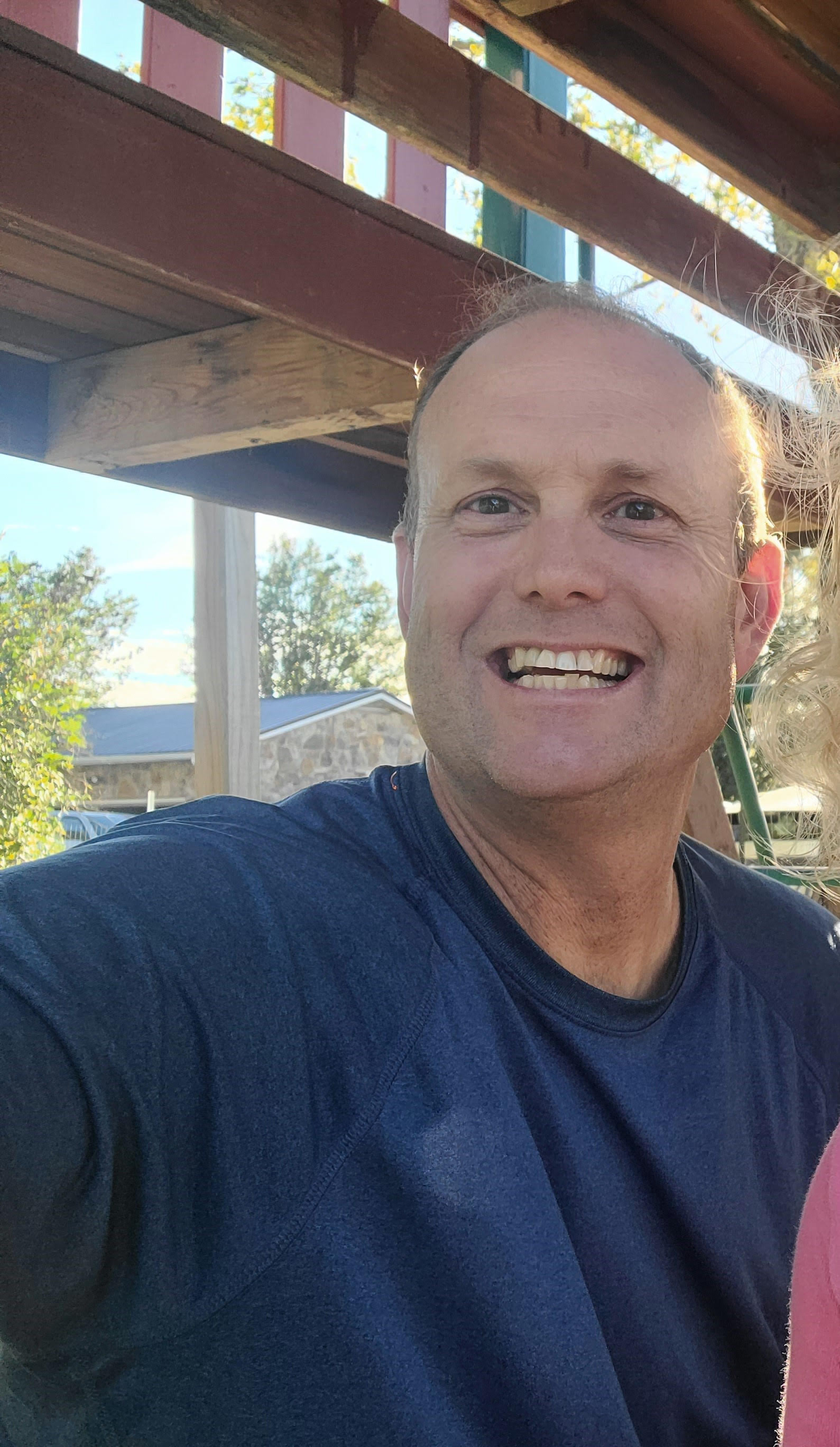
James Meert: Financial Analyst, Strategic Digital Infrastructure
December 2023: "I have participated in many events at the University that have helped me to develop as a person physically, mentally and spiritually. and I have learned many tools to use in my work and personal life. The most recent one was when alumnae Jamie Greenawalt visited, thanks to the Babson Center lunch lecture. She specifically issued this reminder to future Sewanee leaders: leaders know how to listen to their employees and ask for their help. Learning to be a stronger leader was one of the reasons why I wanted to participate in the Leadership Lab. After investigating this opportunity through conversations with graduates, current class members, and reading through the Leadership Learnings blog, it was not difficult to see its value.
In our last class, we talked as a group about the exemplary leadership practice of “Inspiring a shared vision” which brought out many important points like, “You don’t have to see the whole staircase to take the first step” (Martin Luther King, Jr.) Another point is basically that people want to know “that they’re doing something meaningful on this earth” and “when people feel rebuffed or left out, the brain activates a site registering pain.”
In smaller groups, we examined our LPI report (Leadership Practices Inventory 360), focusing on the first leadership practice of 'Model the Way” and discussing how we carried it out and elevated our chosen behavior. This exercise was both humbling for those who did not achieve their improvement goals and inspiring to hear from others who successfully implemented their plans, making necessary corrections along the way.
Our homework assignment that day was to create a vision. This task took much more time and was more difficult than it sounded like, but we followed a game-like process of threes where the first gave their vision, followed by two others asking clarifying questions of the one with the vision, then the two trying to expand the original vision to larger heights and greater depths.
I have learned many lessons since my first Leadership Lab class, from discovering 'what is Woo?' to the most recent assignment on how to build a vision. It has been both challenging and enjoyable. It has been challenging because the entire process starts with individual reflection, then moves into a collaborative perspective for developing, honing, and gathering a plan. This collective approach aims to create a vision that is both grand and achievable, involving everyone in the process. Enjoyable because each class feels more like a game with friends than a competition. The concept of collaboration has been the greatest lesson, a kind of motto in all things collaborative. Brené Brown uses the heart as the metaphor and says, “Yes, we can sever the heart, cut everyone off, and make quick, direct, controlling, efficient decisions, but when we do that, we imprison the heart and kill courage, we kill the future.” (Brené Brown on Armored versus Daring Leadership ) When we collaborate, we move toward positivity and creating a group “better able to cope with adversities and are more resilient during times of high stress” ( Leadership in Higher Education )."
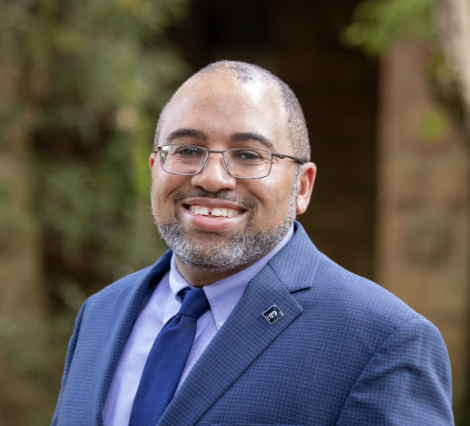
Deon Miles: Professor of Chemistry and Interim Associate Dean for Inclusion and Faculty Development
November 2023: "We are (cohort) SIX! I wanted to participate in the Leadership Lab because I desired to learn more about my leadership style. I initially thought that I only had one leadership style, but I’m quickly learning that I can present multiple leadership styles, and still be effective as a leader. I also want to improve as a leader, and I believe that going through this experience will help me towards that goal.
Prior to our November 16th class, we each took the Leadership Practices Inventory (LPI) developed by James M. Kouzes and Barry Z. Posner. According to Kouzes and Posner, there are five practices that are associated with exemplary leadership (Model the Way, Inspire a Shared Vision, Challenge the Process, Enable Others to Act, and Encourage the Heart). Our LPI profile provides a snapshot of what our managers, co-workers, and other observers see with respect to our leadership practices. Elizabeth Wilson had one-on-one meetings with each of us to go through our LPI profile to decipher the results and to start thinking about ways to enhance our leadership.
Also, before class (we had a lot of homework!), we determined our personal values. We were limited to selecting 2-5 personal values, which was difficult for many of us to do. Personally, I didn't know where to start. Thankfully, we had access to an online tool to help us with this task, called the Personal Values Assessment. Using this tool helped me to narrow down my list of personal values to five. With our personal values established, we shared stories (in pairs) from our lives that illustrated each of our personal values. In these stories, we asked ourselves how we learned these values or who we learned these values from. We also asked ourselves how we would continue to live out our personal values, and what costs or risks we have to take to uphold them.
In our class, we took a closer look at the first leadership practice (Model the Way). From our LPI profile, there are six behaviors associated with the “Model the Way” practice. Our challenge was to determine which one of these behaviors we want to elevate. We then came up with at least three concrete ways that we can do to make this behavior more visible and felt by others. As a measure of accountability, we plan to come to our next class with a concrete, measurable action that we are willing to carry out related to the elevation of our chosen “Model the Way” behavior."
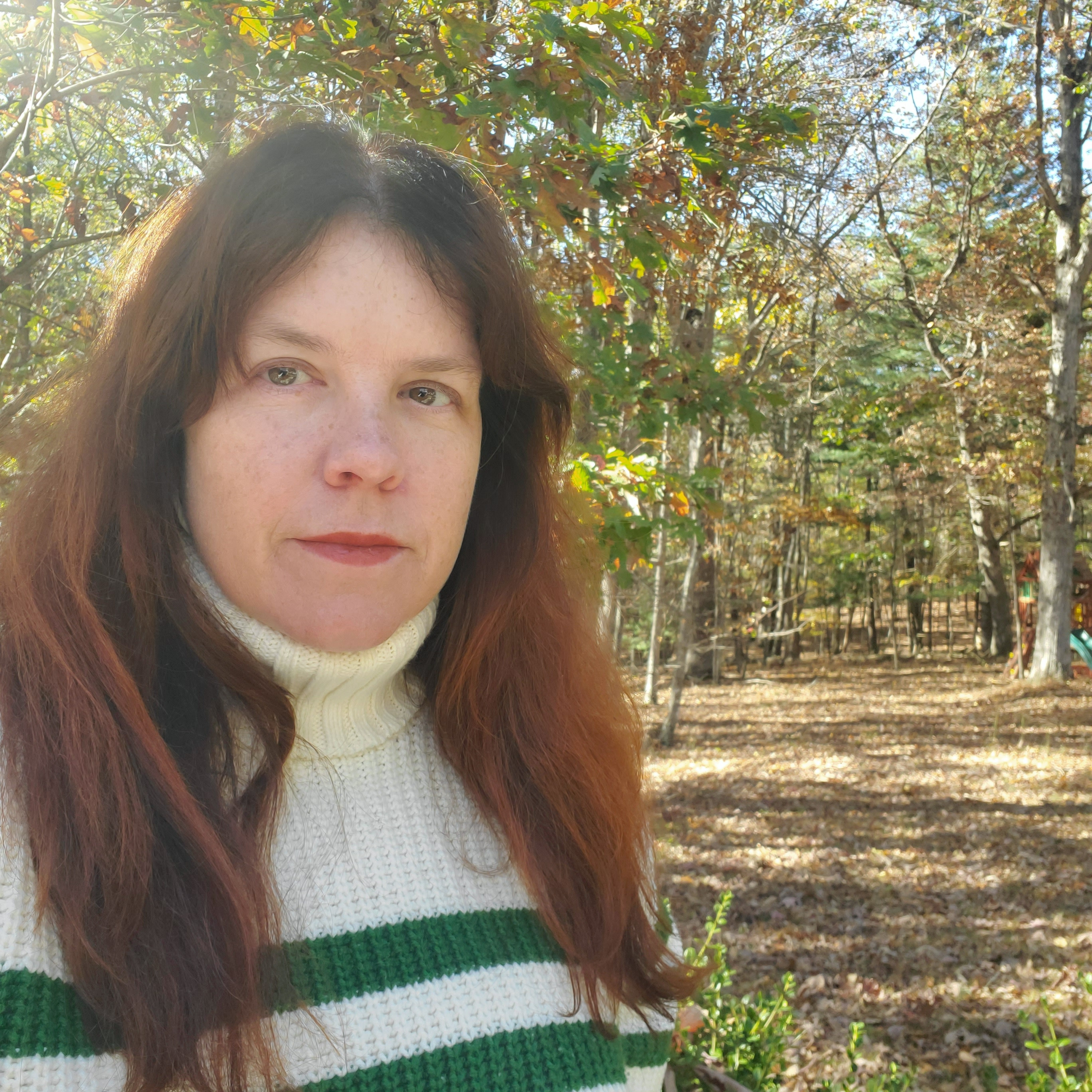
Alison J. Miller: Associate Professor of Art History
November 2023: "The topic of this week’s Leadership Lab was “leadership is a relationship,” which was quite fitting as our group enters our second month together and as we continue to get to know each other better. To prepare for our conversation we read the first chapter from the book Leadership in Higher Education (James M. Kouzes and Barry Z. Posner), and watched a series of short videos titled "Community: The Structure of Belonging" (Peter Block). Both were engaging, but I’ll focus on Peter Block in this blog post.
One reason I joined the Leadership Lab was to meet people from across campus, specifically those outside of the faculty realm. It’s common on many campuses for faculty to be siloed, not just from each other in our different disciplinary realms, but also from the staff on campus that are so critical to supporting our students inside and outside of the classroom. It’s been a positive experience to learn about Sewanee from another perspective, and to think about the many staff contributions that make this institution run. I’ve also enjoyed hearing about institutional history from a variety of viewpoints; many policies, traditions, and previously unexplained quirks of our campus make more sense to me after just a few weeks of shared conversations with those in different divisions of the university, or those with long experiences here on the mountain. Our bi-weekly meetings are a gift in that they help me to further appreciate the generosity and leadership practices that happen at all levels of our university.
I also joined the Lab to learn about myself, and to consider how I can grow as I enter new positions of responsibility on campus. Today’s topic dovetailed nicely with both of my intentions for the Lab, as our group found a shared connection over the topic of leadership behaviors such as shared vision, narrative, and ownership vs. blame. These ideas, sprouting from the preparatory work and in tandem with Elizabeth Wilson’s expert guidance, took us through two hours of productive conversations. Specifically, though, I want to focus on Peter Block’s concepts of change as a narrative and framing thinking around gifts vs. deficiencies.
As an art historian, I found myself nodding in agreement with Peter Block’s point that the events of the past are unchangeable, but the stories we tell about these events can shift with time. Those of us who write about the past understand this well, but I was struck by thinking about narrative as a means of managing or initiating change. Anyone who has spent time in Sewanee knows about the heightened sense of nostalgia and tradition that permeates our campus, something that is both a strength, or a gift, and a weakness, or a deficiency. Block states that focusing on deficiencies, which is a common way of being, shuts us down, but acknowledging our gifts can lead us to be accountable.
As I consider how to apply these lessons on our campus, I’m left wondering how to change the narrative in Sewanee to move beyond the sense of nostalgia that sometimes leaves us feeling as if our present is deficient, and to instead focus our narrative on the current state of our gifts. For example, instead of discussing community in terms of the narrative of the long-gone “porchlight” (when professors would leave their porch light on as an invitation for students to visit their homes), can we focus on the gift of increased diversity and inclusivity on campus? While not wanting to change the generally positive narrative around the historic practice of porchlight, can we focus our present narrative on the gift that today’s professors and students are more diverse, and live in a world where connection and learning happens in new and different ways and locations, such as forestry labs in the far corners of the Domain, community engagement activities across the Cumberland Plateau, museum field trips to Nashville, or even study abroad programs as far afield as Africa and Asia? Or perhaps we can celebrate that students often find connections beyond the faculty, such as meaningful relationships with staff members or those in the surrounding community.
Being a member of the Leadership Lab has been a gift as I’ve felt a deeper sense of connection to my workplace and have learned a great deal about myself and the university. I look forward to further connections and thoughtful conversations in the coming months."
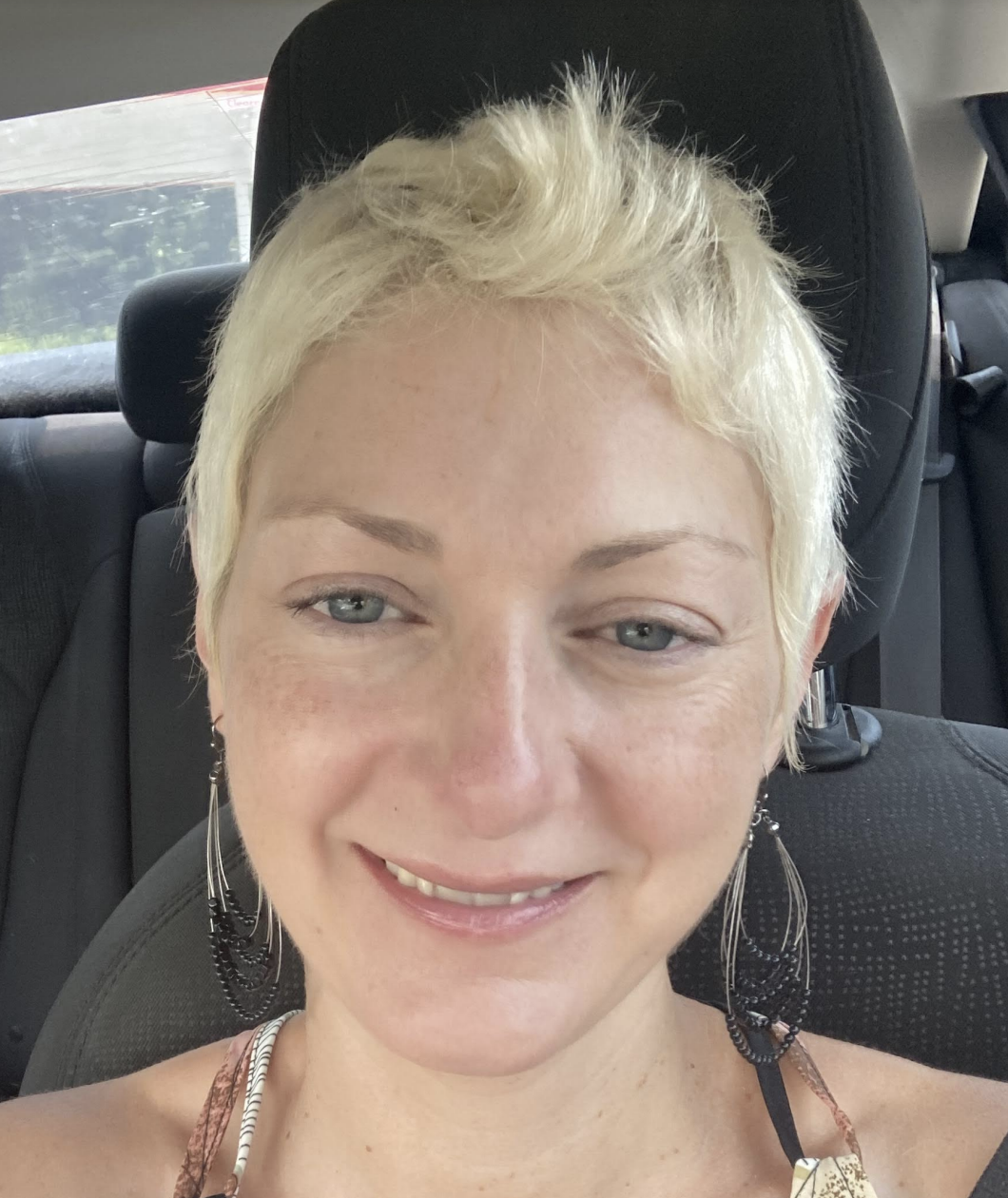
MARIS OWENS: SENIOR HR GENERALIST, HUMAN RESOURCES
October 2023: "I have heard about the Leadership Lab since its inception. My supervisor, Jessica Welch, was in the second cohort and another HR colleague, Chris Champion, was in the third cohort. Their experience was very positive. However, I never thought the Leadership Lab applied to me: I didn’t feel like a leader nor did I really want to be a leader. The idea of leadership felt very intimidating to me, or at least my understanding of what it meant to be a leader. Why? Because I am quiet. I am an introvert. I do not like conflict. I thought I did not have the right attributes to be a leader. But I decided to jump into the Leadership Lab experience and here I am in the sixth cohort and learning that I am a leader in my own unique way.
I think one of the things I like best about the Leadership Lab is that it is open to all employees. It doesn’t matter what your background is or what department you work in or your title. The cohorts include faculty and staff from all different backgrounds.
Dr. Jerry Smith, professor emeritus, spoke to our class recently about his arrival in Sewanee over 50 years ago. He spoke about his role as a professor of religion, but just as important was his role in the community. As part of our homework, we read an essay by Dr. Smith, “The Never-failed Succession of Benefactors”. The benefactors he speaks of are not those who have given money but have given their time, their energy, and their lives to make Sewanee the place it is. It made me think of a time when I was a Sewanee student and I was walking to class in the rain. A custodian was driving by and stopped to ask if I would like a ride. He did not know me from any other student but that did not cause him pause. He did not look at me as being different but a person who needed his help. He was one of those benefactors that Dr. Smith refers to in his essay. And in his own way, a leader. What I am starting to learn is that leaders come in all shapes and sizes. We all have individual qualities and strengths that can lead us to becoming great leaders.
If you are considering the Leadership Lab but don’t feel you fit the mold, please know there is no mold. It does not matter what your education is or what position you hold: you will be welcomed as an equal."
Travis Parker: International Student & Scholar Advisor, Office of Global Citizenship
October 2023: "Recently in the Leadership Lab, our group examined destructive and toxic leadership: how it happens, how it can appear and what, if anything, can be done about it. It has been an insightful delve into how toxicity in the workplace comes to be and that it is not some shadowy scheme plotted by a villain twirling their mustache in secret corridors. These toxic and destructive spaces are usually allowed to come into being, whether intentionally or unintentionally. It’s typically not one individual who steers the ship of toxicity, but it is rather a combination of what is allowed to happen from within the leadership, the standard personnel and the environment. We grappled with scenarios which asked us to set out to uncover things which would need to occur within an organization to make it a toxic one. As we played around in this space to let our curiosity free to roam these situations, I couldn’t help but wonder to myself, “In my life, have I been a contributor to solutions or have I been a cynic?”
Which is ultimately what I believe this particular week of our lab was focused on bringing to light. We need to take the time to do a bit of self-assessment and ask if we are contributing to toxicity in our environments or are we seeking solutions. Certainly, it would be arrogant to assume that mistakes are never made or that people cannot learn from their mistakes. However, are we, in our respective spaces, creating opportunities for people to learn from those mistakes? Are we encouraging innovation or are we stymieing potential by being hung up on things like “What will people think?” or being fearful of failure? And honestly, I grapple with those very same questions in my own life. So again, have I been a contributor to solutions or have I been a cynic?
As an assignment for the week, we listened to Dr. Brené Brown’s two-part podcast on “Armored versus Daring Leadership”. Through the information discussed by Dr. Brown, we heard about leadership styles that approached two fundamental philosophies: being a knower and being right, versus being a learner and getting it right. Which is ultimately an exercise in approaching leadership from a place where “perfection” requires shame and blame tactics as opposed to approaching leadership from a place of empathy and self-compassion. Oftentimes (self) compassion and kindness involve sharing difficult information with ourselves or with others. It would be, in actuality, unkind to withhold information from our peers that deserve the truth, even if it’s difficult. This is especially true as we interact with our own selves. I believe therapists around the nation stay in business largely in part due to people grappling with that lesson… So once again, have I been a contributor to solutions or have I been a cynic? The answer is “yes” to both. However, I am still learning and endeavoring to get better each day."

Olivia Young: Associate University Registrar
September 2023: "I am so excited to be a part of the Leadership Lab's sixth cohort since its inception at Sewanee. We met for the first time on September 7th, and this was an opening session where we introduced ourselves and shared a bit about our roles on campus and how long we have been here. It is encouraging to be part of such a diverse group, from all areas of employment on campus. We also were assigned seats with tent cards displaying our five primary CliftonStrengths, an assessment we each completed prior to the first meeting. Right away, I could see that this is a group filled with highly unique individuals, with an array of useful skills to bring to the table. We spent a short time sharing with a partner about our proudest leadership moment, and we adjourned with our first assignment - watching the movie Invictus and finding examples of three different types of leadership in it - laissez-faire, autocratic, and democratic.
Between the first meeting and the next, our facilitator Elizabeth Wilson met with us individually to review our Clifton Strengths in depth, and what a revelation that was! I joined the Leadership Lab to both develop and hone my leadership skills in my current position, and also to work on a few areas of personal struggle. Discussing my CliftonStrengths with Elizabeth helped me realize that some things I consider weaknesses in myself, such as the constant battle between my deep feelings and deep thoughts, are actually strengths and can be used in many ways as a leader.
We reconvened on September 21, and we began this session by going around the room and briefly addressing our top 5 CliftonStrengths, and what we learned in our meetings with Elizabeth. It was so revealing, interesting, and exciting to hear so much about each wonderful individual in our group. It is fascinating to see just how unique every human is, due to their personalities and natural inclinations. After this, we broke into groups of three and discussed our findings from the "Invictus" movie. We all saw examples of every type of leadership in this film, and surprisingly, Nelson Mandela employed each type when he saw fit, which was a very effective practice. We discussed how some of us went into this exercise believing that one type of leadership was better than the others, but we emerged with the realization that all three types, and several others, are needed based on the situation a leader faces, and the individuals involved. My greatest takeaway from this is that a great leader has good instincts and knows which type of leadership to employ at the right time. I also believe that Mandela's strong vision of a unified nation guided the type of decisions he made as a leader. He let that mission guide every decision he made, and this meant he had to use a variety of approaches to achieve it.
So far, I feel greatly enriched by meeting with this group and I am so very thankful to have the chance to know each member on a deeper level (there's my Intellection strength showing). I am encouraged by this venture, and I so look forward to the growth and discovery it will bring."
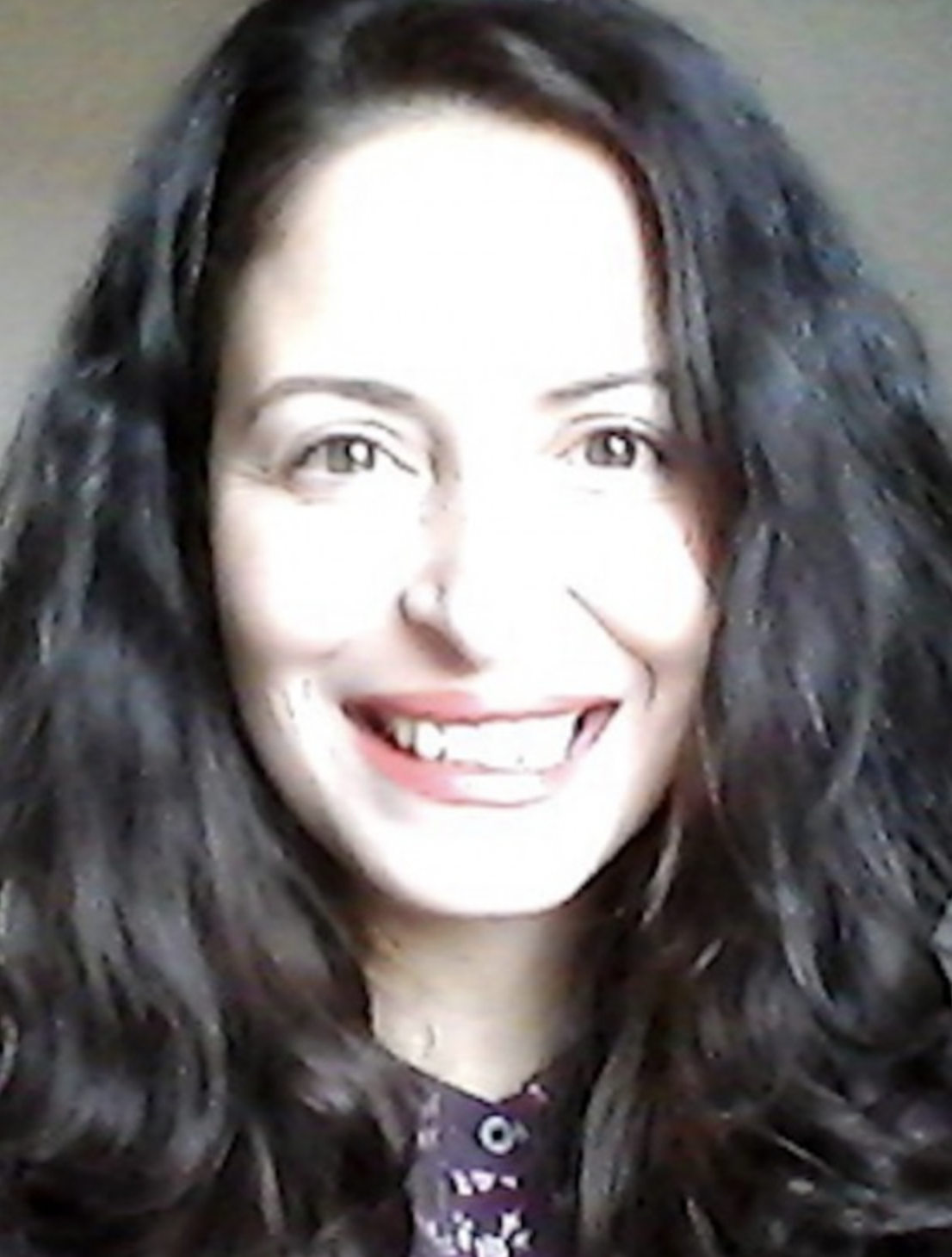
LUCIA GARCIA-SANTANA: PROFESSOR OF SPANISH
March 2023: "This week was the last of our collaborative work before our presentations on our leadership journey, the last step of the training process. Months of listening, learning, and sharing beyond the conventional level dictated by our professional environments, enjoying the opportunity to work with colleagues across campus that I most certainly would not have the chance to get to know so genuinely otherwise. These months, I’ve come to wonder how much we know about one another, and if we are comfortable in our quotidian work exchanges pushing the parachute of roles and titles aside. It can be an effort to find space and silence to listen attentively to others’ experiences, with our busy schedules and responsibilities, and oftentimes the threat of that effort might be stealing the promise of the reward.
The last topic we explored was ethical and non-ethical/destructive leadership. The task was not pointing at ills such as mismanagement or lack of training or awareness. We discussed true harmful practices rooted in narcissism and unethical motives, and how these practices lie not solely in the leader’s actions but in the necessary collaborations that naturalize and justify them. Some questions sprang related to the type of culture that is fostered; how fear of change, of trying new routes, or of identity definition make for more tolerance of destructive leadership; and if lack of self-awareness and courage support these practices to the extent of pushing moral standards to the extreme. There are many instances in which the community stands up against injustice and opposes anything that challenges its moral compass, but, is it acting or reacting? Ultimately, if destructive practices are put up with for fear of losing something –traditional ways, security, sense of belonging, well-being- what would strengthen courage, and push eagerly to create something new and healthy built on true solidarity look like? In this regard, is it possible to stand up with courage without the necessary warranties and trust?
The Social Change Model, which Lauren Goodpaster so graciously expanded for our understanding, is an avenue that offers tools to create new possibilities, a work-in-progress that goes beyond wishful thinking. It starts with our individual awareness and sense of self –really building on our strengths and facing our weaknesses- to exchange with the group to reach the common good, and ultimately, but not unidirectionally –for all realms intersect— to arrive at our citizenship, understood as our engagement and participation in the community in creating change. This model, and its proven success across generations and in different scenarios, shows that there may be ways to build a healthy collaborative environment that would reject in accordance with its natural functioning any form of unethical behavior. This tool, and others that we have garnered along our journey, are not ingenious little gadgets to just keep the lights on. They can guide the intentional individual and group commitment and offer alternatives to make what is just aspirational the dignified reality in which each and every constituent can have a safe space to offer their unique contribution.
I´ll miss these conversations, but I hope many more will come and new spaces will be created with the wonderful colleagues I´ve had the privilege to meet. Thanks, y´all. "
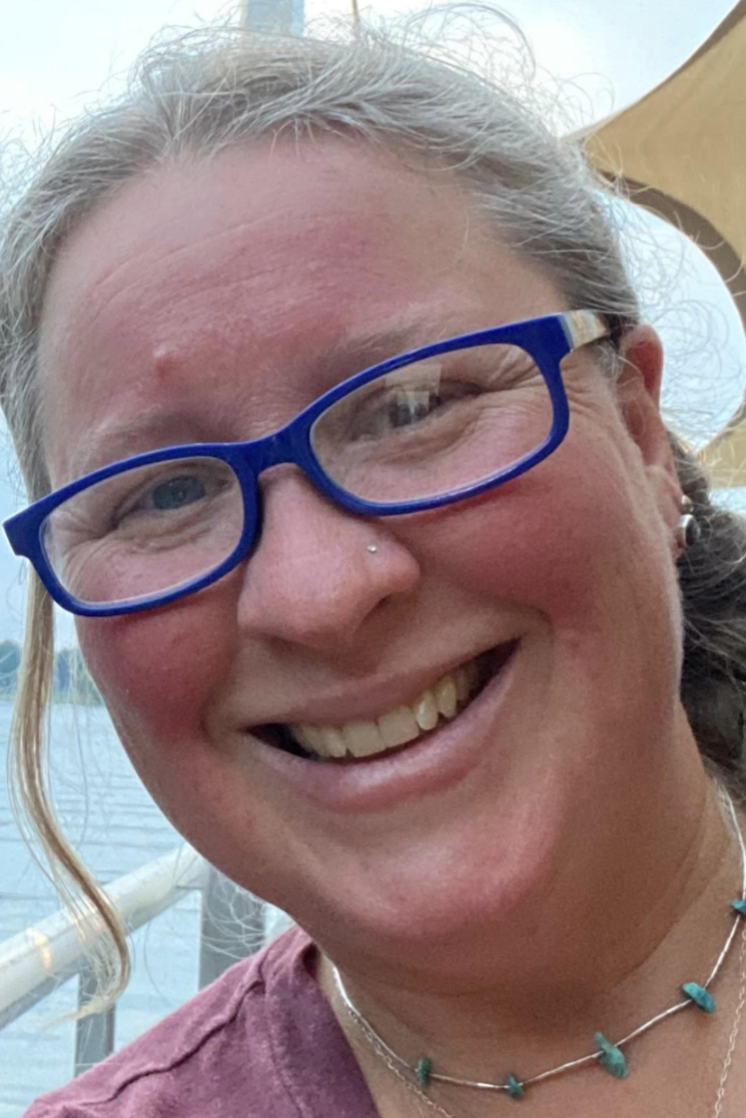
tanya ingvoldstad otero: assistant manager at Stirling's coffee house
January 2023: "Take a moment to center yourself, focusing on your inhalation. Count to four as you breathe in deeply, hold your breath for a brief moment before you exhale slowly to a count of six. Feel yourself in your body. Simply notice your thoughts and how you feel, without judgment, checking in on yourself from your head to your toes. Return to your breath."
This is how we started our Leadership Lab class today. This mindfulness practice has been a helpful tool allowing us to be fully present in class ready to participate and learn.
Our conversation today focused on "out-groups." Peter Northouse, author of Introduction to Leadership, describes out-groups as "individuals in a group or in an organization who do not identify with the larger group." There can be many reasons why an out-group may form. We spent some time considering who may identify as out-groups in Sewanee. What we found is that all people have probably at one time felt themselves to be part of an out-group, and that there are members of our community who quite likely always feel like part of an out-group.
Our awareness of out-groups as leaders is important. In order for us to lead effectively we must listen to all members. There is value in hearing the voices of those who bring differing perspectives and experiences. As leaders there are strategies we can use to respond to those who don't identify with the larger group: 1-Listen, 2-Show empathy, 3- Recognize unique contributions, 4-Help to include, 5- Create special relationships, and 6- Give voice and empower to act.
These strategies do more than assuage potential tensions and conflict. They allow for inclusion, a sense of belonging and feeling valued. I imagine we could meet challenges and collaborate to create positive change in Sewanee if as leaders we continually use these strategies and seek out the input and participation of those who bring diverse perspectives.
In order to be mindful and recognize any people who make an "out-group" and connect with them using the above strategies, it may help to feel centered in our own selves. So, in closing, bring your awareness to yourself and the people around you; let's return to our bodies and our breath.
Note: The Leadership Lab 5 experience has become an important part of my participation in the Sewanee community. I have learned from others in my cohort that whether we are staff or faculty, we have very similar concerns and issues we contend with in our respective departments and in general at the University of the South. We have met with administration colleagues as part of our learning process and have been encouraged- even given the agency- to work to solve the problems that we encounter. As someone who often identifies as an "out-grouper," I have found that with the support of others, my voice is stronger and I feel empowered to collaborate and work collectively for positive change in Sewanee."

Katie goforth: Community development director with the office of civic engagement and South Cumberland Community Fund
January 2023: "With MLK Day on the horizon, this week's Leadership Lab topic was especially timely and relevant. We delved into the concepts of diversity, equity and inclusion (DEI), ways that we can embrace and practice DEI in the workplace, and ways that we can help others tap into their own unique strengths to grow their leadership abilities.
Viewing the film, Hidden Figures, was an emotional experience for us all. The film was inspired by historic events and achievements of several black female mathematicians who worked at NASA in the early sixties. Despite facing work-place discrimination, the women stayed focused on their roles for the mission, worked as a team, advocated for themselves and one another, and used their incredible mathematical talent to make the launch of the first U.S. human space flights possible. The portrayals of the challenges these black women faced in the early days of the civil rights movement and of their personal leadership qualities set the stage for our further exploration of DEI.
Our reading introduced DEI terms and defined each. Diversity was defined as the amount of difference among members of a group or an organization across a broad spectrum of dimensions. Equity is the recognition that some groups, particularly racial minorities, have had no access to resources, perhaps for generations, and thus have a different entry point than others. Inclusion is the process of incorporating differing individuals into a group or organization, with the ultimate goal being that all people from diverse backgrounds feel valued, respected and recognized. True inclusivity is only realized when the individual is able to maintain their unique identity, be able to express themselves freely, and still fully belong to a group. The reading also discussed challenges and barriers to inclusion such as prejudice, unconscious bias, ethnocentrism, and stereotypes.
While the reading was helpful in defining terminology and describing models of inclusivity, most valuable was our discussion with Dr. Sibby Anderson-Thompkins, Chief Diversity Officer and Vice-Provost of Diversity, Equity and Inclusion. The Division of Diversity, Equity and Inclusion (DEI) is comprised of the Office of Inclusive Excellence and the Office of Equity and Equal Opportunity. Dr. Anderson-Thompkins talked with us about the prioritization of DEI practices at the University and the opening of the Truth, Racial Healing and Transformation (THRT) Campus Center. She stressed the importance of moving from awareness (understanding DEI concepts, complexities and challenges) to action and organizational practice. DEI practice facilitates belonging, engages community, recognizes humanity, and develops leadership skills of others. Dr. Anderson-Thompkins described the ways in which she "grows" leaders. Early on, she recognized the importance of looking past titles, degrees and positions when forming teams to effect change. Instead, she considers the kinds of different perspectives that she needs on the team, and brings diverse stakeholders to the table. She considers the perspectives, strengths and passion of each individual. Her question for the individual is not, "What are your degrees and qualifications?" It is, instead, "Why do you want to do this?" She is committed to helping people find ways to tap into their strengths in new ways, and in this way, "grows" leaders. Dr. Anderson-Thompkins invited us to think about the obstacles to inclusion and belonging that are present at Sewanee. Then, consider the ways we might partner with the Division of DEI, and bring DEI into our own practice, in order to address these obstacles. She also challenged us to be reflective leaders- to continually think about what it is that we need to improve and grow, and then go out and get it!
This type of reflection is exactly what led me to apply for the Leadership Lab. My role as community development director demands different leadership- and relationship-building skills than those I had used in my previous professional experience. Through participation in the Leadership Lab, I am not only learning new leadership skills, but I'm also making deeper connections with others in our campus community. As one who is a lifelong learner, it is an incredible gift to be continually encouraged to seek out opportunities to explore, grow, and lean into the university values of inquiry, community, courage and flourishing."
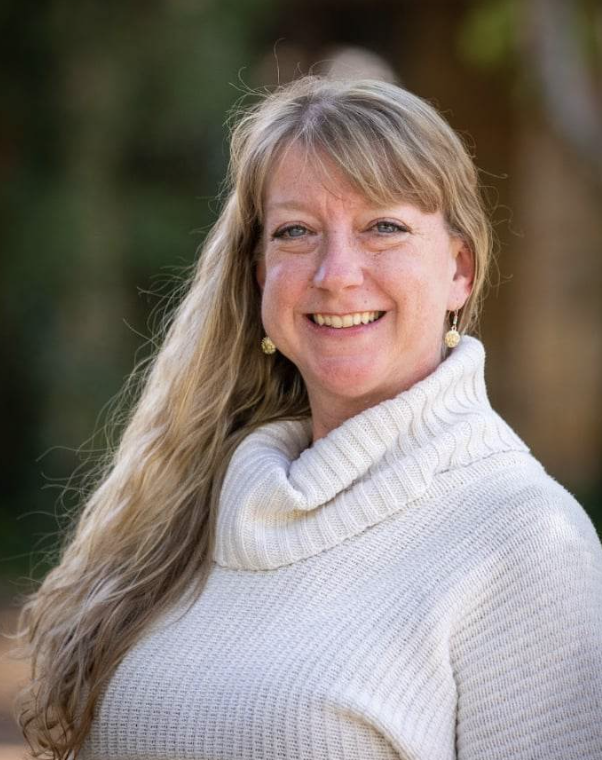
Kristy Turner: Custodian, Facilities Management
December 2022: “I was intrigued when I initially read about the Leadership Lab on the Sewanee Colleagues Facebook page. I decided to do a little digging and see what others had to share about their experience.When I spoke to a friend who was in the Leadership Lab’s second cohort in 2019, he told me that he really learned a lot about himself and that you will “get out of it as much as you put in.” I was a little bemused. After all, I feel as though I know myself very well…better than anyone else for that matter! With my curiosity piqued, I decided to take the plunge, putting my qualms aside and saying, “I can do this!!” Since I was previously a cashier at McClurg and interacted with colleagues on the daily, then transferred to a custodial position and worked alone for eight hours a day, my mind was desperately craving social and intellectual interaction. This program has certainly remedied that.
Something I soon realized after classes began was that leadership is a multi-faceted thing without a cut-and-dry definition. Whether you were a born leader with innate skills or you acquire them over time, you must do a lot of self-exploration and analysis of your own tendencies to learn what type of a leader YOU are. The CliftonStrengths assessment is a tool we used to do just that. It was very interesting to see the results of my assessment and how they aligned with who I am.
Thus far, my favorite assignments involved a video by Brene Brown, Anatomy of Trust, and a book, “Community: The Structure of Belonging”, by Peter Block. Brene Brown created the “BRAVING” inventory. It is an acronym that I truly believe if people tried to follow, it would change the world! However, we have to start somewhere, and we are in the perfect place. Peter Block’s book focuses on bringing people together for the greater good. He makes the point that meetings and seminars are becoming less and less productive and has found gathering in small groups with diverse members generates much more interaction leading to results.
With the Christmas season upon us, I suppose it is time for a little rest, reflection, and gratitude. I am thankful to be a part of such a caring and pleasant group of folks and would encourage anyone who wants to learn how you can make a difference to apply. Happy Holidays!”
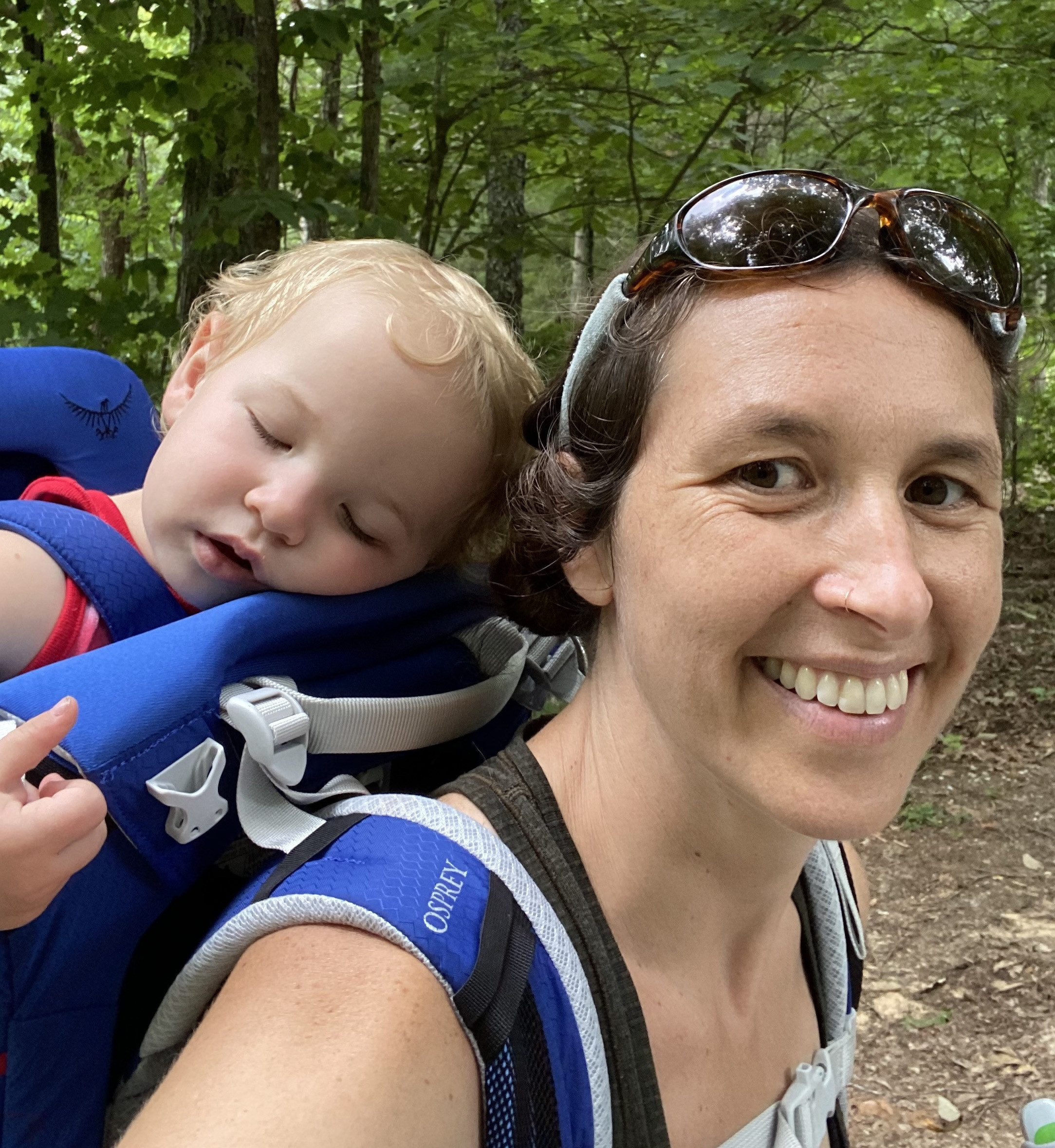
SARA MCINTYRE: SUSTAINABILITY COORDINATOR, OFFICE OF ENVIRONMENTAL STEWARDSHIP & SUSTAINABILITY
December 2022: “Work in the Leadership Lab is as much about analyzing types of leadership and understanding best practices as it is about understanding ourselves. What are our strengths? What are our values? What do we shy away from and what do we think is the essential nature of humans?
This week we focused on conflict and prepared for the exploration by completing the Conflict Dynamics Profile. It’s a fascinating tool that attempts to measure and categorize the behaviors you engage in (and the relative frequency you exhibit them) that are constructive during conflict versus those that are destructive.
It is interesting to see the results and begin to understand those areas you are weakest. For example, of all my constructive responses, delayed responding is my weakest and I’m terrific at self-criticism (in the destructive behaviors category). However, as always with the Leadership Lab, we are just as interested, if not more so, in our strengths. I’m out of this world at creating solutions to conflict and don’t give two pennies about “winning”. This perspective is perhaps more stimulating because it shifts us out of focusing on what we’re not great at and allows us to imagine and brainstorm how we can use those responses/behaviors we are “good” at and engage in most frequently to the best advantage.
Where things got really sparky was in applying this new knowledge to the final piece of the report wherein we discover our sensitivity to “hot button” behaviors. I handle unreliable behavior well but am super triggered by hostile behavior. Blend the results of the Conflict Dynamics Profile up with what we know of our values, upbringing, CliftonStrengths, and personality tendencies, then pour the personhood stew into work and personal relationship situations and we begin to understand not only how we respond in different contexts, but why, and the tools we can lean on to help us to navigate them differently in the future.
Guiding us through these reflections and providing additional tips and resources was our special guest of the day, Jessica Welch, director of human resources development. Jessica has been part of a team providing training and holding conflict management practice sessions - open to all colleagues - on campus this year. Because I’m a wee bit nerdy and like to feel sweaty, I’ve attended one of these practice sessions. It was terribly uncomfortable and fabulously helpful. We paired up and struggled through role-playing different scenarios. The scenarios are extra sweaty because they have been submitted anonymously by colleagues and compiled by the HR team as those we at Sewanee encounter most frequently - so we are actually pretty likely to encounter them during our time working here.
All this reflective practice applied begins to reveal each of us as the leader we are and can be. We not only begin to understand ourselves better and more accurately, but we also begin to understand and have greater compassion for the people we do life with, personally and professionally.
Beware the ripple effects of this work - they are not to be underestimated.”
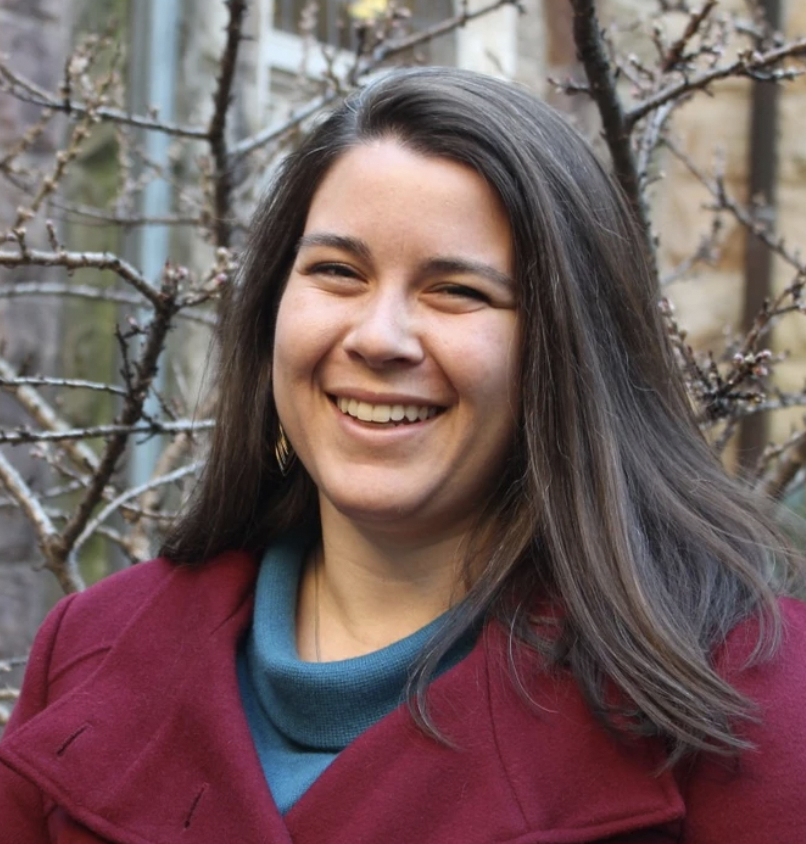
KRISTEN K. CECALA: ASSOCIATE PROFESSOR, DEPARTMENT OF BIOLOGY
November 2022: "I joined the Leadership Lab post-covid, struggling with burnout and needing time post-tenure to identify where my skills could be most beneficial to this place and our students. The assignment for this week to define a vision for our lives terrified me at the beginning of our experience. To my great relief, we had a long and fruitful conversation with Acting Provost Scott Wilson that guided the rest of our conversation for the day, though I suspect we will get back to the visioning process soon.
We had an opportunity to ask Provost Wilson to describe his approach to leadership and to share some of his successes and struggles. He described his feelings that leading from the middle and management of small teams and offices on campus were in some ways the most rewarding work for him because of the direct connection between action and impact. In many ways this echoed Vice Chancellor Berner's call to work for improvement in the areas we can.
In preparation for this week, we reviewed Brene Brown's video, "Anatomy of Trust," which led to questions about trust in the process of leadership. In response, Provost Wilson discussed relational components of leadership, which underscored for me how the responses of those not in leadership roles play an integral part in the success of an organization. In "The Anatomy of Peace," they illustrate how easy it is to find allies for particular perspectives and how entrenchment of those ideas could contribute to an erosion of trust. A leader is only one person at an institution, and our behaviors play an enormous role in organizational success and are within our control.
So Sewanee community, how can we best contribute to trust, organizational growth, and a healthy community? I look forward to exploring these ideas further with the LL5 group."

ELISE ANDERSON: associate director of CAPS (COUNSELING AND PSYCHOLOGICAL SERVICES)
November 2022: "Participating in Leadership Lab invites me to regularly consider how I can be a better leader, colleague, and overall person. I especially appreciate the way in which I am able to connect in deep and meaningful ways with colleagues from all over campus who I might not otherwise encounter very regularly.
Last week's class was all about strengths. During the first hour, Vice-Chancellor Berner joined us to share about her leadership philosophy. We engaged in broad philosophical discussions about what it means to be a leader, and we also explored how Vice-Chancellor Berner views leadership and what that looks like for her. I learned that she is a collaborative leader, and that empowerment and trust-building are crucial aspects of her leadership style. Finally, Vice-Chancellor Berner invited us to explore how we can be a better, stronger community in Sewanee. It was a wonderful discussion!
The second hour of class allowed us to get into the nitty-grittiness of our strengths. We all took the CliftonStrengths assessment, and were able to explore with one another how our strengths informed our personal leadership styles. We also delved into more personal topics relating to our strengths. For example, my top strength is "Activator" - which basically means I like to put thoughts into action. If I have an idea, I'm going to take immediate steps to make it happen. While I do recognize this as a strength of mine, I can also acknowledge the dark side of this: haste without intention. Being able to explore both sides of my Activator-ness within the safety of the Leadership Lab cohort was both enlightening and comforting.
Each class, I learn something new about myself and someone in the cohort. I always leave class feeling more connected, hopeful, and empowered."
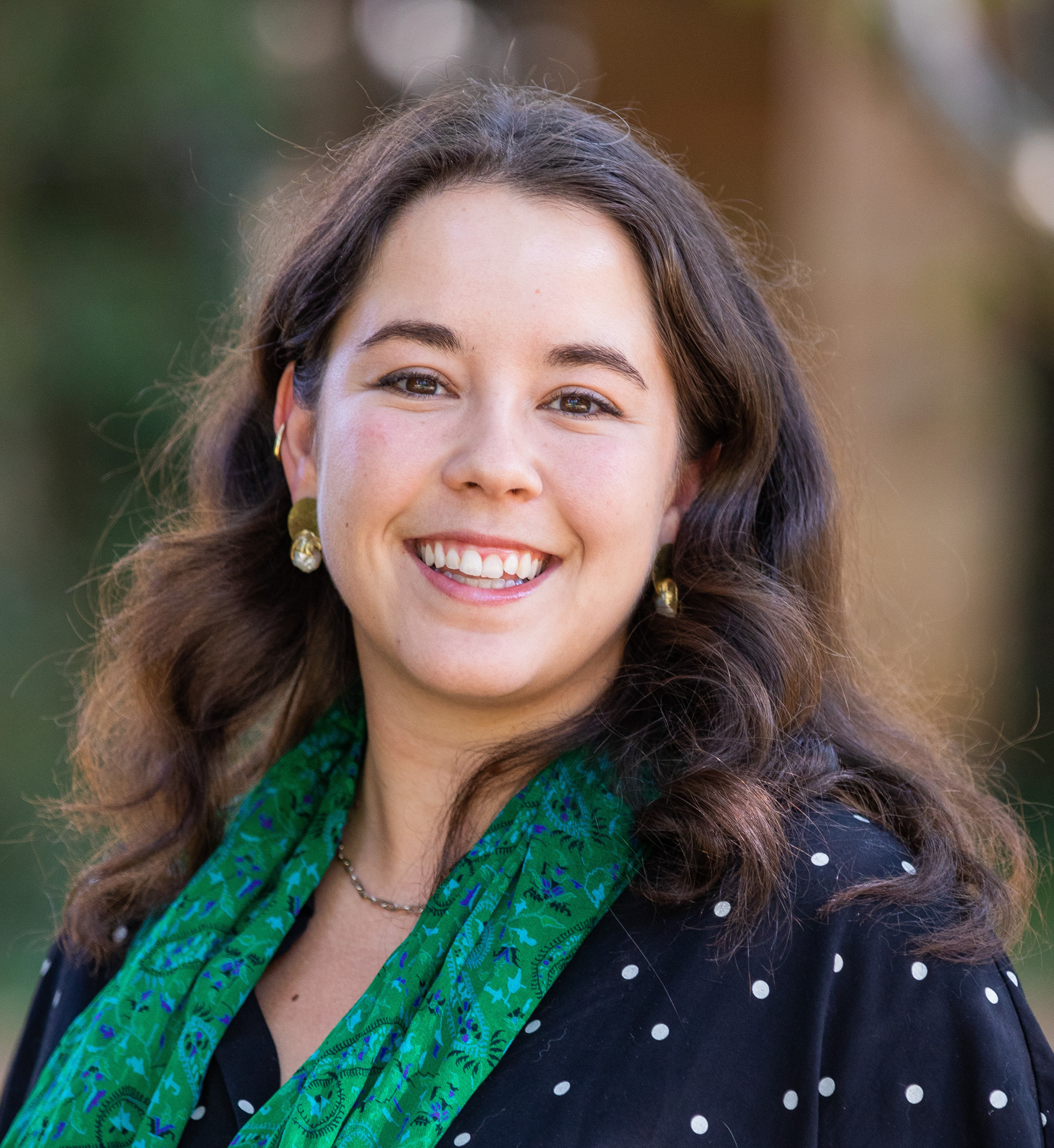
Amber smith: executive administrative specialist, executive offices
October 2022: "Hello all! I'm Amber Smith and I work as an Executive Administrative Specialist in the Executive Office. A deeper dive to discover my sense of purpose has been long overdue, and I am thrilled to be a part of LL5. Sewanee is a community I've spent my entire life in, growing up as a faculty and staff kid, as an undergraduate, as a grad figuring out life, and more recently as a colleague to all working to support this institution. I've come to know this place, its seasons, faces, and spirit so well. My decision to pursue a place in this cohort was guided by my desire to find how I fit into a growing and ever-evolving Sewanee. The three primary objectives of greater self-knowledge, leadership competence, and facilitation of positive social change pulled at my heartstrings as things I want for myself and the place I've spent so long loving. In the last few weeks, we've begun the journey into discovering our own people-view, life-view, and work-view, and have had the chance to workshop our personal philosophies with the cohort.
The overarching questions for Lab 4's class were: "How as a leader am I balancing tasks and people? What skills do I need to increase my capacity to influence others toward positive change?" Our reading related to understanding different orientations and skills that make up a person's leadership style. The orientation styles focused on being relationship-oriented or task-oriented. Task-oriented folks focus on the mechanics while relationship-oriented folks focus on the feelings. An important realization I've had from our readings on leadership traits, styles, and skills is that while there are definitions of dichotomies to help understand philosophies and explain behaviors, these definitions exist to help build a framework of leadership. They are not end-all labels. I find comfort in knowing that these definitions act as ven diagrams with the self as the overlapping center.

LUCIA GARCIA-SANTANA: Professor of Spanish
Class #3 (Oct. 2022): " Greetings! I'm Lucía García-Santana, an associate professor in the Spanish department. A couple of years ago, I applied to join the Leadership lab. I wanted to learn strategies that could inform my participation in different groups and initiatives on campus, both on and beyond academics. I also wished to increase self-awareness and find points of connectedness to Sewanee. I couldn’t participate in the lab then, and when the opportunity came this year, I pondered on passing, not sure about putting time and effort into a mysterious venture. And yet, our very first session already proved an engaging and invigorating experience. We have been discussing leadership traits and styles, taxonomies that might have felt business- oriented, goal-justified, artificial, and uninspiring to my pre-lab self. However, a process by which the learner becomes the object of study presents meaningfully the frameworks underlying how we relate to our work environment. Fruitful conversations and dissensions shake assumed and somehow univocal understandings of leadership. Listening and seeing one another, and reinterpreting the very concepts that facilitate analysis, create the path while we explore it, bringing a renewed sense of purpose. There is no preconceived destination or one size fits all. We are working together on digging deep and expanding the tools that we already possess. This week, we focused on leadership styles (democratic, authoritarian, and laissez-faire, quite self-explanatory, or so I believed), using individual assessment to identify predominant aspects of ourselves in the spectrum of thinking-feeling, or sensing-intuition, to name a few. This awareness helps us decide which preference to apply depending on our leadership style and specific situation. Incorporating Nelson Mandela’s experience was an inspiring example of the efficiency of blending elements of all the styles, as was discussing how those leadership styles play out in our immediate environment. One of the reasons for my interest in the lab was to find ways to defeat the self-limitations linked to the culturally-ingrained imposition that leadership belongs in the territory of gender and privilege. Moreover, the false promise of the need of disguising one’s voice to lead effectively. The lab’s takeaways are plentiful, and my pre-lab self is reassured by her decision. "
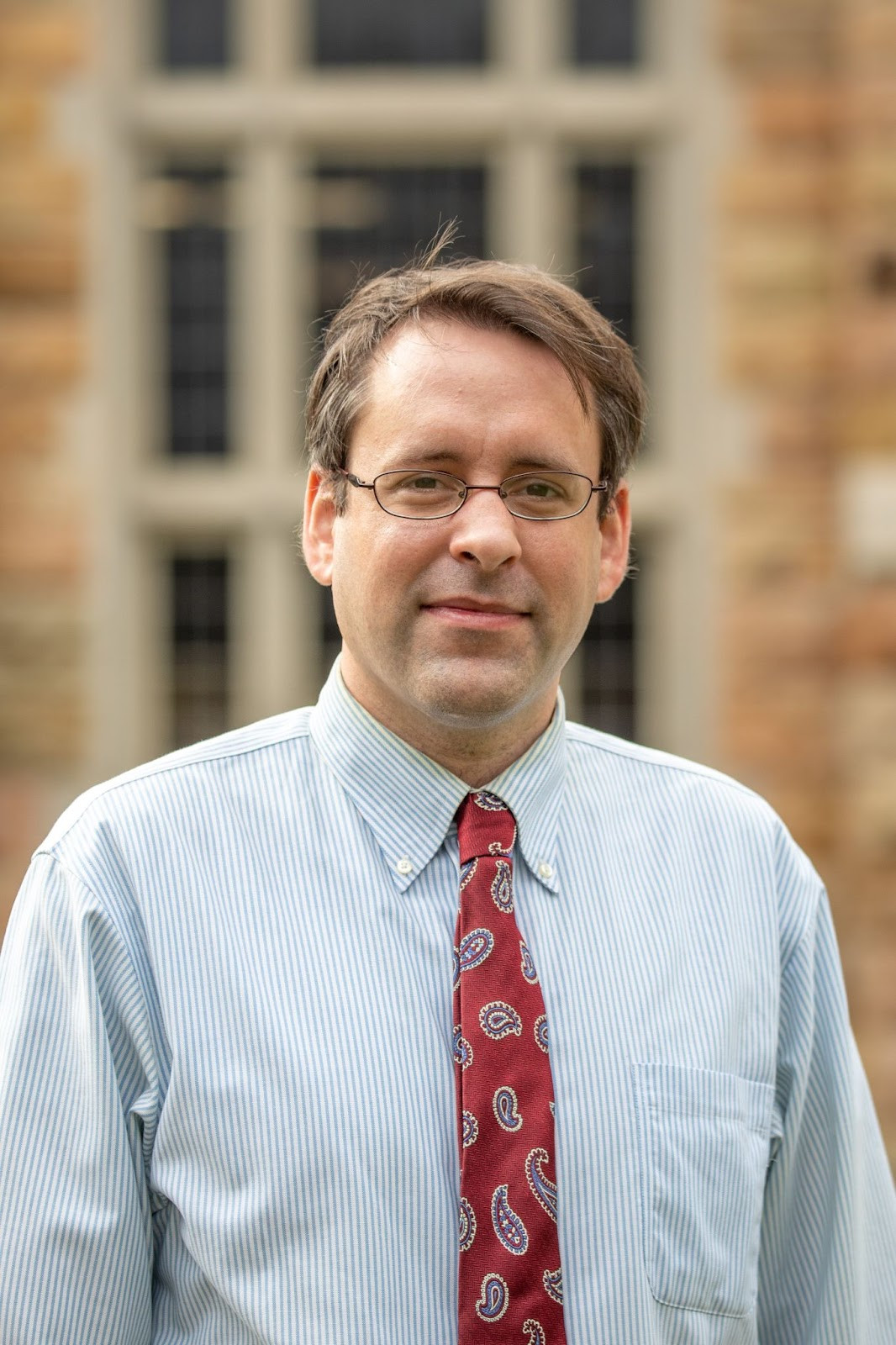
Adam Hawkins: Associate director, ilit- library and technology services
Class #2 (Sept. 2022): "In the leadership lab this week we entertained an identity crisis. Of course, I don't mean crisis in the sense of imminent danger, or even trouble necessarily, but more so in the context of decisions (a second meaning listed on Google). Adam Hawkins here, proud member of the fifth cohort of Sewanee's leadership lab, and in my IT job here at Sewanee we are vehemently surrounded by crises of all sorts. I joined the leadership lab this year because I've found myself unwittingly making decisions in these moments that I always question (and even occasionally learn from) after the dust settles.
This week in the lab we focused on identity as both defining and guiding leaders . Our pre-class textbook reading introduced us to six identity traits that personify strong leadership. We also watched the 1957 classic 12 Angry Men and discussed how, and in what way, the jurors in that film emerged as leaders. Finally, we were graced by the presence of Sewanee's unofficial (but maybe not) historiographer, Professor Jerry Smith (emeritus), who regaled us through not-so-rose colored glasses on the Sewanee of the past. As we learned, that institution had a distinctly different identity, and radically different characteristics, than the Sewanee of today. In those days of yore tenure was both requested and granted verbally, calling cards were pervasive under household doorways as a means of introduction to the neighborhood, and while egalitarianism may have been preached in the classroom and from the pulpit, it certainly wasn't practiced for those wandering the hallways with a mop and bucket, nor for those feverishly preparing and serving guests at nightly 'porch light' gatherings.
Reflecting amidst this context (our textbook reading, the film, and stories from Sewanee's past), I found it difficult to form a holistic or conclusive picture about leadership in these vastly different situations. Whereas charisma and confidence unmistakably cemented Churchill's famous proclamation to fight on the beaches (our textbook), certainly determination and integrity are the hallmarks of Henry Fonda's character in the jury room, rationally pleading for time to consider all the facts before condemning a man to death (12 Angry Men). In class we were energized by discussing how and why these six different traits applied to different situations, ones often fueled by imminent crises, where important decisions had to be argued for and carried out. While we didn't ultimately arrive at any definitive 'good' or 'bad' leadership traits, we did come away from class recognizing the importance of understanding and defining our identity, both as individuals and especially as our University institution (given Professor Smith's historical introduction). I found myself agreeing with one of my classmates that our institution is once again in that 'wobbly' position to firmly grasp a new identity, one that is clear, inclusive, and effective for our community. I just hope we remember this time to check under the door for those calling cards guiding us in that right direction. For me personally, gathering together with a diverse group of inquisitive colleagues in this lab has undoubtedly been a rewarding step along this path."

Sara McIntyre: sustainability coordinator, office of environmental stewardship & sustainability
Class #1 (Sept. 2022): "Hi y'all, I'm Sara McIntyre. To which a surprising majority of the Sewanee people I've met face-to-face in the last year or so have replied, "Oh! I get your emails!" [I really didn't think I sent that much email.] I'm writing today to discuss the Leadership Lab experience. An incredible opportunity available to colleagues through the University's Center for Leadership. That said, I've experienced exactly 3 hours of official Leadership Lab training and am thus still woefully ignorant of the true depth and impact of the experience. And so, I'm going to share with you some impressions. I wanted to be part of a Leadership Lab (LL) cohort almost upon my arrival at Sewanee [in March of 2020], and that desire has only grown over time. In all honesty, when I look around or have meetings or interactions with colleagues, the folks who inspire me to say to myself, "Wow, I want to work with or be in relationship with that person more," have often turned out to be LL graduates. There is a quality to the interaction, paired with a sincerity and passion, that leaves me feeling seen, supported, inspired and energized. And I want more of that, to be closer to it, and to spread those experiences to others. Also, 'Learner' is my top CliftonStrength and 'Growth' is a core value; therefore, like a fly to honey, I am drawn to these types of opportunities. So I've joined the motley crew of colleagues that comprise the 5th LL cohort. And though I don't know most of the folks in the room, after just one meeting, I can already sense the depth of care, the energy, and the brave, if sometimes quiet, willingness to commit to the process and to dig deep into ourselves and our experiences in order to find the gems we all contain. Years ago a dear friend gifted me a framed saying that hangs in my home, "She believed she could, so she did." I believe in you. I believe in us. Let's do this."
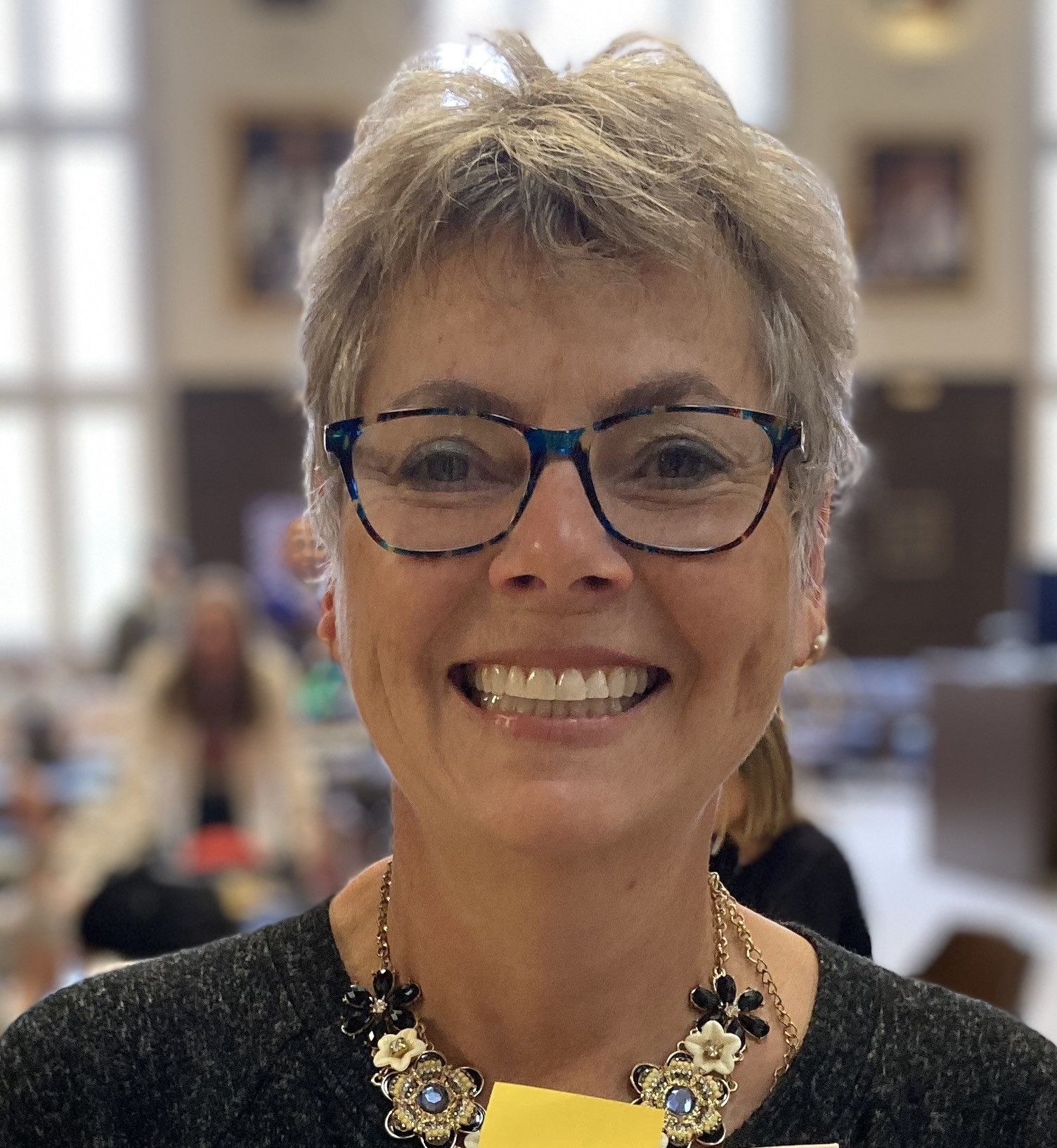
STACEY O'SULLIVAN: ASSISTANT OPERATIONS MANAGER, THE BABSON CENTER FOR GLOBAL COMMERCE
April 7, 2022: "Managing the COVID test site opened my Sewanee world. I had SO much exposure (literally and figuratively) to students, faculty, and staff. Developing testing systems, problem-solving, and serving the community was exhausting yet fulfilling. As CRAZY as it sounds, during COVID I enjoyed collaborating and bonding with many people that I would not have met under normal conditions. Wanting to continue to forge campus-wide relationships, I jumped at the chance to join the Leadership Lab Cohort #4 (LL4). More importantly, I needed to do a deep dive into the development of my leadership skills and recognize what I do well and what I might want to enhance or change. My participation in LL4 is helping me to recognize who I am and honor my contributions to my communities.
I have observed that people in administrative positions struggle with defining "if and how" we are leaders. Coaches and faculty find it easier to articulate their life purpose and their leadership philosophy. My journey has revealed that leaders come in many forms and are found at different levels, regardless of how many people they supervise or influence. In my day-to-day activities, my goal is to accomplish small and big tasks with excellence and kindness. Good leadership requires daily practice and knowing when to pivot or seek input and help when challenges arise or things are not going according to plan.
In yesterday's class we were asked:
- Now that we have all these tools, what do we do with what we know?
- How will we advance change?
- What seeds of change/knowledge are worth nurturing?
There were many excellent answers but some that resonated with me were:
- Consider delegating departmental work according to strengths, not job title
- Ask your teammates how they would like to receive feedback
- Know your team members and how they prefer to learn and receive information
For the last one, I realized that people often are either primarily auditory or visual learners. I am a visual learner and listener. If you give me a lengthy set of instructions verbally, I guarantee you will lose my attention pretty quickly. Knowing how each member of your team learns and knowing how each best functions will ultimately give you a stronger, happier team.
An invaluable takeaway from LL4 for me is learning to be a better communicator and to freely communicate work styles (MBTI) with your teammates so that your strengths can be best utilized."
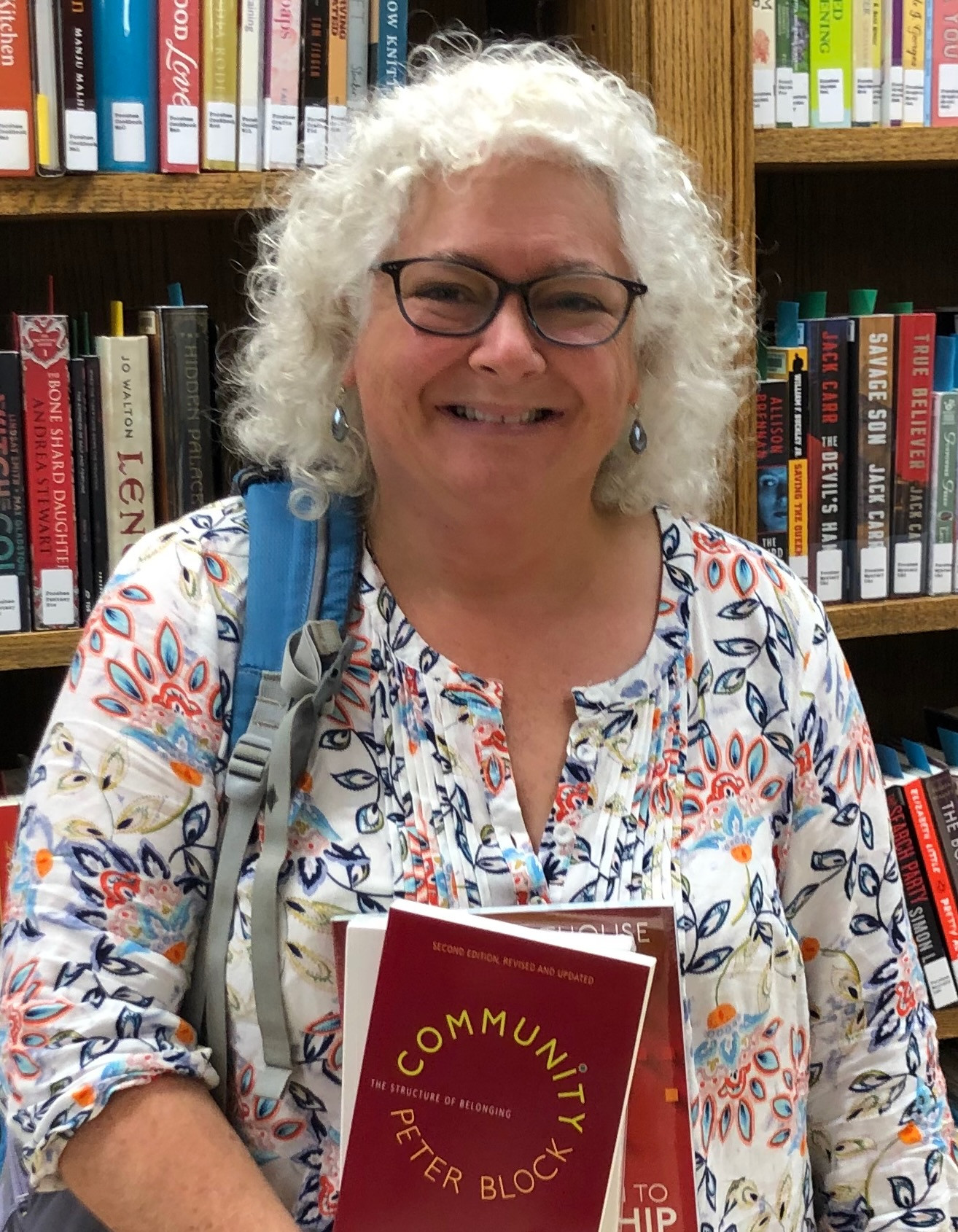
Karen Tharp: Director of UHS, The University Wellness Center
March 10, 2022: “During our last Leadership Lab gathering, I found myself surprisingly excited about new possibilities on campus and also feeling the need for spaciousness in order to organize my thoughts and put mass on the bones of ideas that have been floating around my head and heart spaces for a long while now.
The unprovoked war in Ukraine was beginning as we gathered, we spoke of our concerns and fears as well as how sometimes finding joy in our day-to-day lives seems like a radical act. I am reminded that the most powerful stories include joy, hope, creativity, and a renewed sense of self and purpose coming out of the rubble of injustice, suffering, loss, and death.
I wake at daybreak to quiet springtime fog, sun shining through, and am relatively certain that no bombs will fall on my house or my loved ones today. It feels naive to think that this will always be so. I put my hands in my good garden dirt like a prayer for joy. One of us has a friend that just crossed the border into Poland. She has no idea where she is or where she will go.
Many of our cohort went to the barn for some equine team building, and some of us had been before. There was lots of discussion at our meeting about what was noticed and learned with the horses.
- We make a lot of assumptions about what others think, feel, or want.
- We don’t ask for help or use tools, even when a toolkit is offered marked plainly as “TOOLKIT”.
- Sometimes we make our obstacles more challenging.
- We tend to wait for someone else to make a play, for fear of stepping out first.
- We fear being penalized for asking for help or for someone else’s expertise.
At some point, Joshua (Booher) said, “What I am hearing might not be what you are saying.” Yes! I thought. Isn’t that the way? If we can extend that grace to one another, the grace of not assuming, we will begin to begin again and re-member our community. Many things feel broken; they can heal with more capacity for us to hold space for each other. We are thirsty for more storytelling (data with a soul) that helps us understand each other. There is such an opening for intentionality and "care"-fullness in this moment. We can decide what seeds we want to water.
These last few years have been filled with crucible events worldwide and personally for all who dwell here. These events and relationships changed everything. I have had crossroads in my life where I had to find new meaning and purpose, I had to put down new roots and put out new green to find a way forward, I had to reach out and find accompaniment to stay grounded, I had to find my voice, AND I am now seeing that there were many times when what I heard was not what was being said. It is like seeing someone without their mask for the first time and realizing you had no idea what that person looked like for two whole years.
"of good dirt"
a gardener broadcasts
never leaving soil bare
crimson clover shows off
a brilliant, fancy cover for fungi
Earthworms and god knows
what else living down
the darkness
i can dig my garden with
my bare hands and do
hiding them at work
like a teenager having
done something outrageous
no matter how scrubbed
Earth is ground-in
good therapy
skin on the side
my index fingers, rough
nostrils filled with
the smell of good dirt
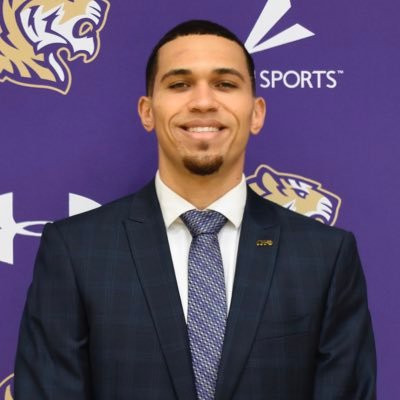
Brody Curry: Assistant Men's Basketball Coach, Athletics
February 24, 2022: "I heard numerous inspiring testimonials from previous Leadership Lab participants that motivated me to further explore what the Lab was about. What I found, on paper, was an opportunity to study leadership theory and deepen my knowledge of some popular practices. What I found in person proved to be that and much more. I found a new community of leaders eager to grow and support one another. I found a transformational learning experience fostered by the unique insights and perspectives that only this new community could provide.
In our last class, we discussed our purpose statement, leadership philosophy, conflict styles, and obstacles. The purpose statements have been a work in progress for each member of the group and every time we discuss them in the group, we are able to practice being vulnerable and building trust, which are two vital components of leadership. We received an introduction to leadership philosophies and learned that they should capture your view of people, view of work, and your values. The five conflict styles we discussed were the problem solver, accommodator, avoider, competer, and compromiser. Each style has its own pros and cons, and it is useful to know in which situations to use the correct style to use when navigating conflict.
One discussion that had a lot of energy and agreement around it was talking about overcoming obstacles. As a leader there will always be obstacles to navigate, whether they belong to you or those you are leading. In our talks about how we help others overcome obstacles, one member of the cohort mentioned "going to bat" on behalf of others. In calling the question to certain practices, you may find that you are able to provide a previously-unknown perspective. This can be done for those you manage/supervise, those who manage/supervise you, or other colleagues around campus. The big takeaway is that we should not be trapped in only leading those "behind" us. Great leaders are able to lead those that report to them as well as those they report to. Leading "up" and leading "out" will greatly help our Sewanee community reach its full potential."
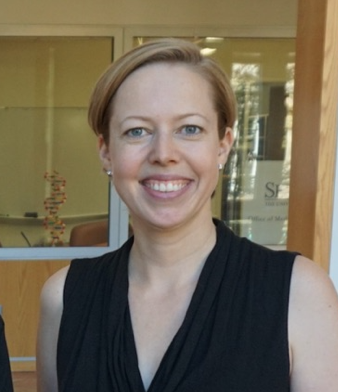
CYNTHIA GRAY: VISITING BIOLOGY INSTRUCTOR/ASSISTANT DIRECTOR OF ADVISING FOR THE OFFICE OF MEDICAL AND HEALTH PROGRAMS
February 10, 2022: "What is your "why?" Today's Leadership Lab session focused on purpose statements, or as one colleague put it: "What is your "why?"; It is not easy to describe your life's purpose in 9 words or less! Perhaps it should be. If we could all readily identify our "why's," we could better know how to navigate this world and how to direct our energies. We could choose to only focus on activities that align with our purpose and our values, and in doing so be more authentic leaders. Crafting a purpose statement is a process. We have spent the past few weeks reflecting, talking with trusted friends and colleagues, and carefully constructing drafts of our purpose statements. Today was the day for perhaps the most vulnerable moment of the process: getting feedback.
We practiced active listening in pairs, each sharing a draft of our purpose statement, the reasons behind it, and the challenges we encountered in creating it. The listener then asked probing questions, identified themes, and shared insights. Why is that important in your life? Do you see this purpose applying outside your work? When asked the latter, I realized my purpose statement needed some serious revision!
We ended the session with a discussion about destructive leadership, with a focus on the hallmarks of environments that are conducive to such leadership. Padilla, et al. (2007) identify four environmental factors: perceived threats, instability, absence of checks and balances, and certain cultural values such as high power distance. It is important that we recognize these hallmarks so we create structures to curtail destructive leadership and promote constructive leadership. I'm looking forward to diving into this topic in our next session. To my Leadership Lab cohort: Listening to your purpose statements today blew me away. I am grateful to be working with such a dynamic group of people, all committed to effecting positive change in our community."
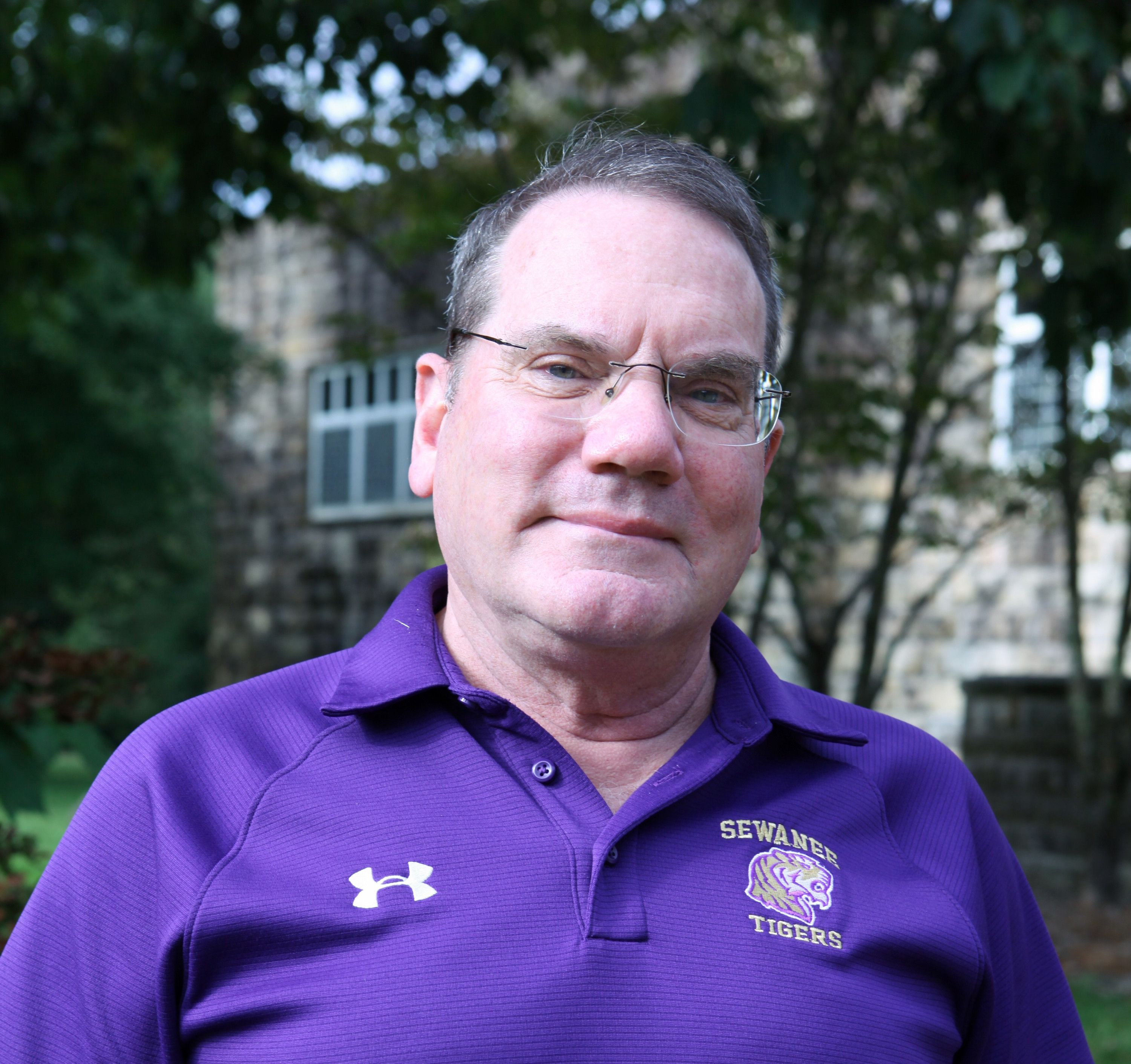
MAX OBERMILLER: AQUATICS DIRECTOR & SWIM COACH (ATHLETICS)
January 27, 2022: "Live your beliefs and you can turn the world around"- Henry David Thoreau.
There is never a class that I attend in the Leadership Lab that I am not awestruck by the diversity of vision, passion for positive change, and absolute lucid honesty by our class that I am humbled to think, "How did I get so lucky to be a part of something this powerful?"
Thanks to our terrific leadership taking us down paths many of us never dared to tread before, I am emboldened to discover my beliefs, my core values, and come up with easily the most intimidating written statement I ever hope to create: a statement of purpose.
One of our class members shared their statement. At this moment I understood how wonderfully thoughtful, supportive, and intuitive this group was. Class members reflected on the statement and challenged us to look deeper into the words and the values we express when we choose this statement. After having to fill out the Leadership Practices Inventory, and then asking 12 others to evaluate me on the frequency of exemplary leadership behaviors (admittedly, I hit a huge impasse with this, but Elizabeth Wilson masterfully helped me work through this), I had this moment to look forward to: sharing my statement of purpose with the group. After witnessing the care and sensitivity of the group as we studied this, I felt a little more at ease. To quote Karen Proctor, it was "inspiring" to be a witness to this.
As usual, we discussed many topics including how to establish a constructive climate, using the film "Hidden Figures" (2016) as a springboard. We learned that structure without inclusion does not make a healthy environment. We divided up into partners and discussed some of the challenges we face in our incredibly diverse roles here at the University. I confess, this is always my favorite part! I learn so much from other's willingness to share, and the ultimate purpose, to move from issue (or complaint) to solution. Powerful stuff!
Leadership is a daily task for me, and for the past 40 years I felt I was reasonably competent. But each class frames a new set of challenges, a new standard of excellence. I am thankful for the University's commitment in offering this class, to teaching an old dog like me new "tricks" so we can transform this wonderful place we call home into its best version of itself. Maybe we can truly "turn this world around.""
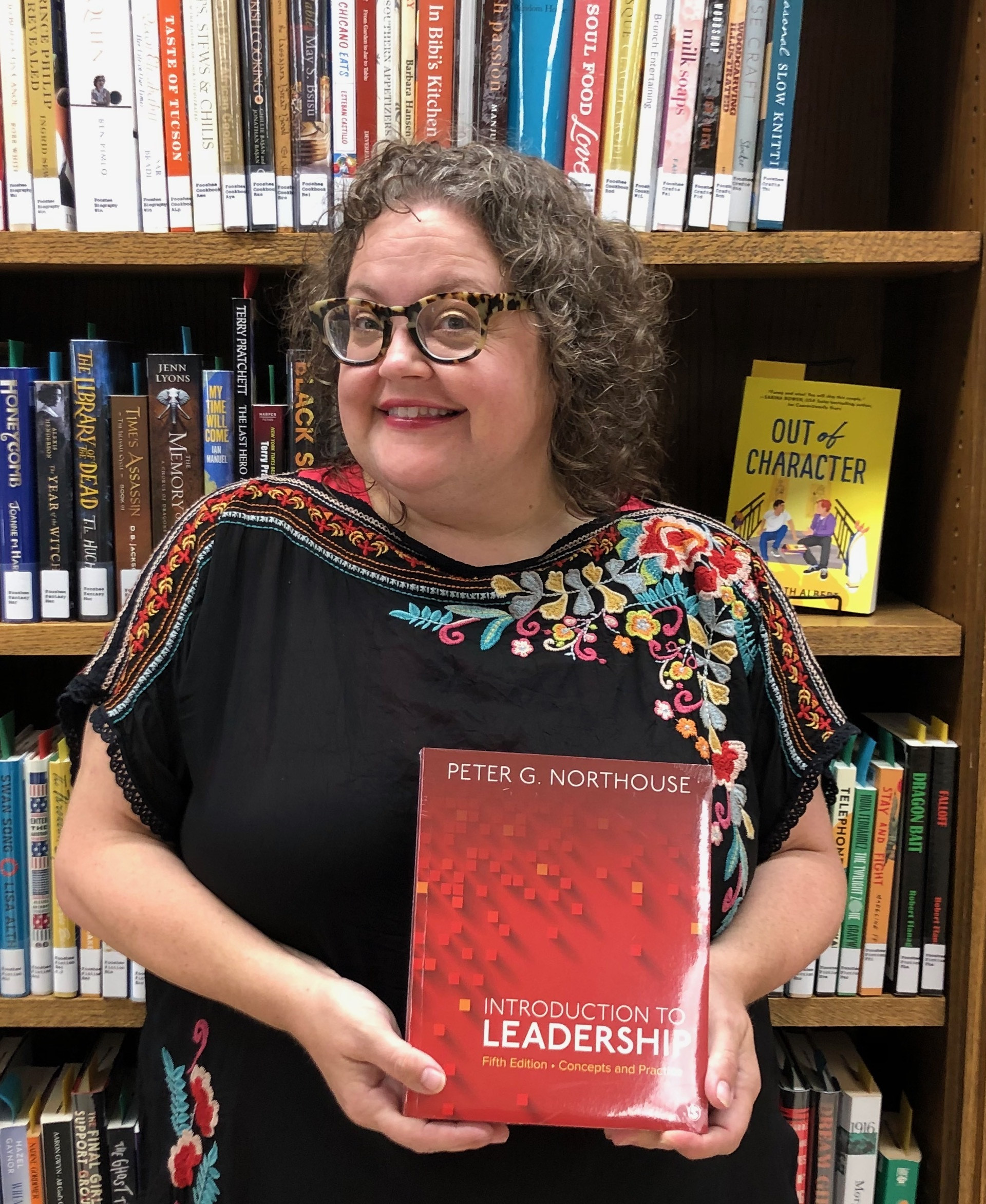
Cari Reynolds: Library and information technology services
January 13, 2022: "The opportunity to apply to be part of the fourth cohort of the Leadership Lab came at a time when I was struggling a bit to rediscover my place in the Sewanee campus community. We were nearly a year into the pandemic and had also experienced some deeply troubling events on campus. Amidst all the uncertainty and anxiety, I saw the Leadership Lab as an opportunity for connection. If I was feeling somewhat powerless, perhaps others were too. I hoped that this experience could also provide the environment and tools I needed to develop my skills and talents so that I could help champion positive change across campus. I hope to transform from ally to advocate.
January 13th's gathering began with an introduction to the Leadership Practices Inventory. This tool provides an opportunity for you to self-assess your leadership behaviors when it comes to the Five Exemplary Leadership Practices. (Model the Way, Inspire A Shared Vision, Challenge the Process, Enable Others to Act, Encourage the Heart). It also provides an opportunity for others of your choosing (supervisors, colleagues, and those you have supervised) to anonymously share their own assessments of your leadership behaviors in these areas. I’ll admit that my stomach dropped when I first heard we would be doing this. The thought of experiencing this level of vulnerability caused some anxiety. However, then we heard from former Leadership Lab graduates about their experience with this assessment and how ultimately it illuminated areas of excellence and areas where there were opportunities for reflection and growth.
Our meetings often begin with opportunities for centering self-reflection or "noticing." This week, we had an opportunity to write a note of encouragement to ourselves and to share a note of encouragement with another member of our cohort. These little slips of grace were so welcome and are now pinned to my office wall where I can see them as I write this post. This week also marked a shift in our focus from self to the campus departments and organizations that we are a part of. We examined both the strengths and weaknesses that we observed and experienced when it comes to Providing Structure, Clarifying Norms, Building Cohesiveness, and Promoting Standards of Excellence. The ensuing discussion was both candid and constructive. I look forward to having more of these discussions as our cohort continues to become more comfortable and cohesive.
ANGIE RILEY: HOUSE MANAGER AT CHEN HALL, EXECUTIVE OFFICES
December 2, 2021: "I was excited about the opportunity to be a part of the Leadership Lab because I feel it is a way for people to connect with others from across campus. I hope to utilize my time and newly-found skills to bring change within myself so that I will be able to grow and flourish within my surroundings. This group of individuals is diverse! We come from everywhere across campus to learn about how to not only become better leaders, but to connect on a different level and to support each other in effective and productive ways. This week's class was focused on two major behaviors that good leaders exhibit: attending to tasks and to relationships. Good leaders find a balance between these two behaviors. I personally lean toward the relationship side of leadership. The pandemic hit pretty hard because of my need for interaction with others. I was left longing for connection to my fellow employees and the University in general. I am typically driven to get a task done, but I was left isolated and unmotivated. It was hard to find my drive to succeed without the everyday presence of the relationships that I had built prior to the pandemic. I realized that I need to change to succeed. It was a painful and lonely time to decide on making a change, but one I now know needed to be made. I am still a work in progress, but I am hoping that I am gaining tools and skills to find balance. I am grateful to be able to take this journey with a group of facilitators and fellow classmates who have a tremendous amount of insight and passion to grow and learn together."
GEORGIA HEWITT: PRESCHOOL TEACHER, UNIVERSITY CHILDCARE CENTER
November 22, 2021: "Throughout my life, I've been driven by the love of learning and of our community. The pandemic created a unique growth opportunity for introspection, intentionality, and positive change-- both personally and communally-- so that when the Leadership Lab opportunity appeared, I was moved to participate. Every gathering begins with a noticing activity that centers us in the present, allowing us to set aside the outside world and bring intention to the possibilities in this moment of gathering. As a result of this practice, I say I've come to release my expectations for how I want to use this experience and am allowing the experience to create the path forward.
For this week's gathering, we prepared by reading about leadership styles (authoritarian, democratic, and laissez-faire) and how our beliefs about people influence these styles. We then took a personal value assessment that helped us create a list of five core personal values. As a case study in leadership styles, we watched the film Invictus, the story of how Nelson Mandela utilized support for a national rugby team to create unity amongst South Africans during the post-apartheid divide. Through group discussion, we came to understand leadership styles as a continuum that we move along, guided by beliefs, values, goals, and situational necessity.
As we approach the middle of our experience in the Leadership Lab, we are being called to synthesize our skills, beliefs, strengths, and areas of potential growth into a personal leadership philosophy. Being able to gather so intentionally with this amazing group of colleagues has been a reinvigorating experience as I emerge into community from my Covidtide cocoon."
Cassie Meyer: Assistant dean for student equity & career readiness, integrated advising and career readiness
November 1, 2021: "In school, I never really struggled with testing anxiety, but put me in front of the CliftonStrengths (formerly called StrengthsFinder or StrengthsQuest) assessment and my palms start to sweat. The test consists of multiple paired statements where you select on a scale which of the two statements most closely describes you. After completing the test, you find out what your Top 5 Strengths are (and also the order of the remaining 29). Each time I've taken the CliftonStrengths assessment (which you're really only supposed to take once, but I've taken at least 4 times), I find myself hovering between the two choices and, more often that not, placing myself right in the middle as a "neutral." I find myself wondering about the context, and thinking about my preference for different leadership approaches in different situations.
Despite my anxiety about the test, every time I've taken CliftonStrengths, Connectedness and Individualization have been in my top 5 (the other 3 in the top 5? They're all over the place!) So as I prepare for our next Leadership Lab where we'll gather to discuss our strengths, I'm attending to those in particular. I'm also doing some self-reflection on what I perceive as my strengths, and where there is a disconnect between my perception and where I landed in the assessment. I'm really eager to hear from my colleagues if they feel like the assessment reflects them well - do they feel seen in their top 5 strengths? Confused? Energized?
This kind of conversation with colleagues - from all over the University, and all different departments- is why I chose to participate this year in the Leadership Lab. Our strengths - whether or not a tool like CliftonStrengths can accurately reflect them - don't exist in a vacuum, and they're not static or unchanging apart from our context; I think they ebb and flow in relationship to others, our work, and other influences in our lives. I think we grow as leaders when we have a chance to exercise or emphasize all our different strengths, reflect on that ebb and flow, and then bring that reflection into conversation with others, which is exactly what Leadership Lab gives us a chance to do."
MARCUS MURPHY: COORDINATOR OF GLOBAL INITIATIVES / CHINESE LANGUAGE INSTRUCTOR, OFFICE OF GLOBAL CITIZENSHIP
October 26, 2021: "I am very honored to have opportunity to learn alongside colleagues in the Leadership Lab. Having started my position here at Sewanee at the height of the pandemic, my first few months on the job were completely remote. Even after coming back to campus, I struggled to meet and connect with colleagues, and especially those in other departments. The Leadership Lab is helping to refill my cup with enlightening and inspiring conversations about leadership alongside other life-long learners.
For our third meeting, we focused our conversation on some of the main traits (a personality characteristic that we inherit from both nature and nurture) and skills (learned competencies) of leaders. We discussed six key traits that are associated with effective leadership, namely charisma, confidence, determination, integrity, intelligence, and sociability, and then three main categories of leadership skills, including administrative, conceptual, and interpersonal. We then broke up into small groups to discuss the skills and traits of familiar leaders. In my group, we discussed the nuances of confidence as a leadership skill and how it might be viewed by others; to some, it might come off as being a bit negative if a leader is over-confident, while others recognize it as an essential skill.
We rounded out our two-hour discussion with reflections on the leadership development of Katharine Graham as portrayed in the historical drama The Post. For those unfamiliar with the film and story of Katharine Graham, she was the owner and publisher of The Washington Post during the turbulent times of the 1970s. After starting out the film as a more anxious, inexperienced leader, she overcame the widespread sexism and busted through the glass ceiling with confidence and integrity. Both the film and conversation were inspiring reminders to continue fine-tuning our own leadership skills in order to help our institution through the current turbulent times."
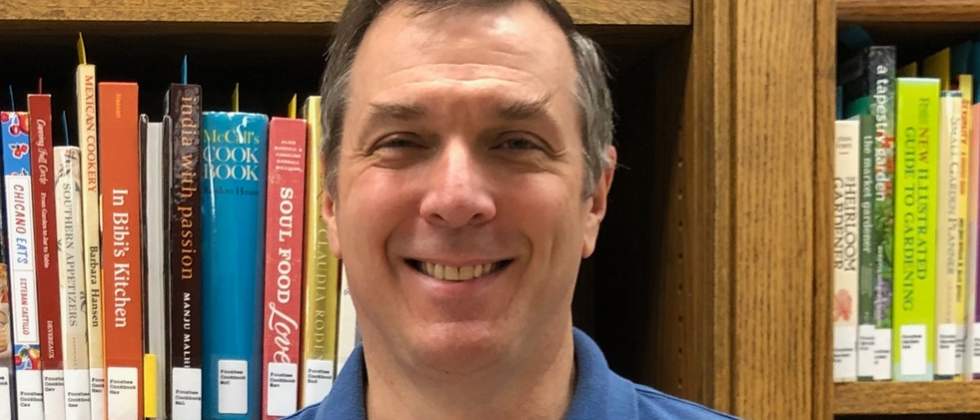
ALEX BRUCE: ASSOCIATE DEAN OF THE COLLEGE FOR UNDERGRADUATE ACADEMIC AFFAIRS
October 7, 2021: "I am very excited to be part of the fourth cohort of the Leadership Lab. Coming out of the year of COVID-19, I found I wanted something new and energizing, and something that would help me connect with colleagues from different parts of campus. The year had kept us apart; I wanted to be back in person, and so we are, with masks: we're all enjoying being able to put a name to half a face!
I also sought out the Leadership Lab as a means of growth and education, and even within the first meetings, we've been presented with ideas and perspectives on leadership that have been both illuminating and challenging. As an example, we've begun by reading textbook definitions of leadership. We then discussed and reflected on those styles, and how we see them applied, in two different ways. First, we responded to "level of agreement" questions by standing on a number line and then talking through our position: why did we agree (or not) with statements like "Leadership is a learned ability" or "The key to successful leadership is having the right skills." The conversation engaged us all and helped us connect theory to practice.
We then applied our insights to the movie "12 Angry Men", as the film offered a range of "leaders" who each approached the task of being on a jury from different positions and with different skills and values. Such immediate application, supported and enhanced by smart, engaged colleagues, reflects the Leadership Lab's purpose-- to prepare us all to lead when asked to do so."
Joshua Booher: Associate Director for Operations for EfM (Education for Ministry), School of Theology
September 28, 2021: "Over the past few years, I have become involved with various committees, both inside and outside of the university. To be a better committee member, I applied to the Leadership Lab to gain a more formal understanding of leadership and how to be an effective leader.
The initial meeting of the new Leadership Lab cohort was last Thursday. We met on a pleasant afternoon on the front porch of the Sewanee Inn. The gathering began with focused short introductions and then we began developing a set of norms to guide our work together. The two main ideas behind our norms are to honor personal stories and to be present. The second half of the meeting was longer explorations of our individual histories and an introductory discussion of Peter Block’s Community: The Structure of Belonging.
In preparation for our first session, we were to read Community. The overarching theme of the book is communities building new futures together by small groups coming together and reimagining their future. The idea is not to focus on weaknesses or absences, but on what is present and how it can be used to shape the future.
My primary learning from reading the book is that I bring a new future and a new possibility with me every time I enter a space. It is up to me to begin enacting it. Now, as I go into work in the morning or into a meeting, I am thinking of what new future I want to bring with me. One new future I often bring with me is a desire to help connect various subgroups in the Sewanee area together."
